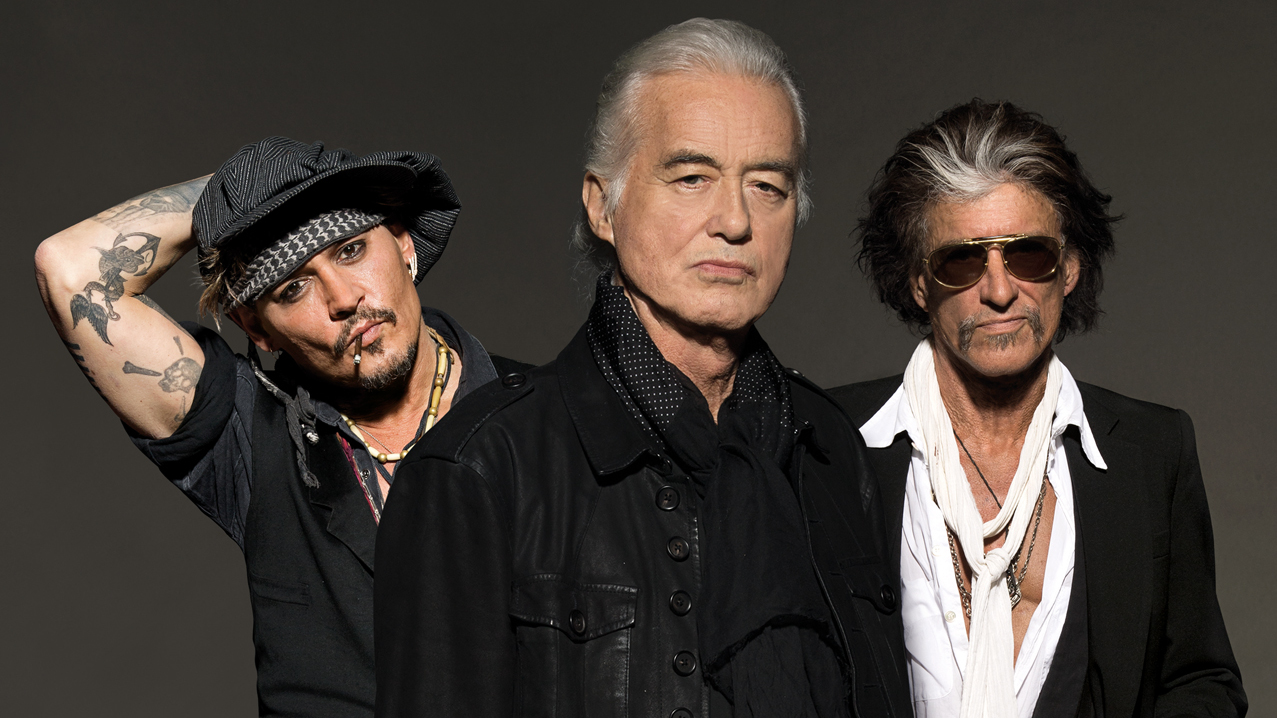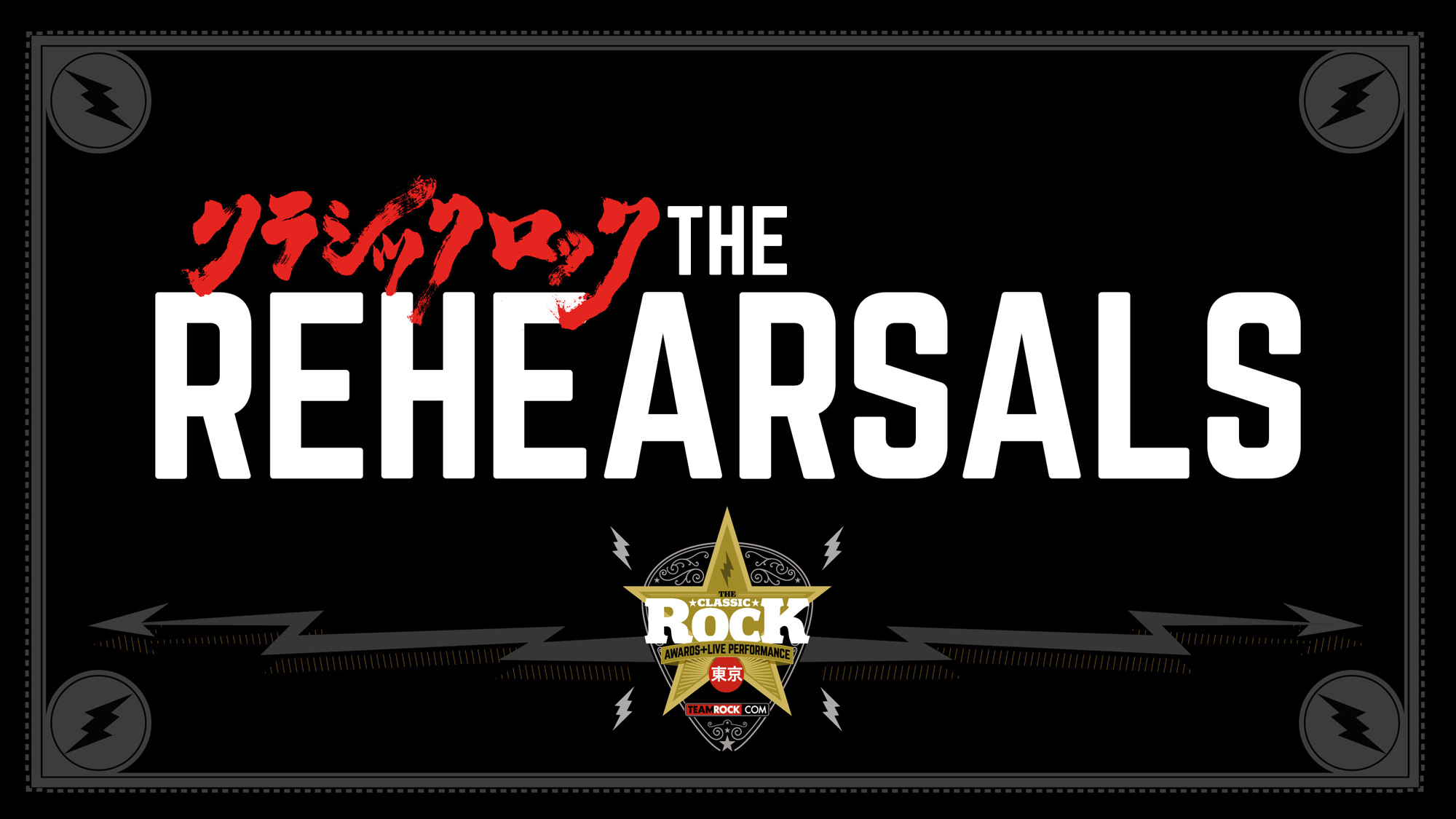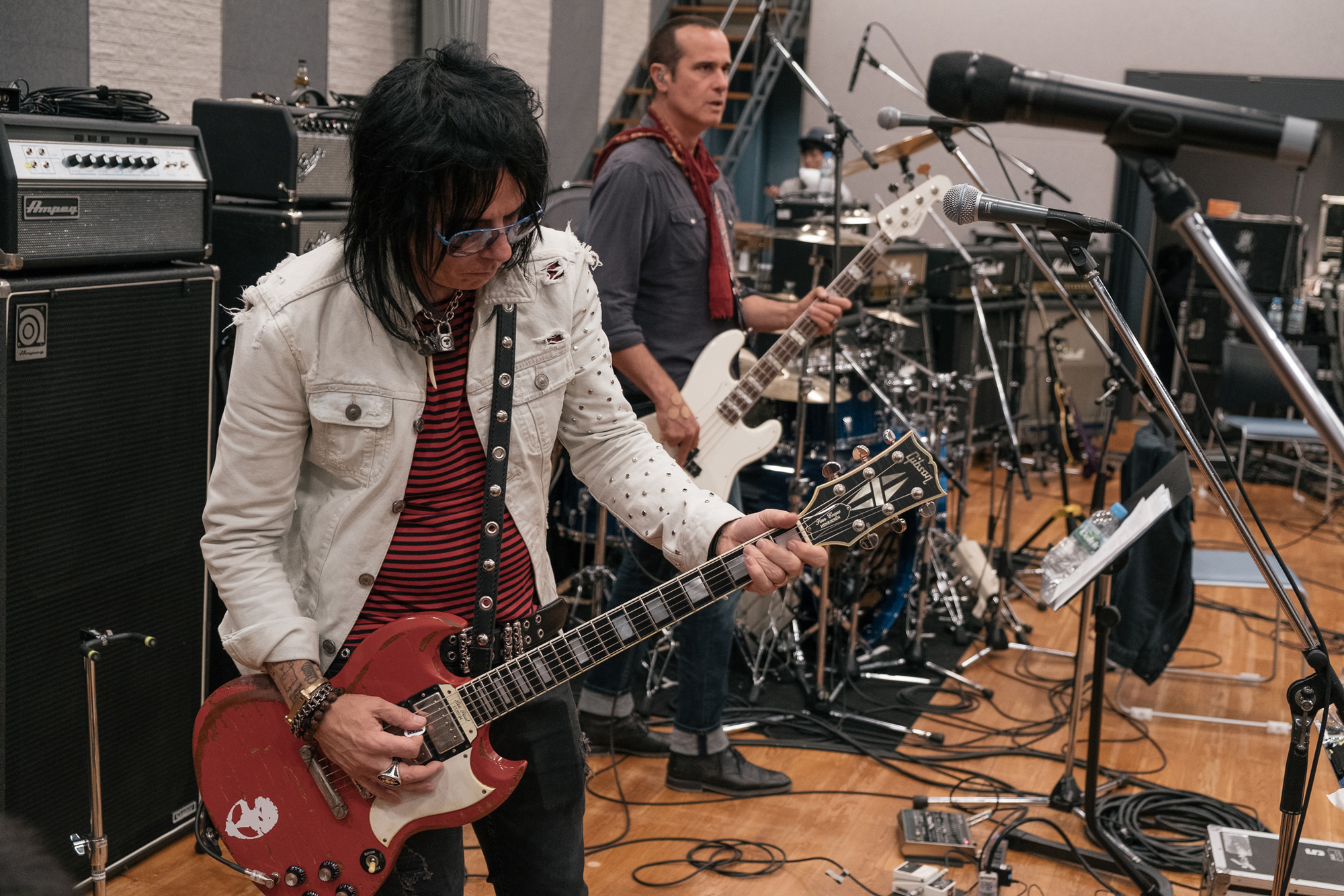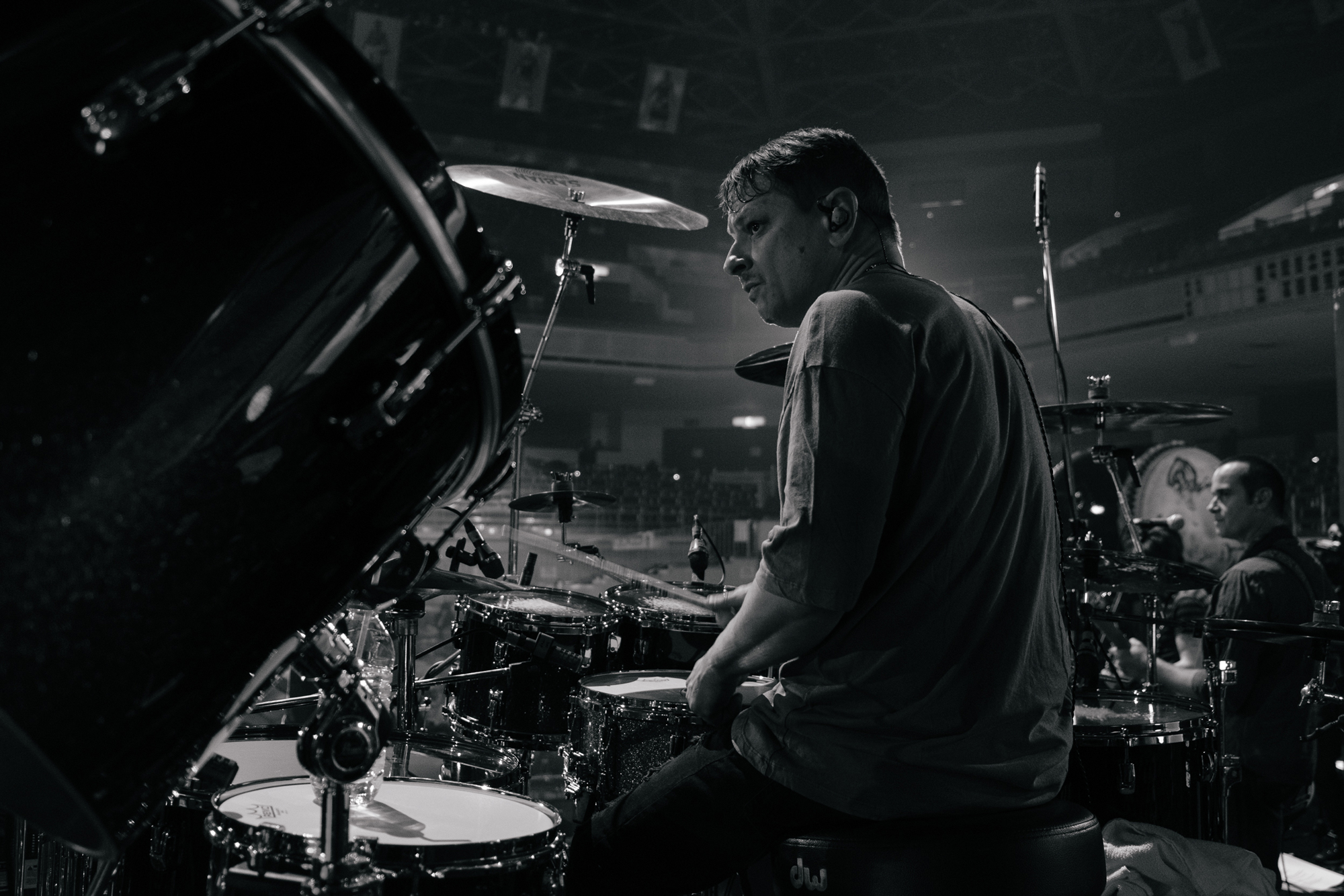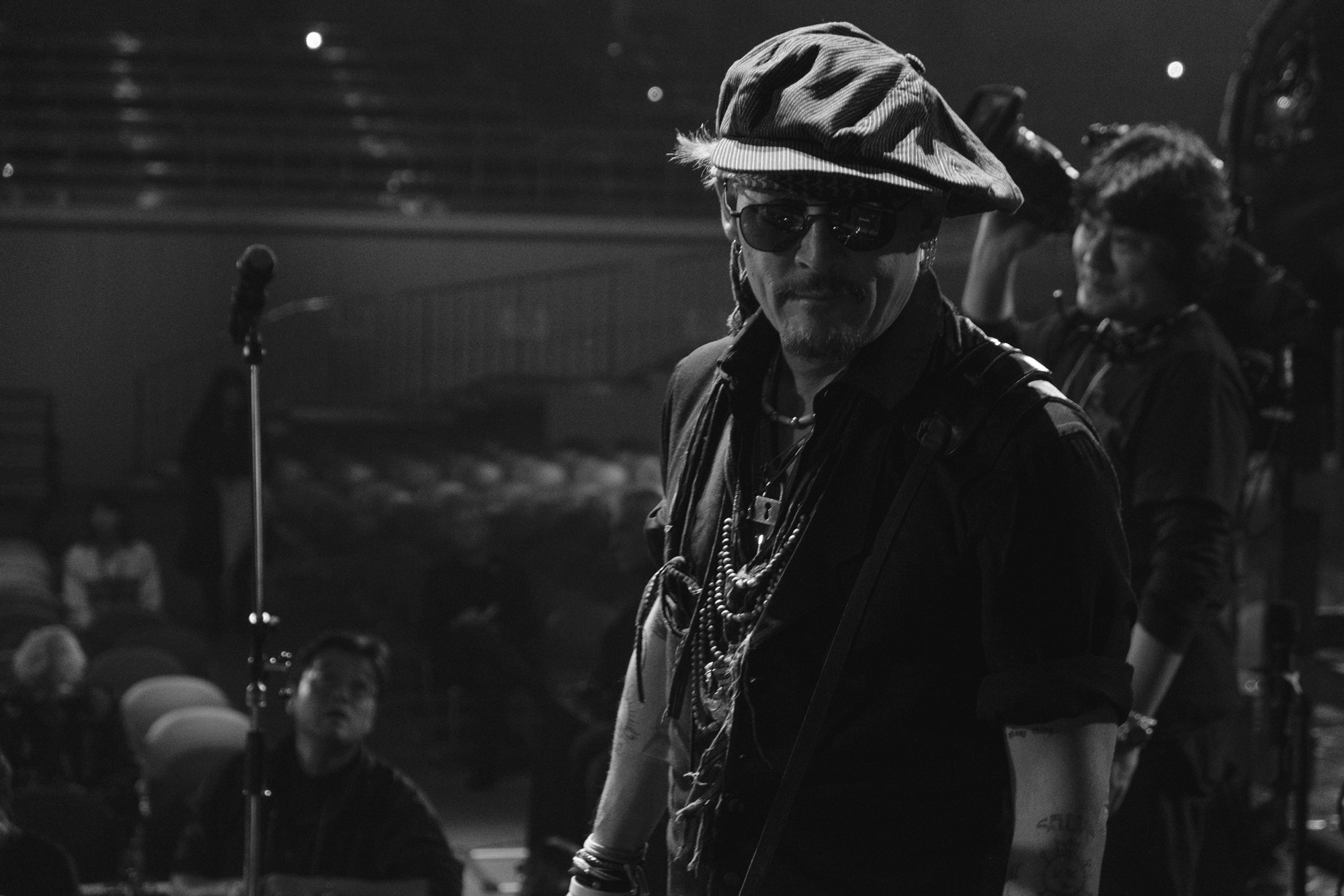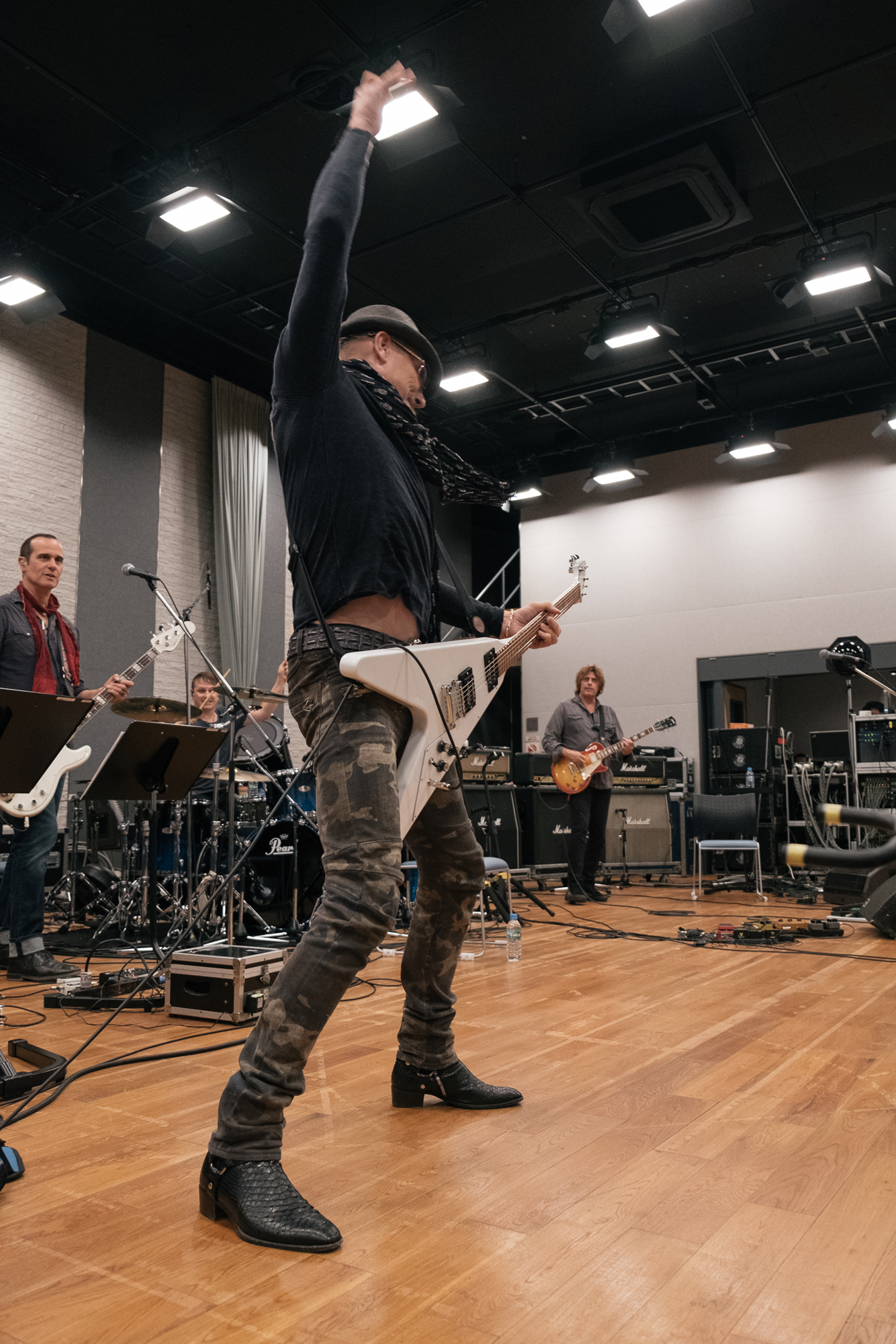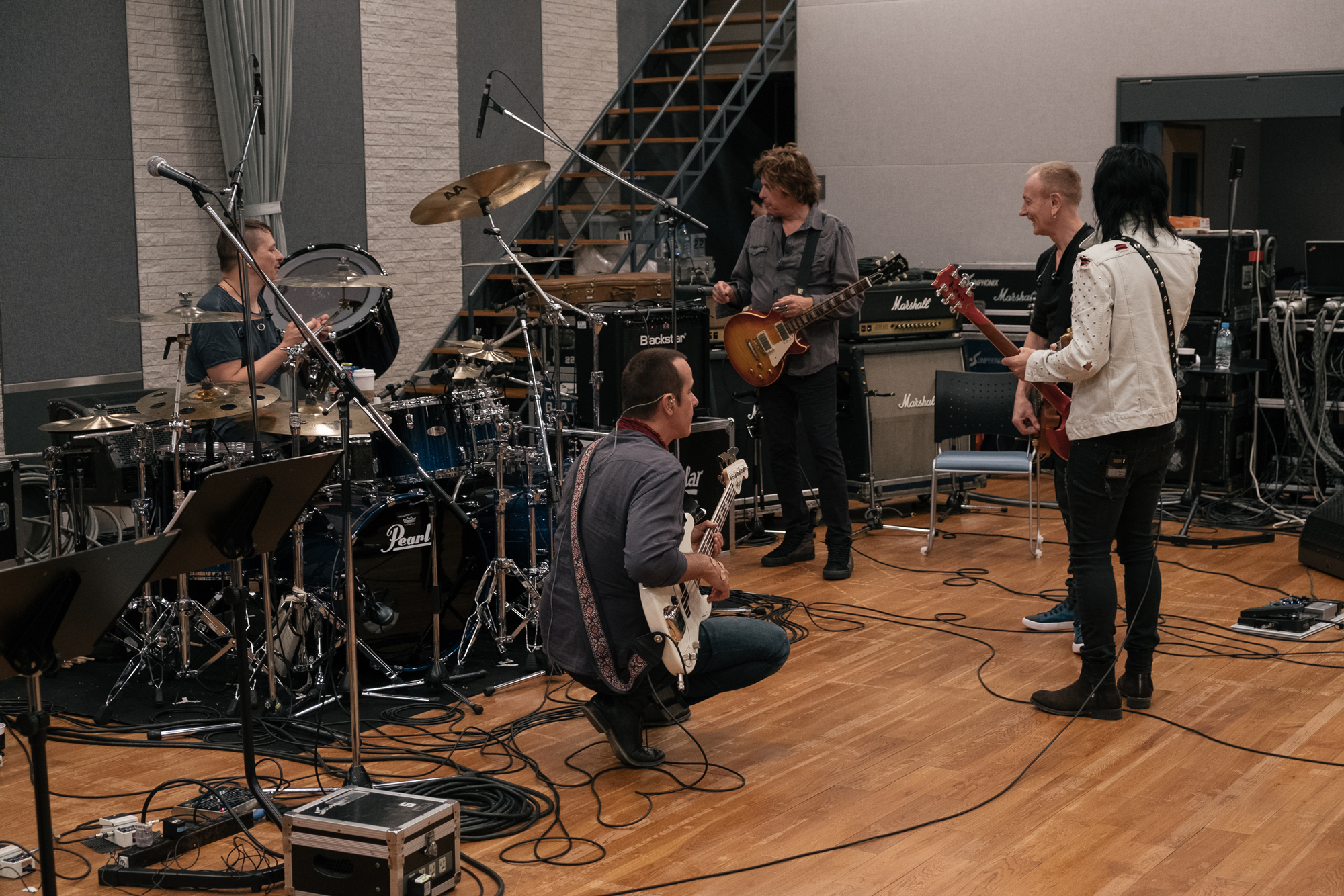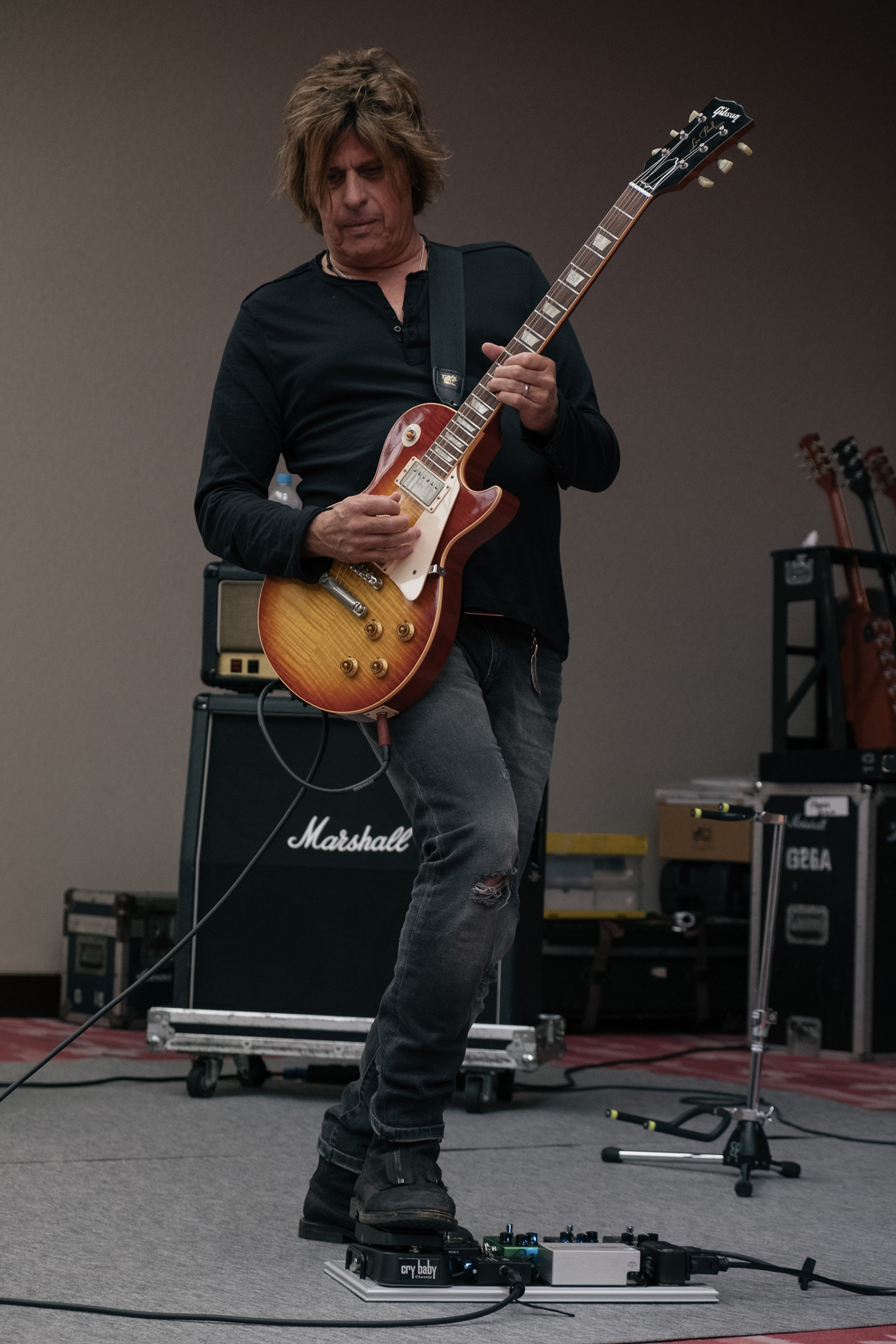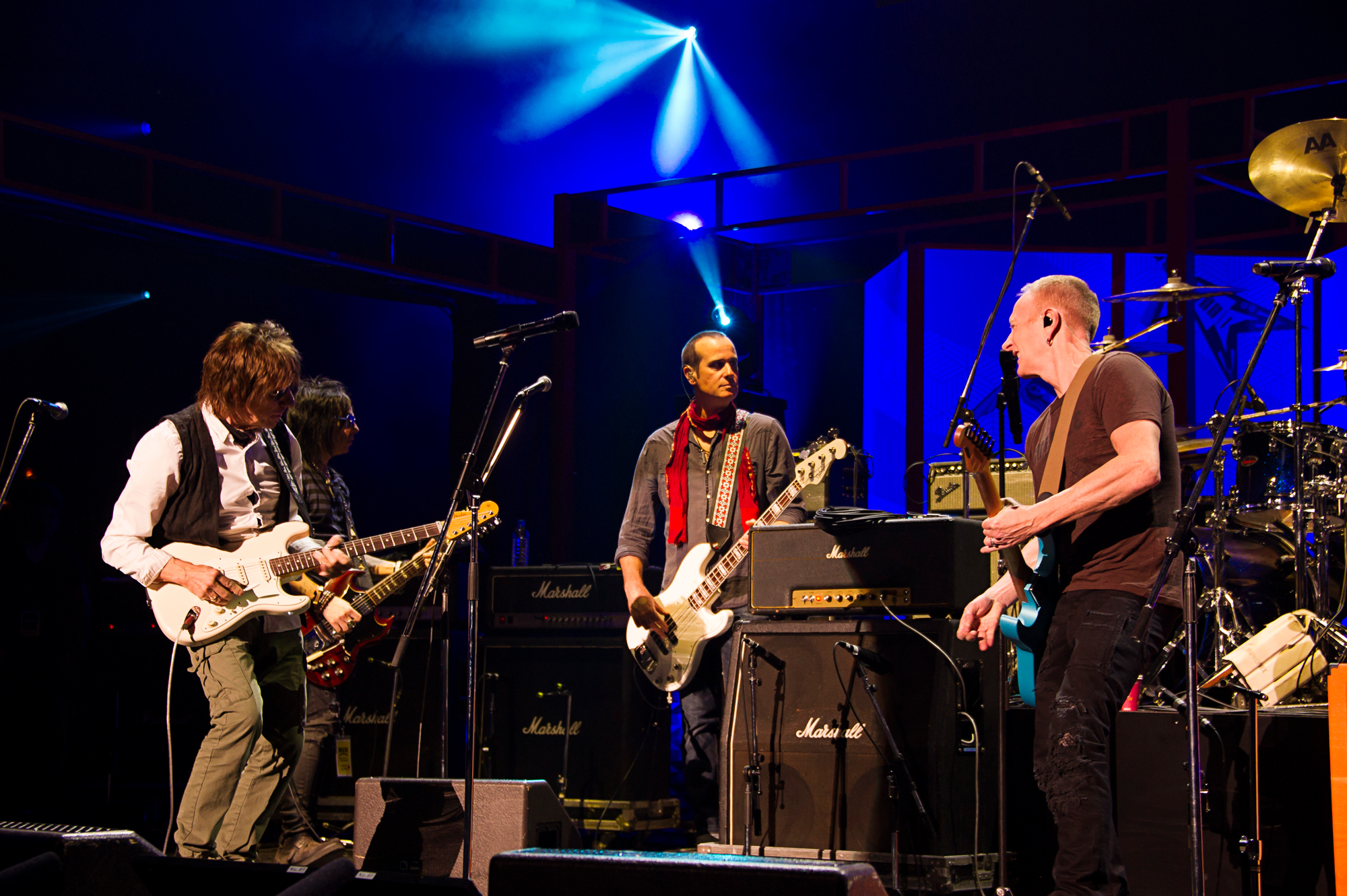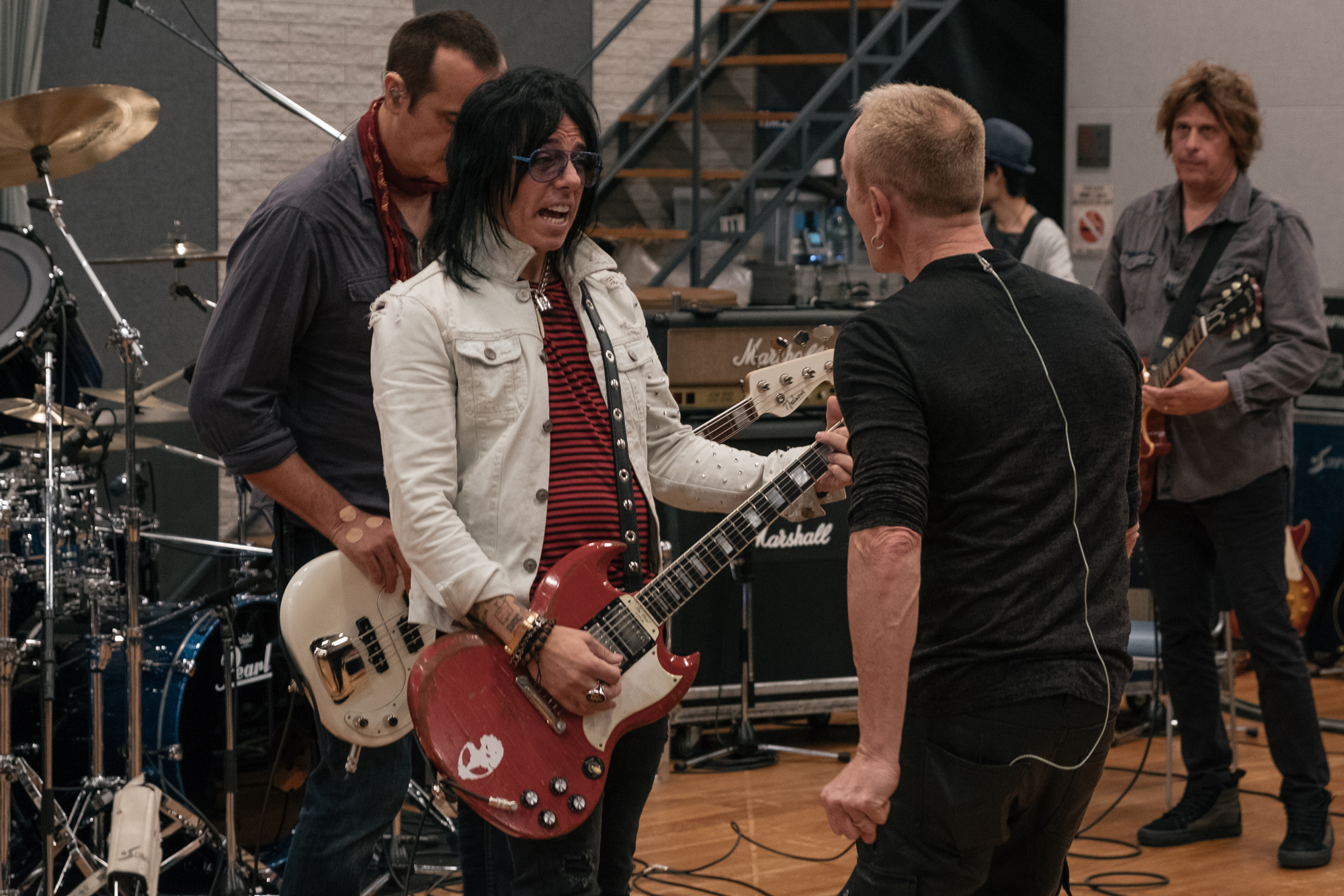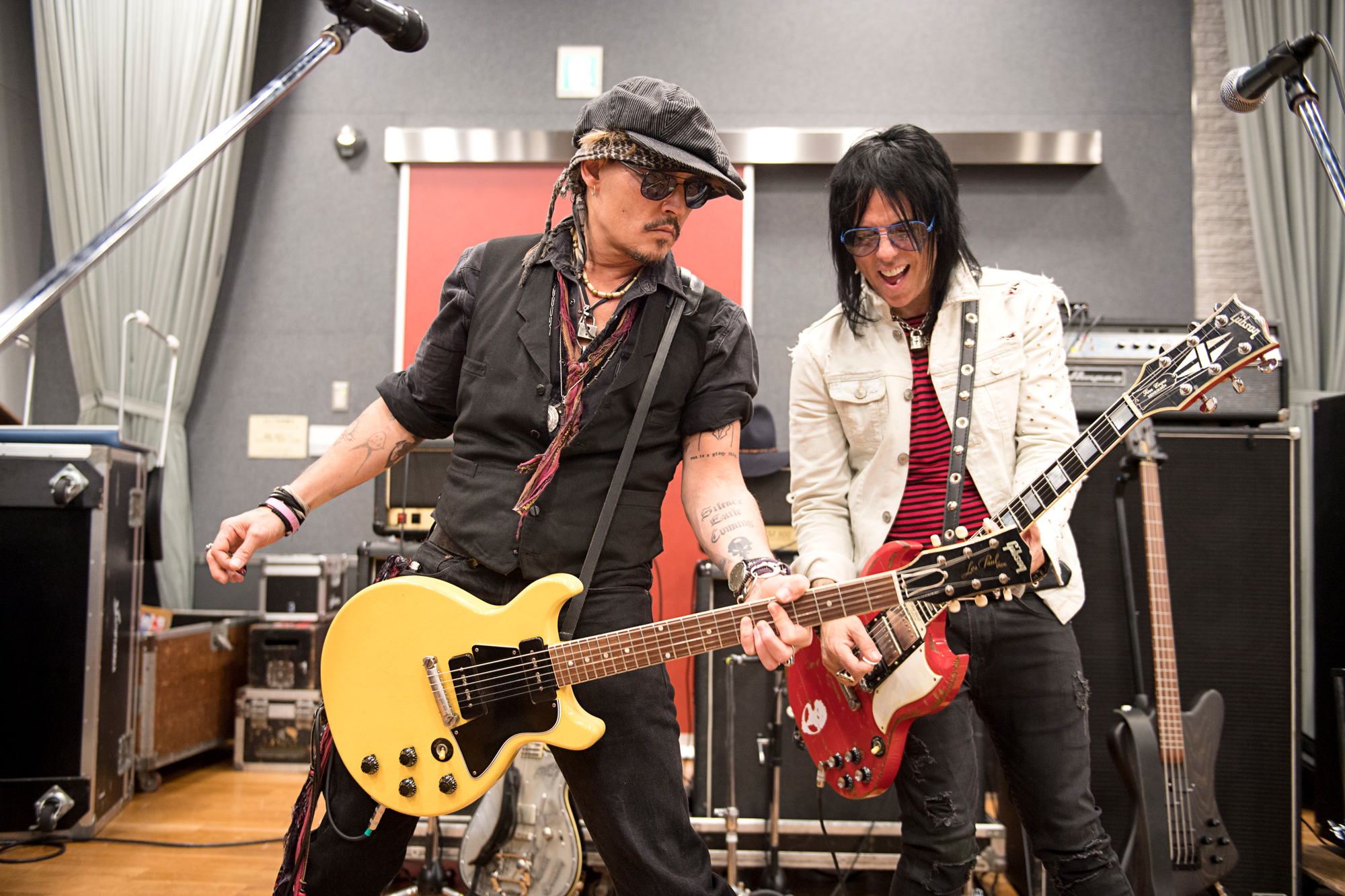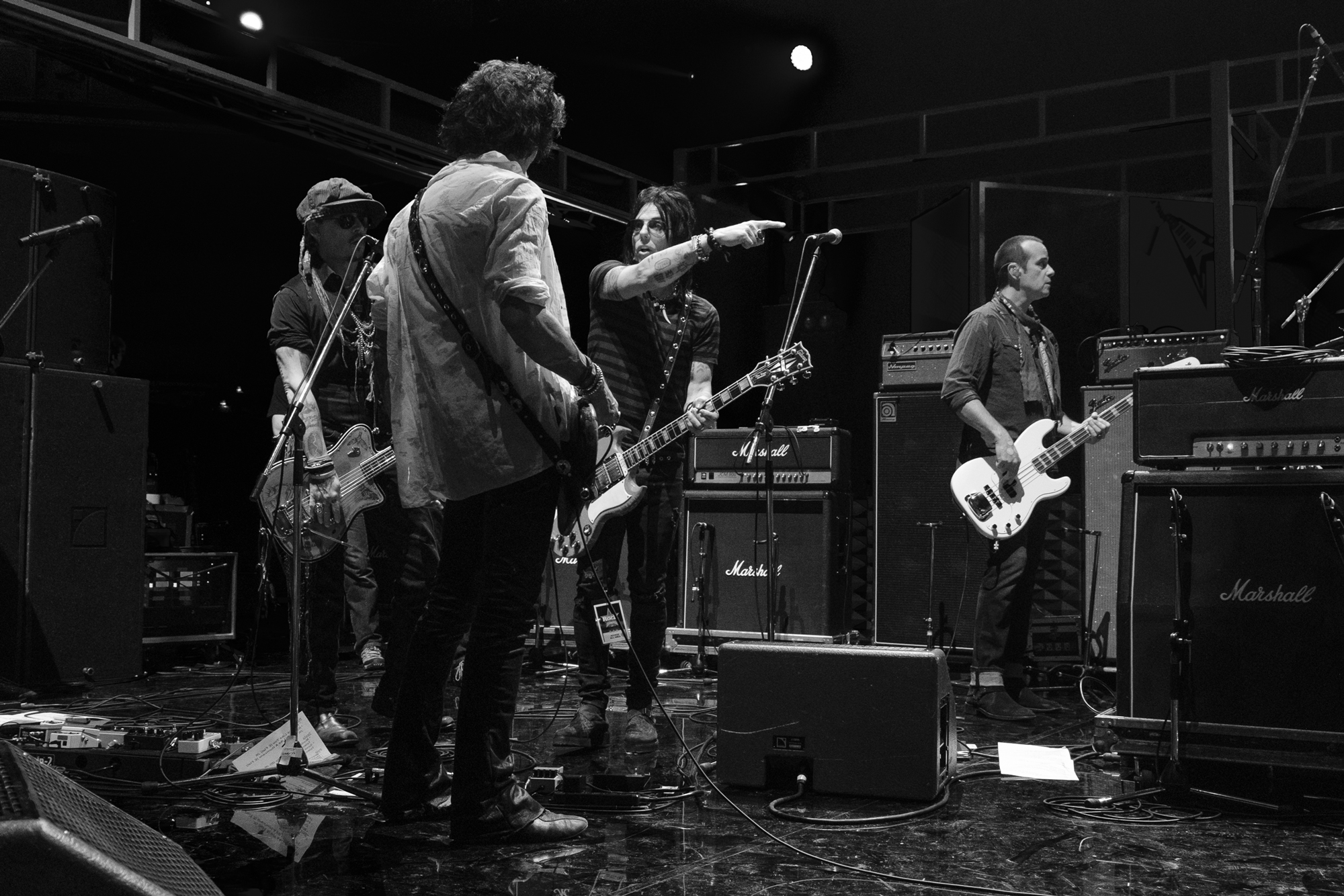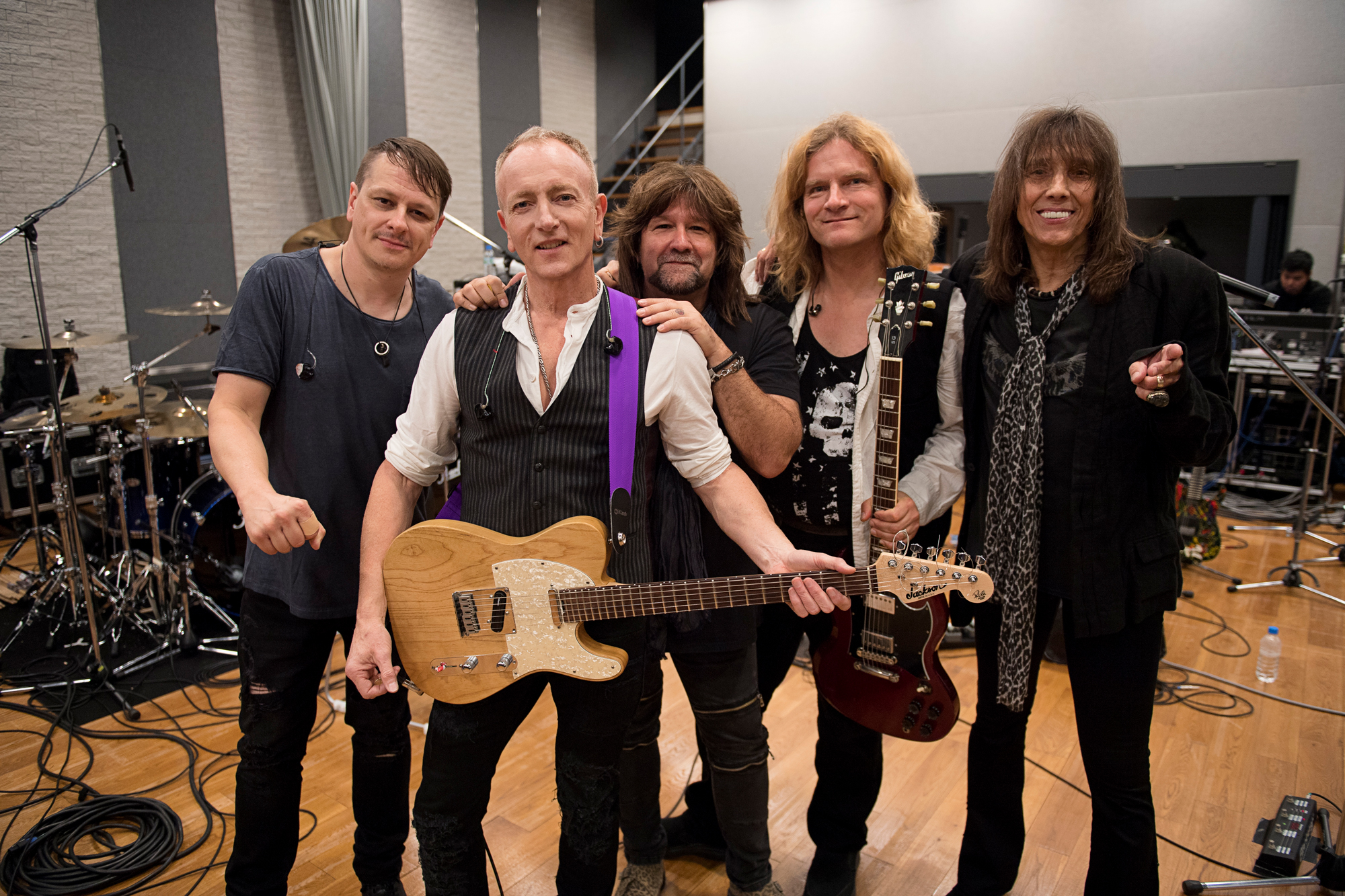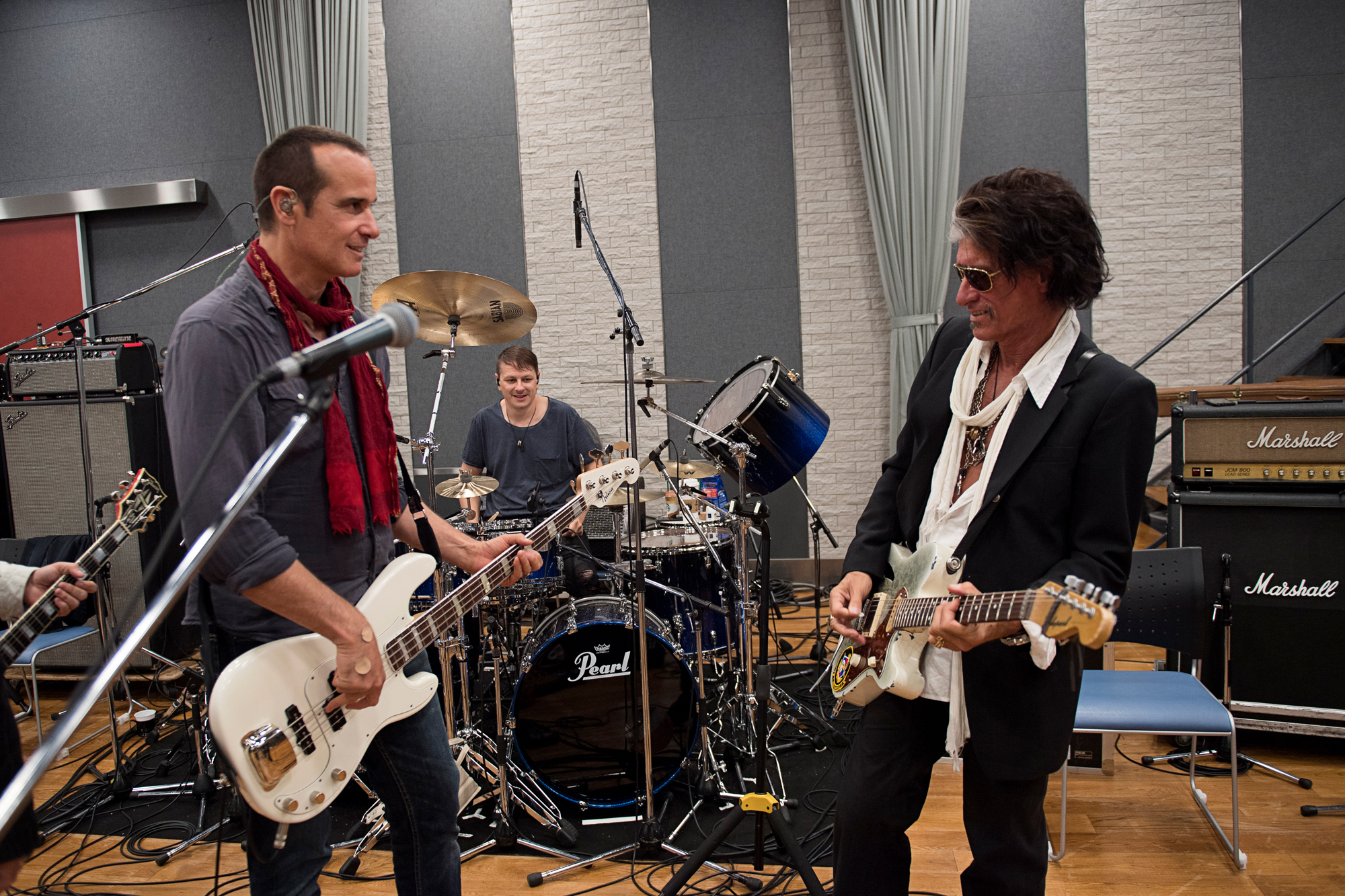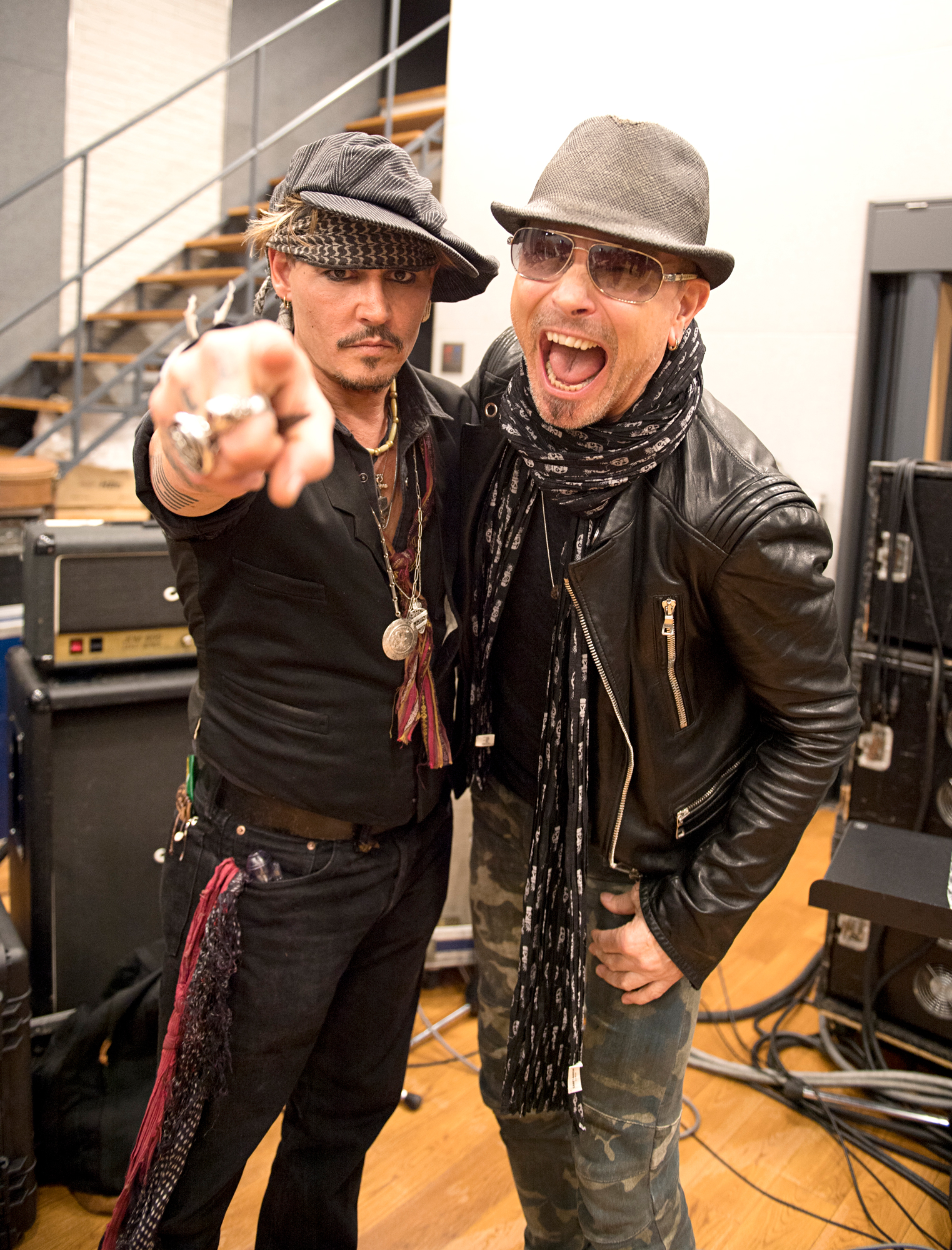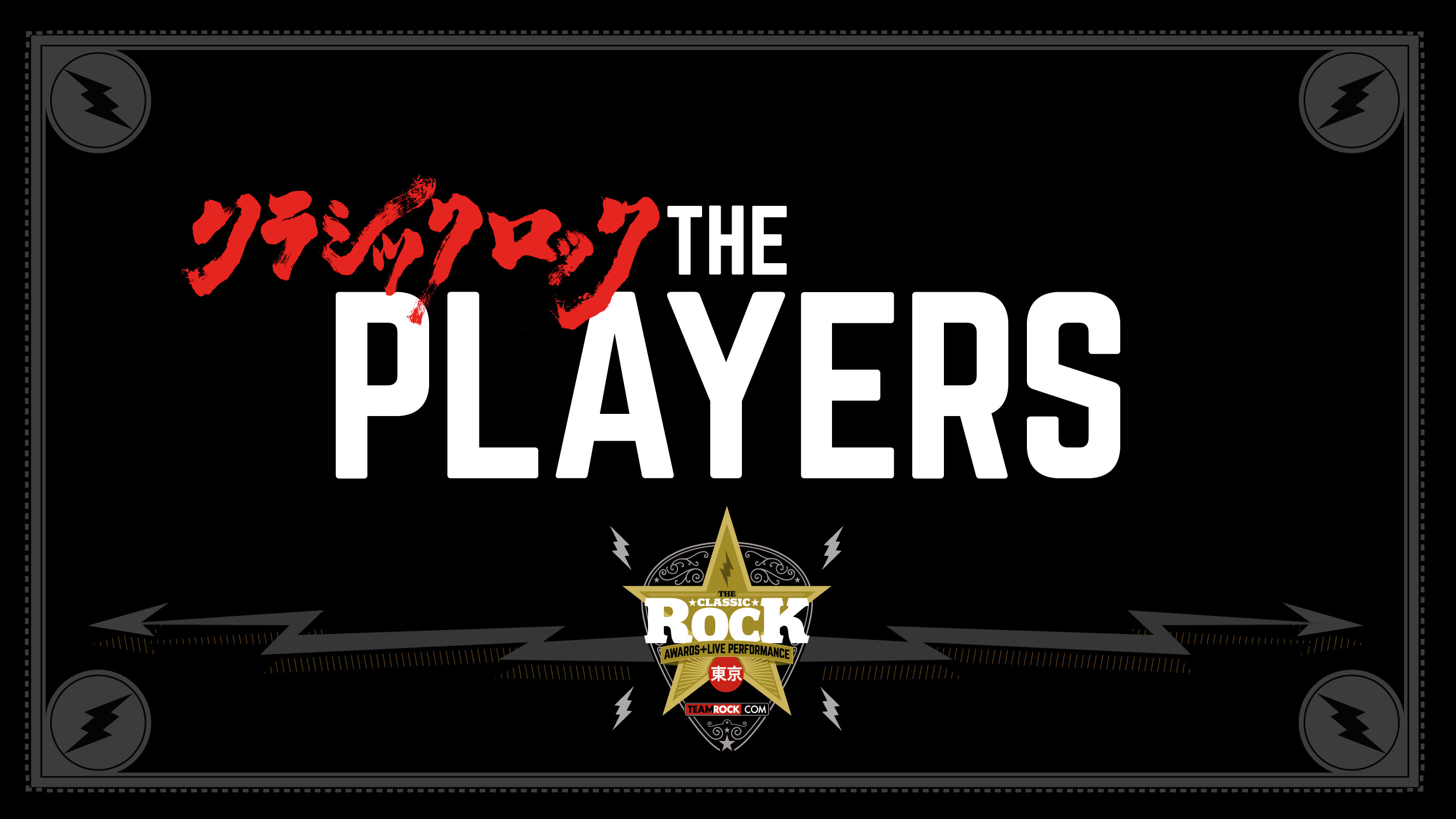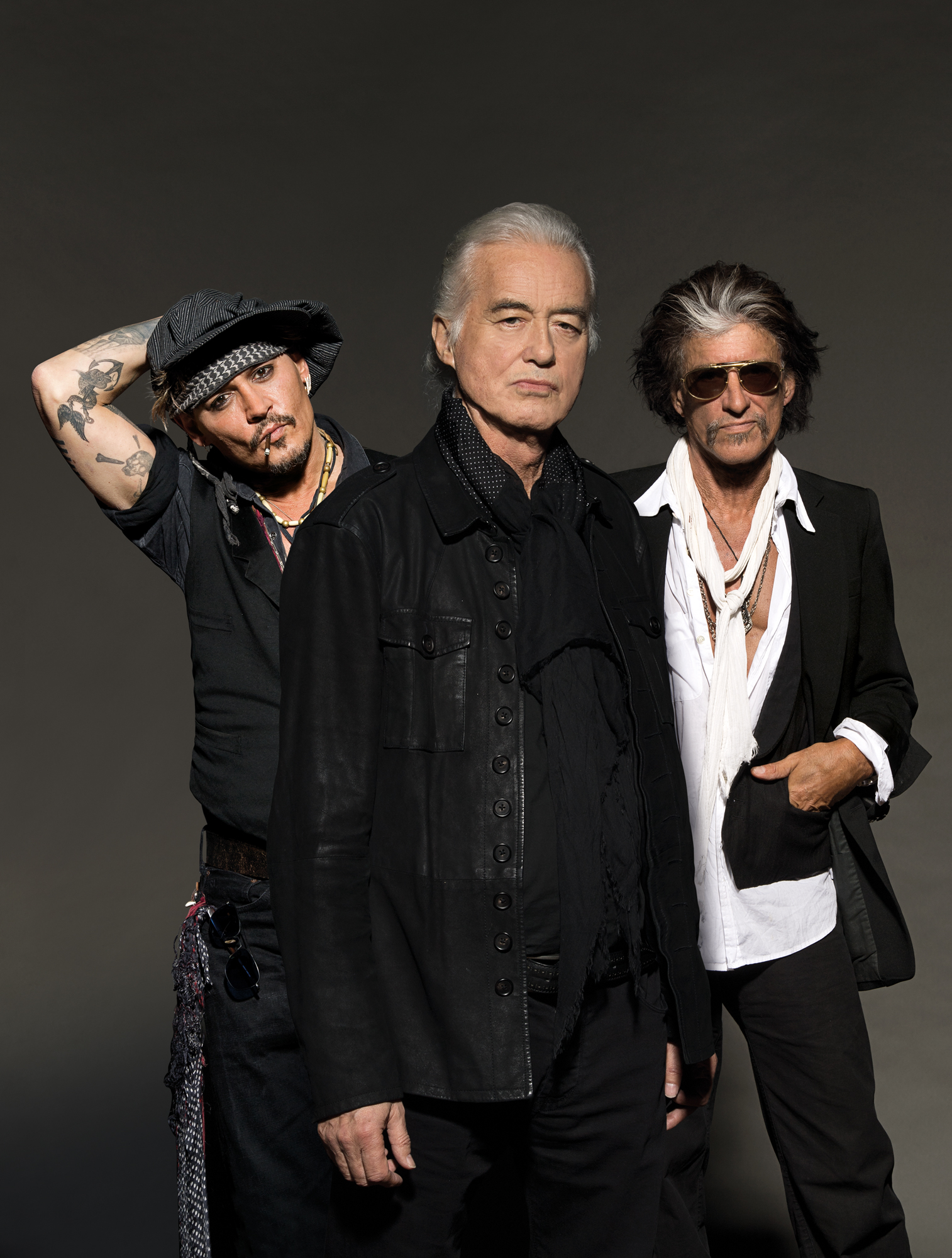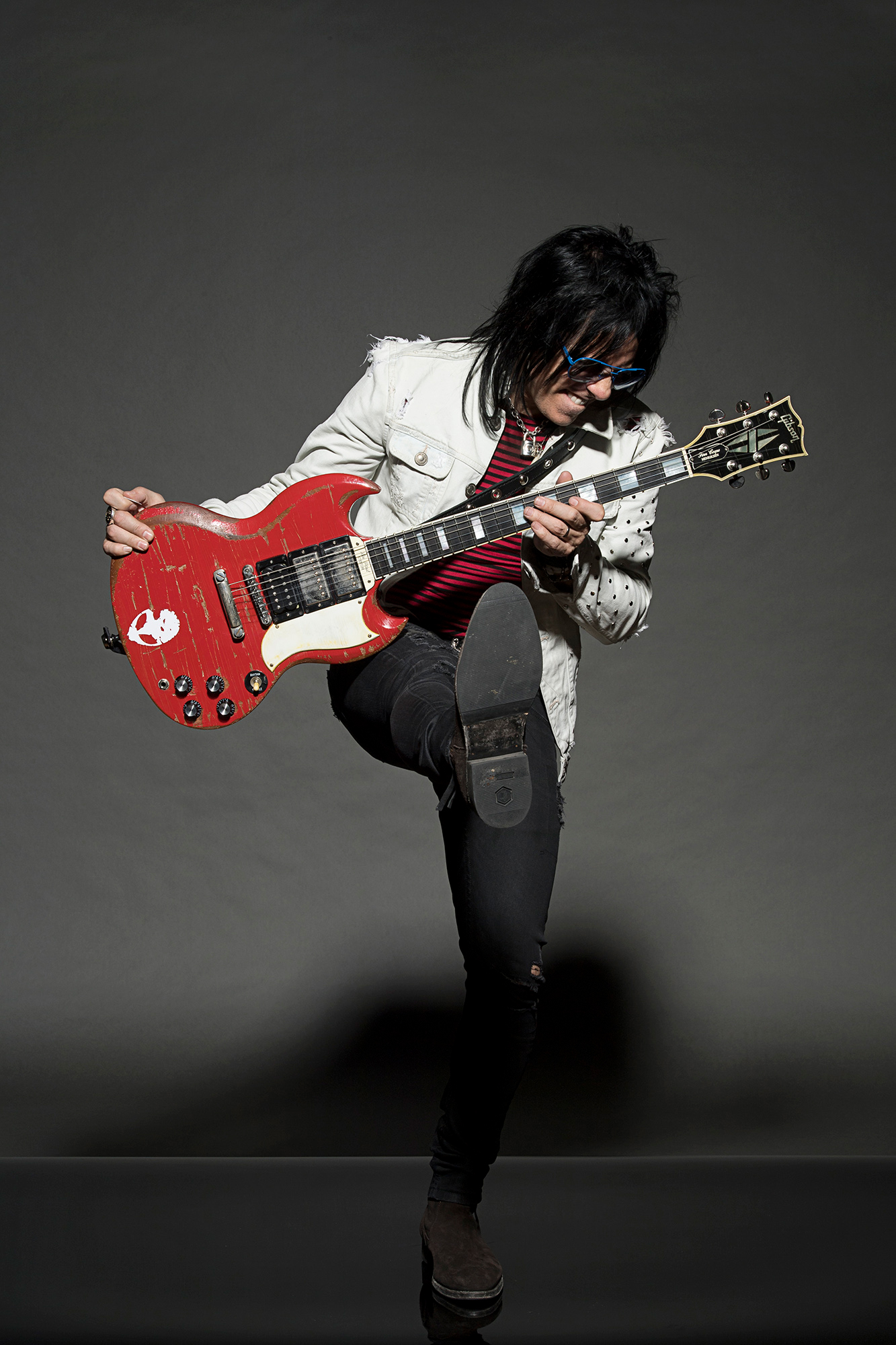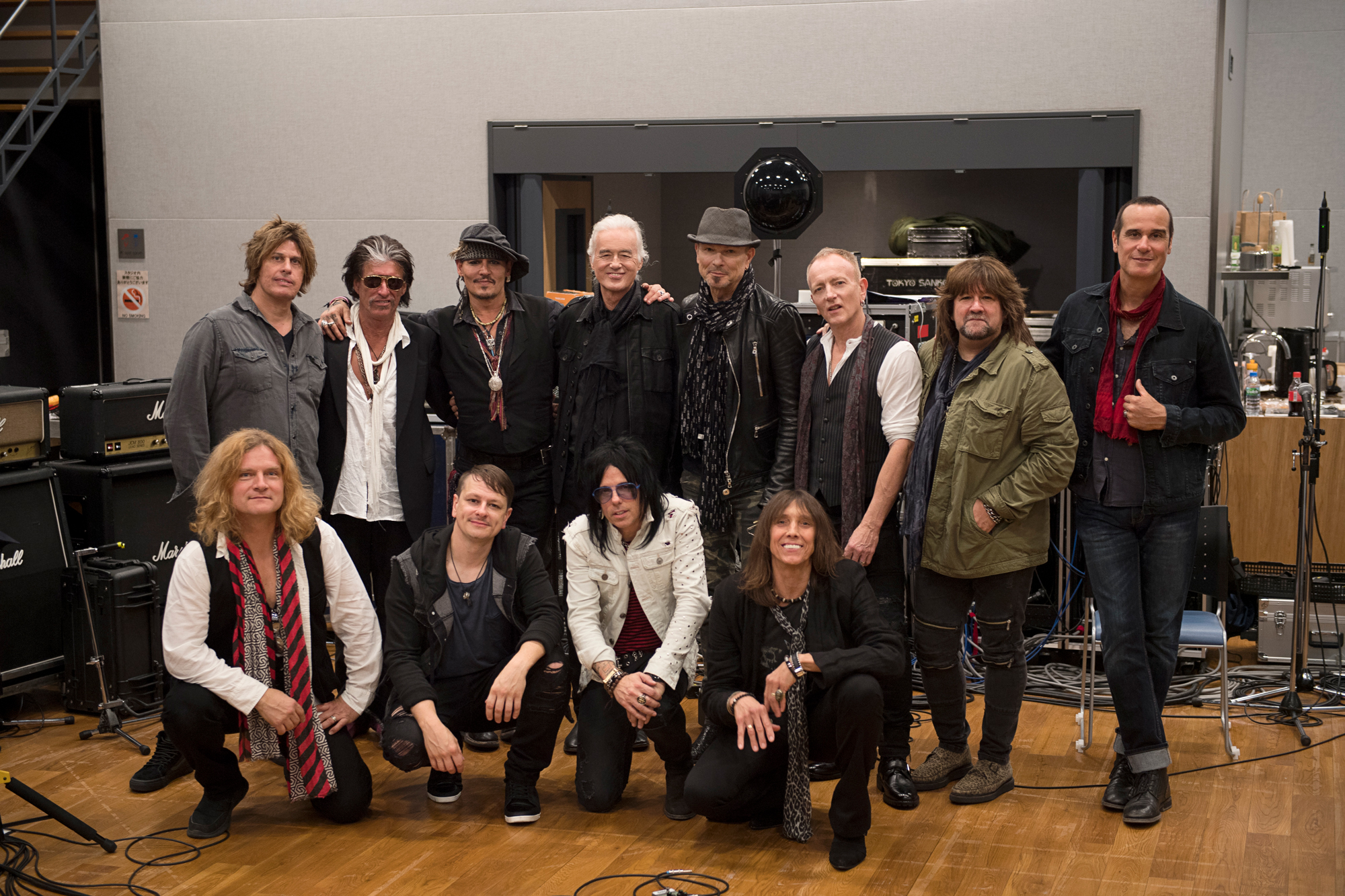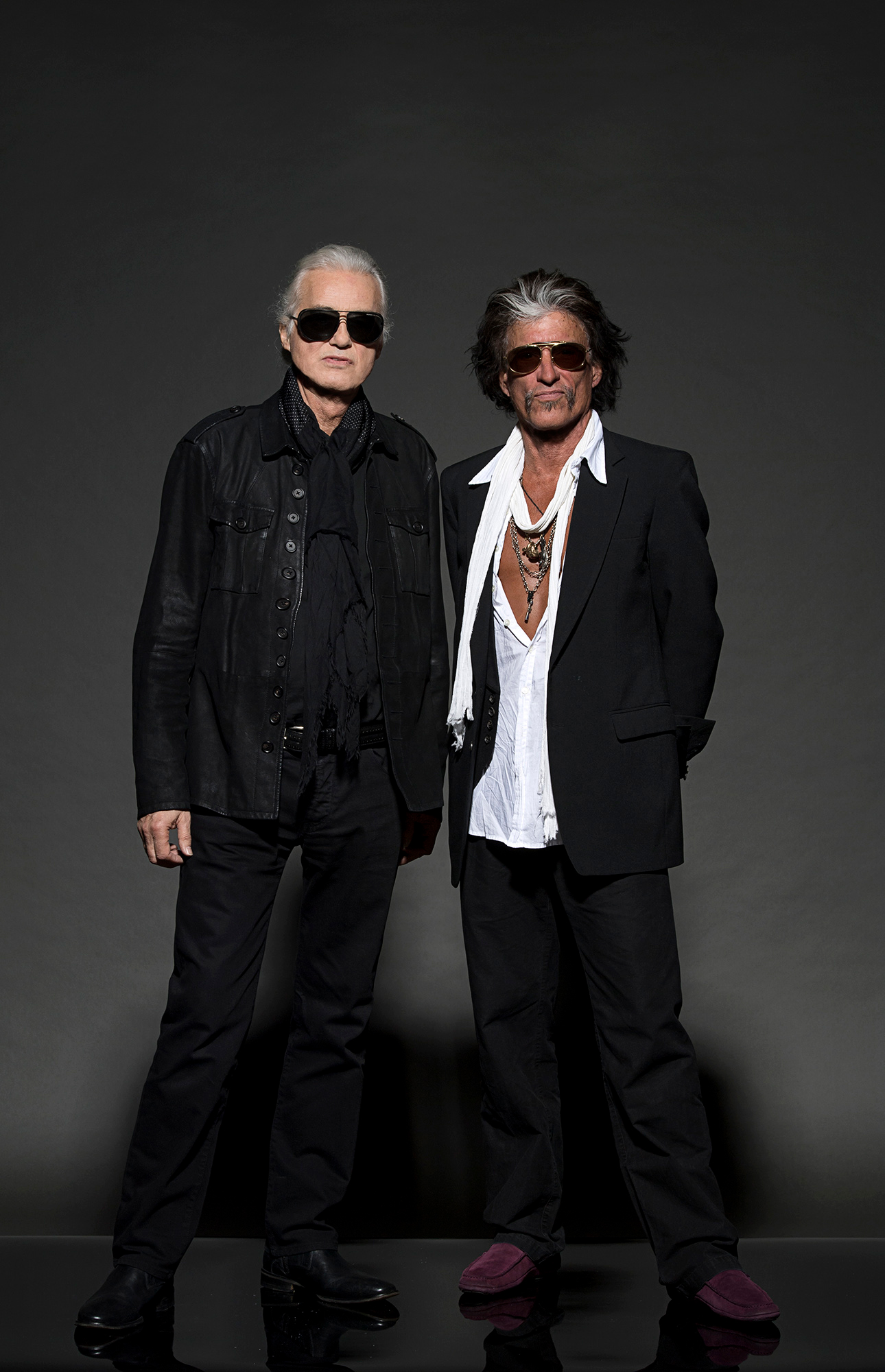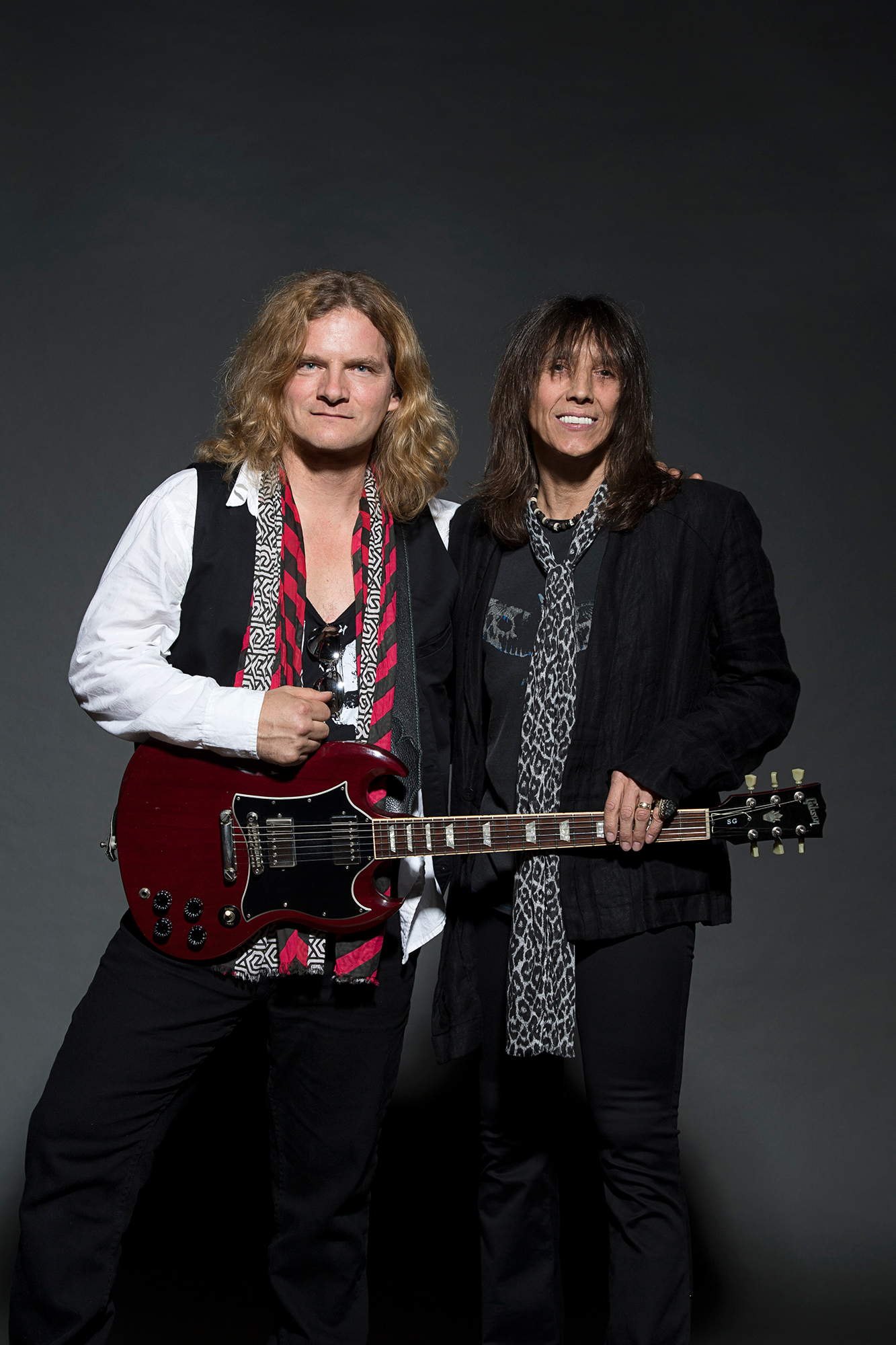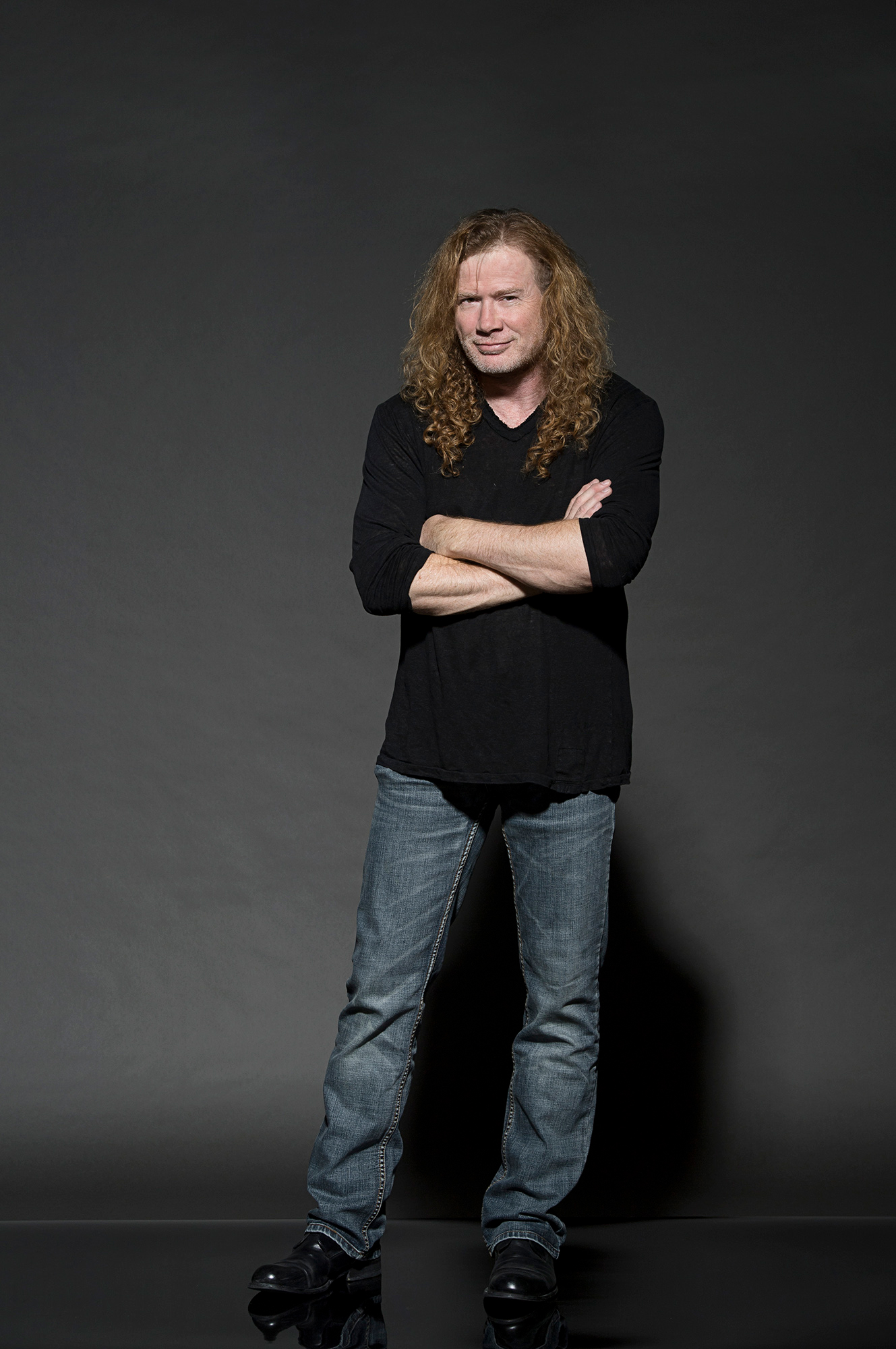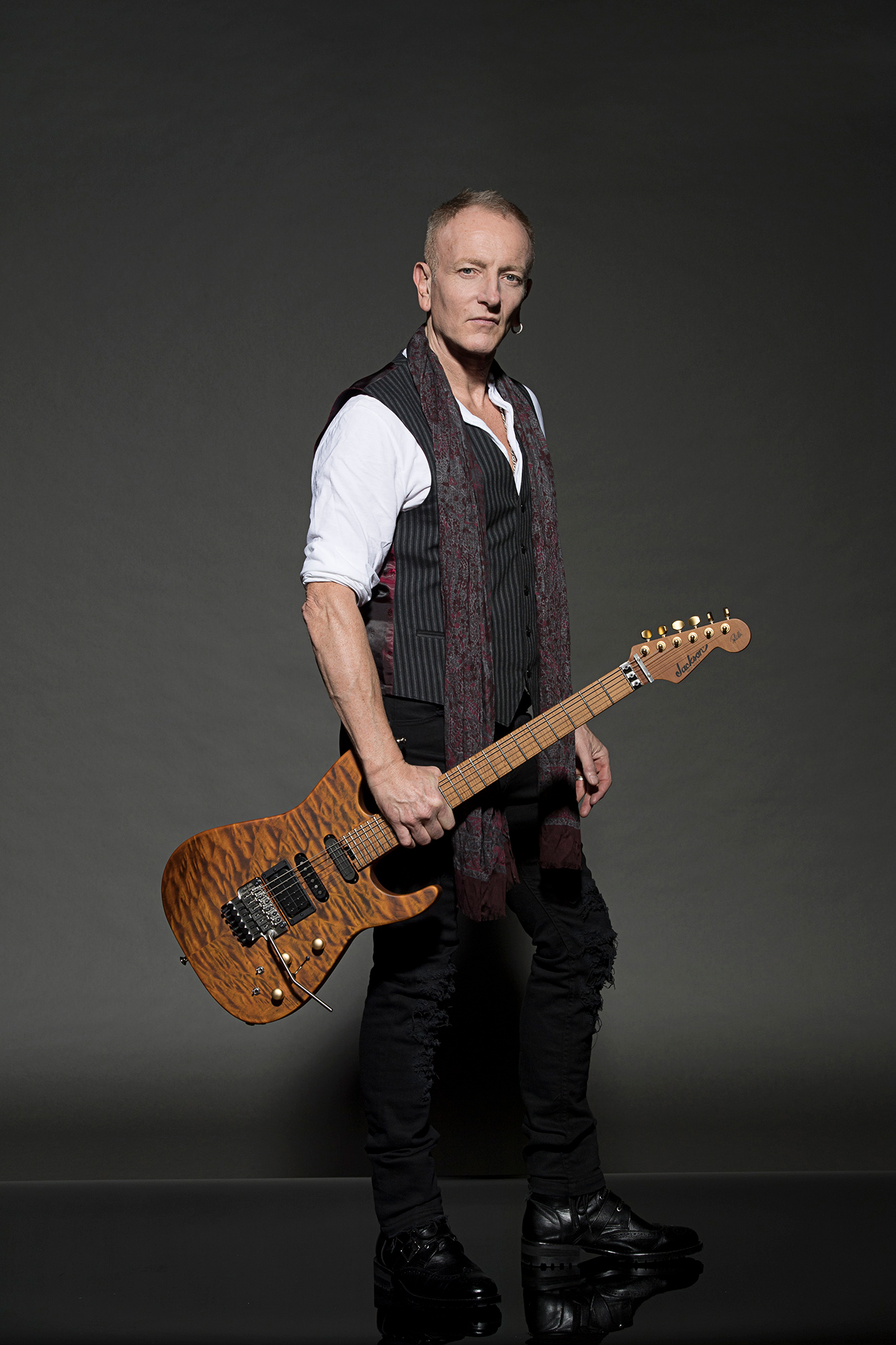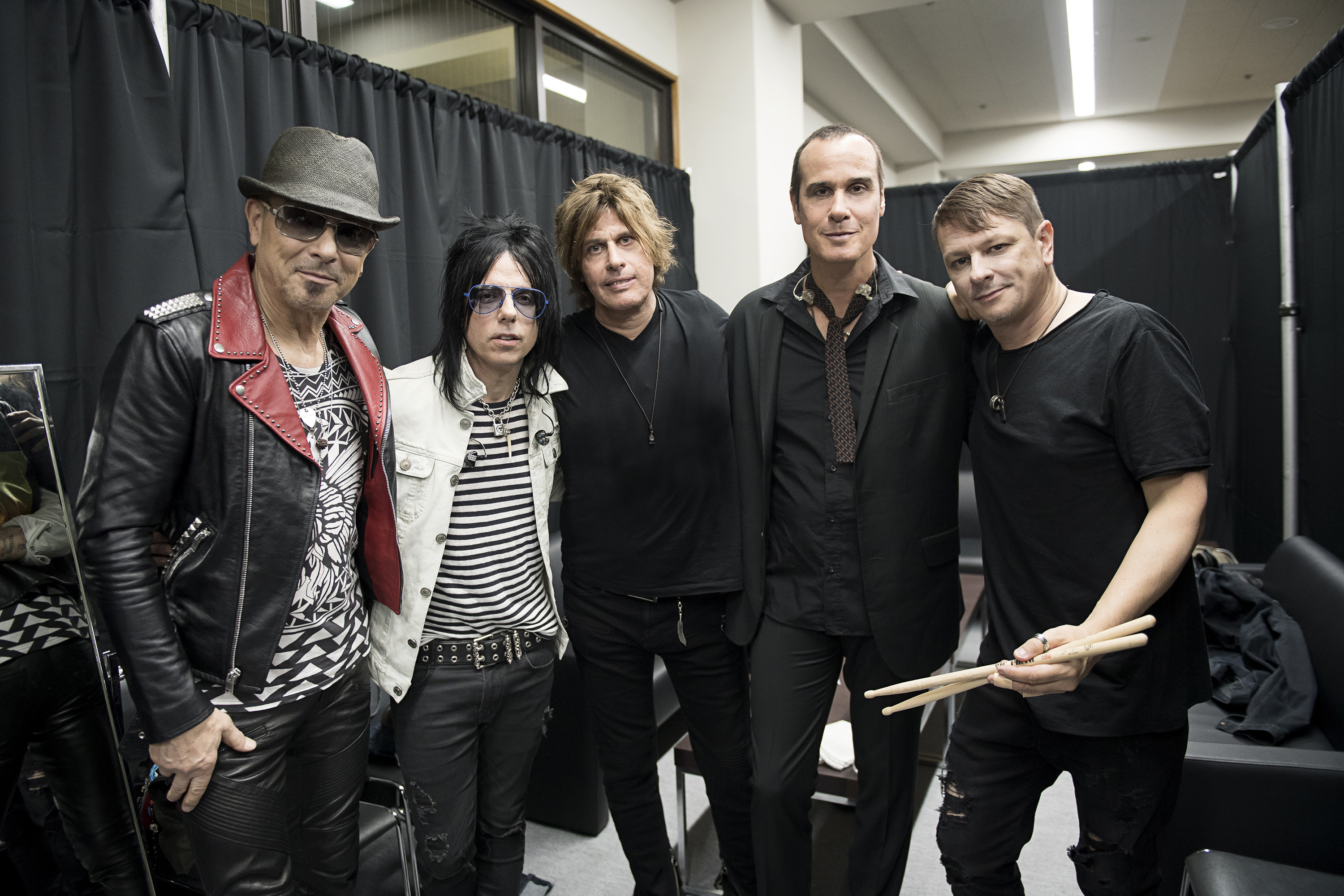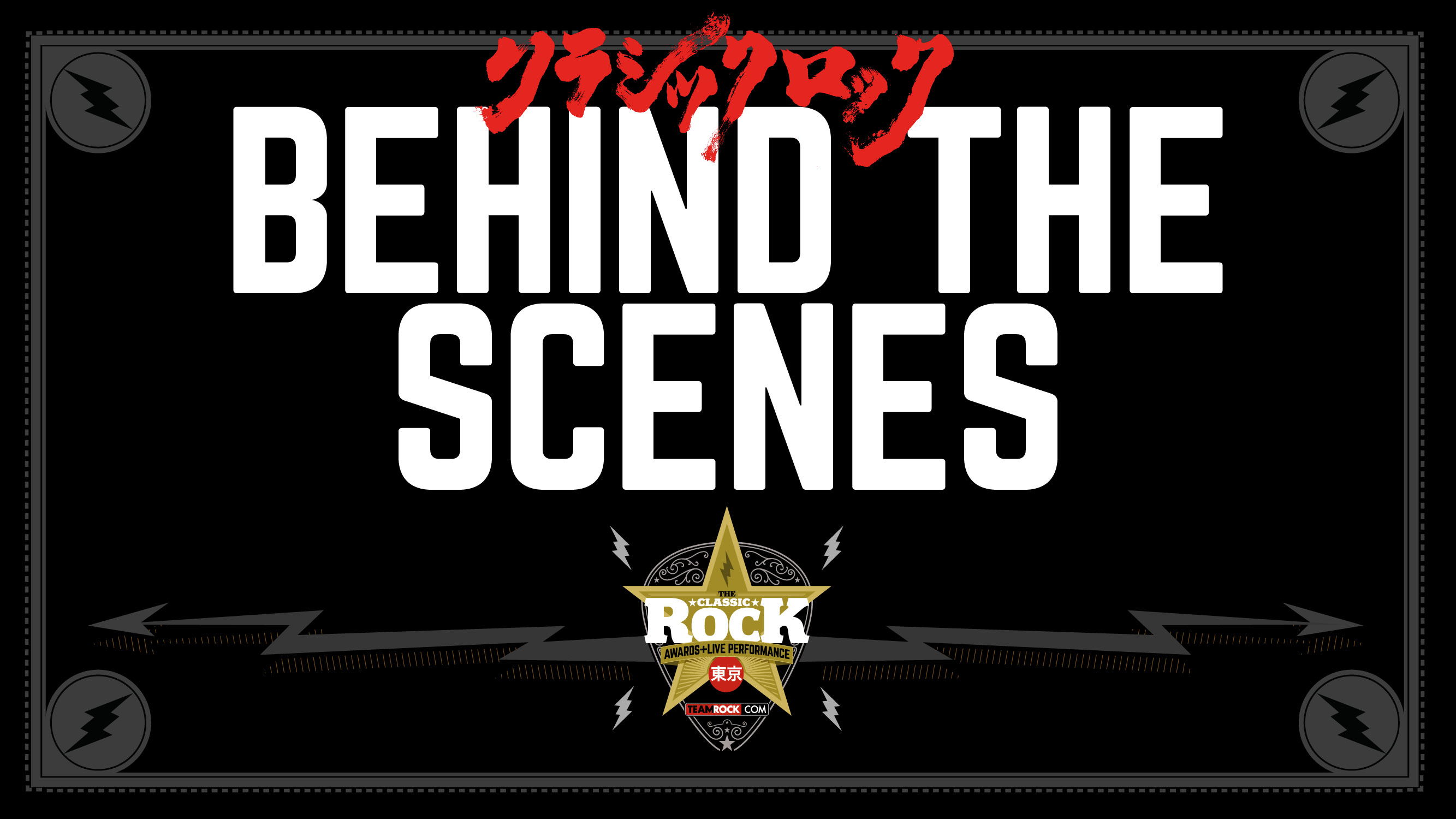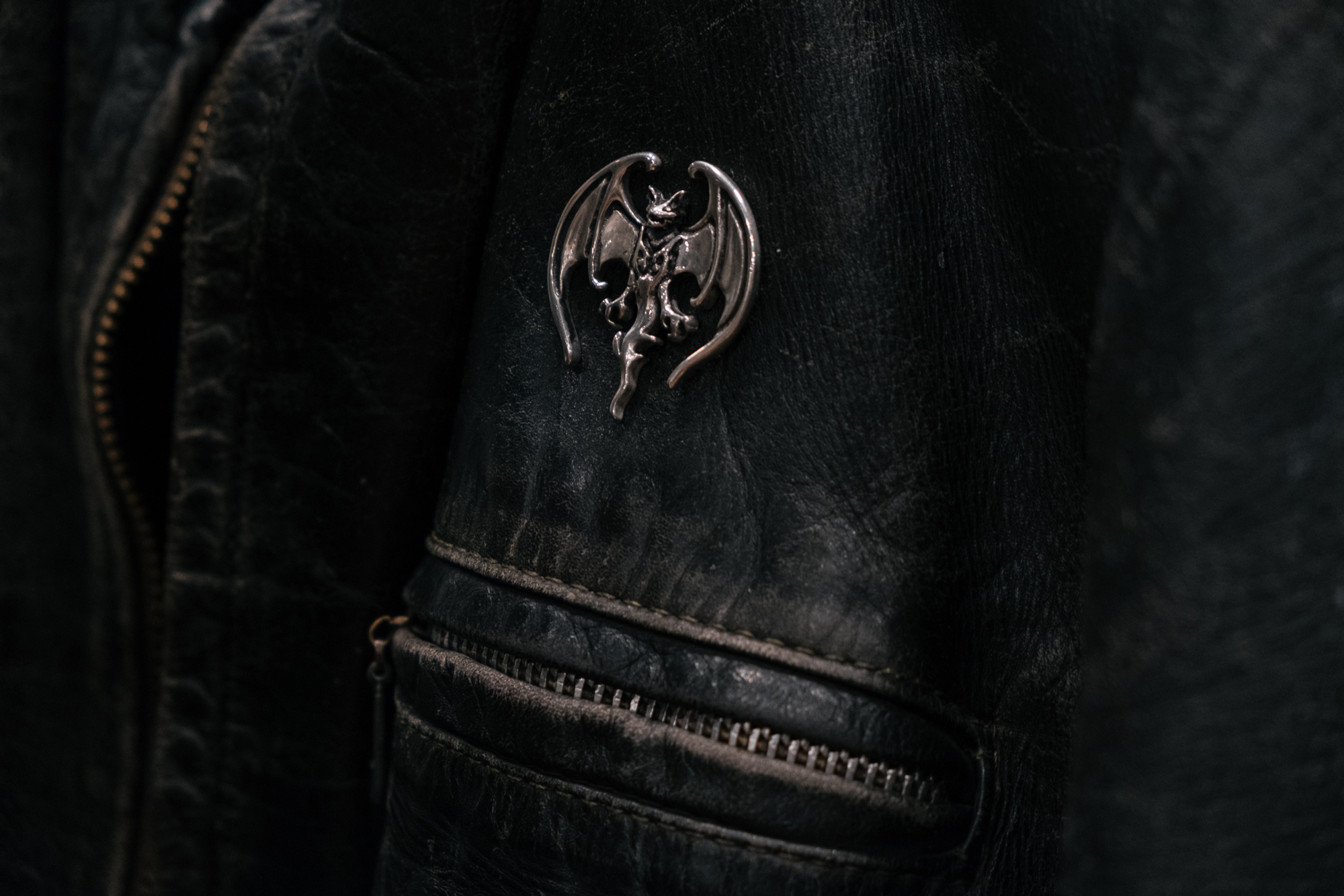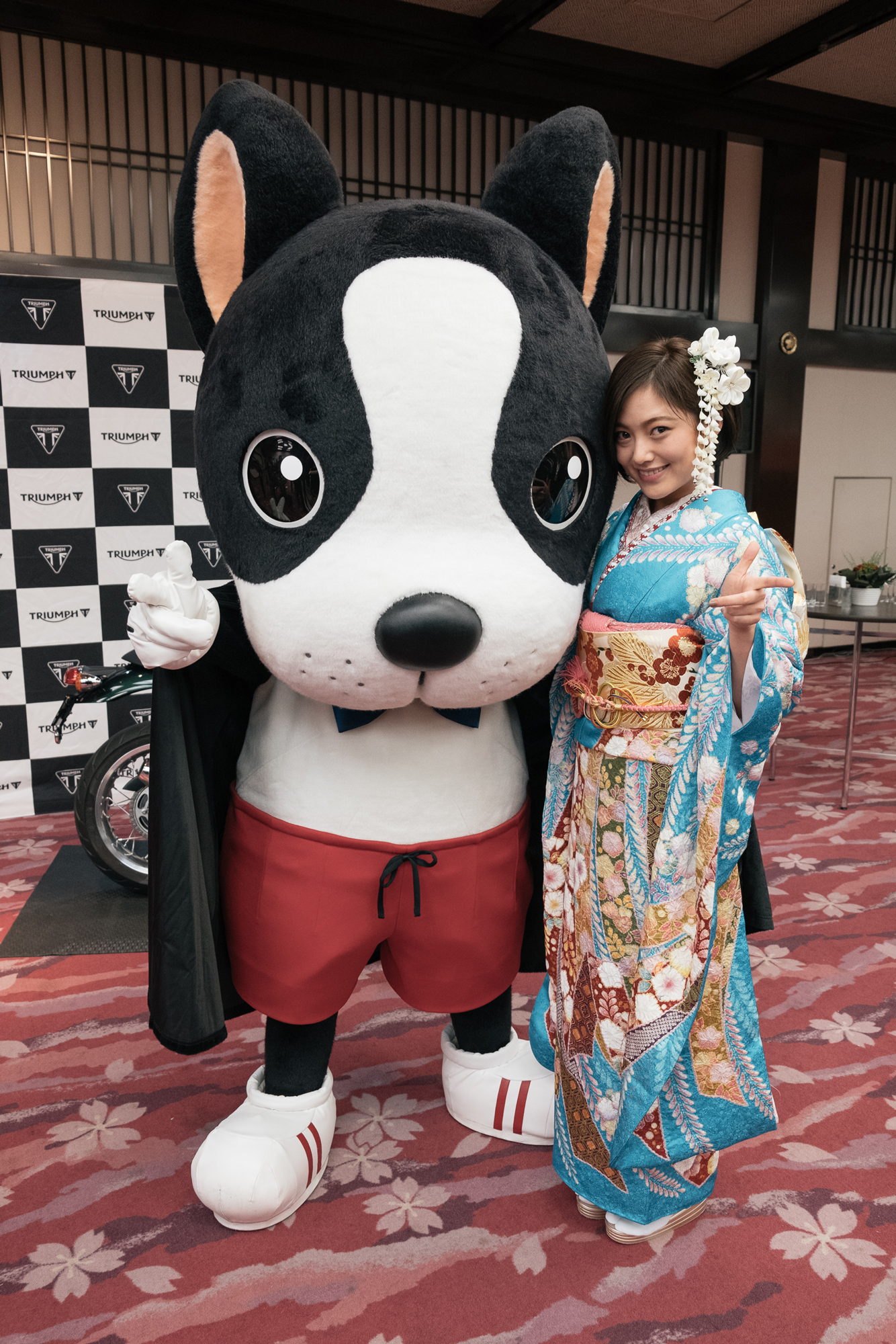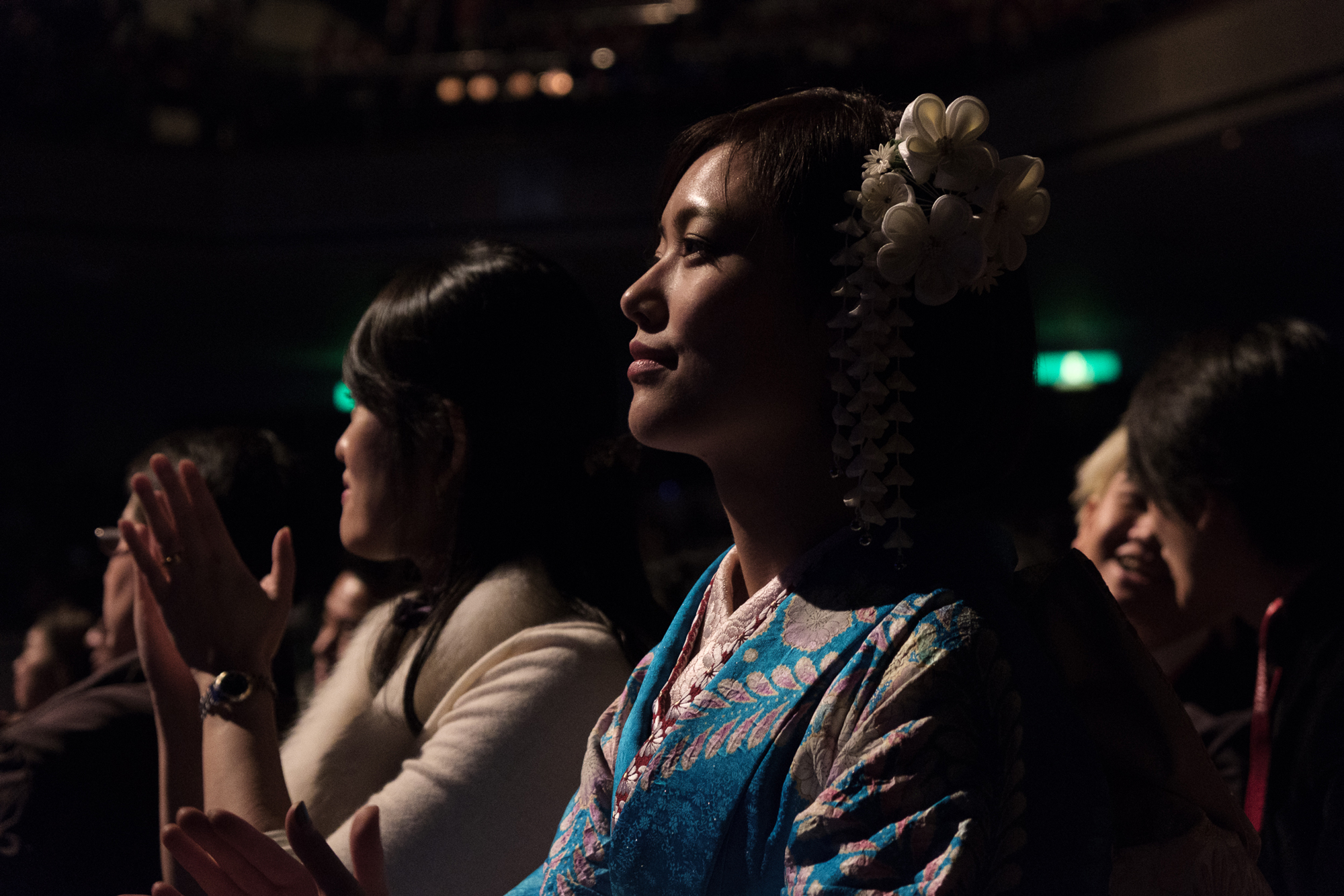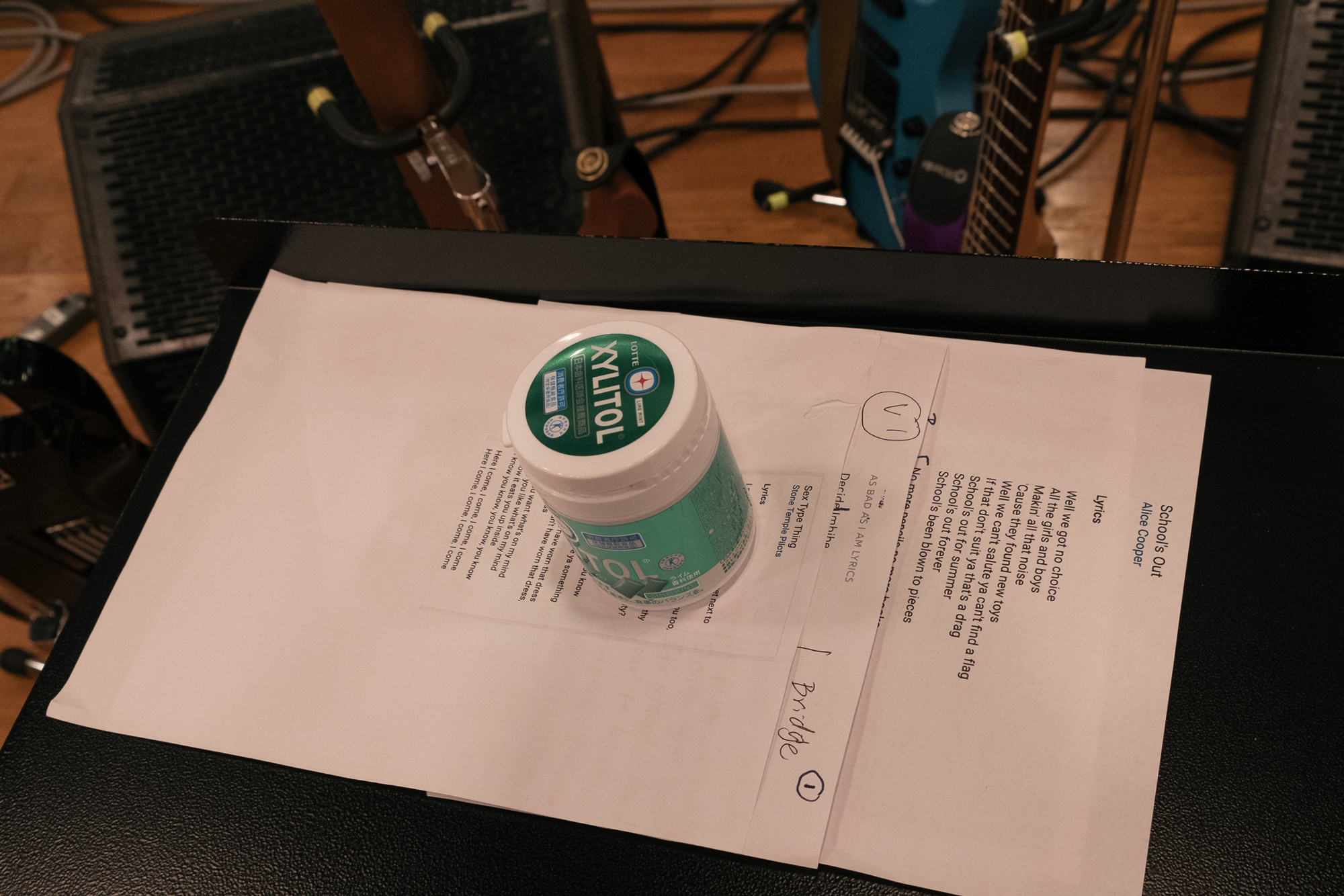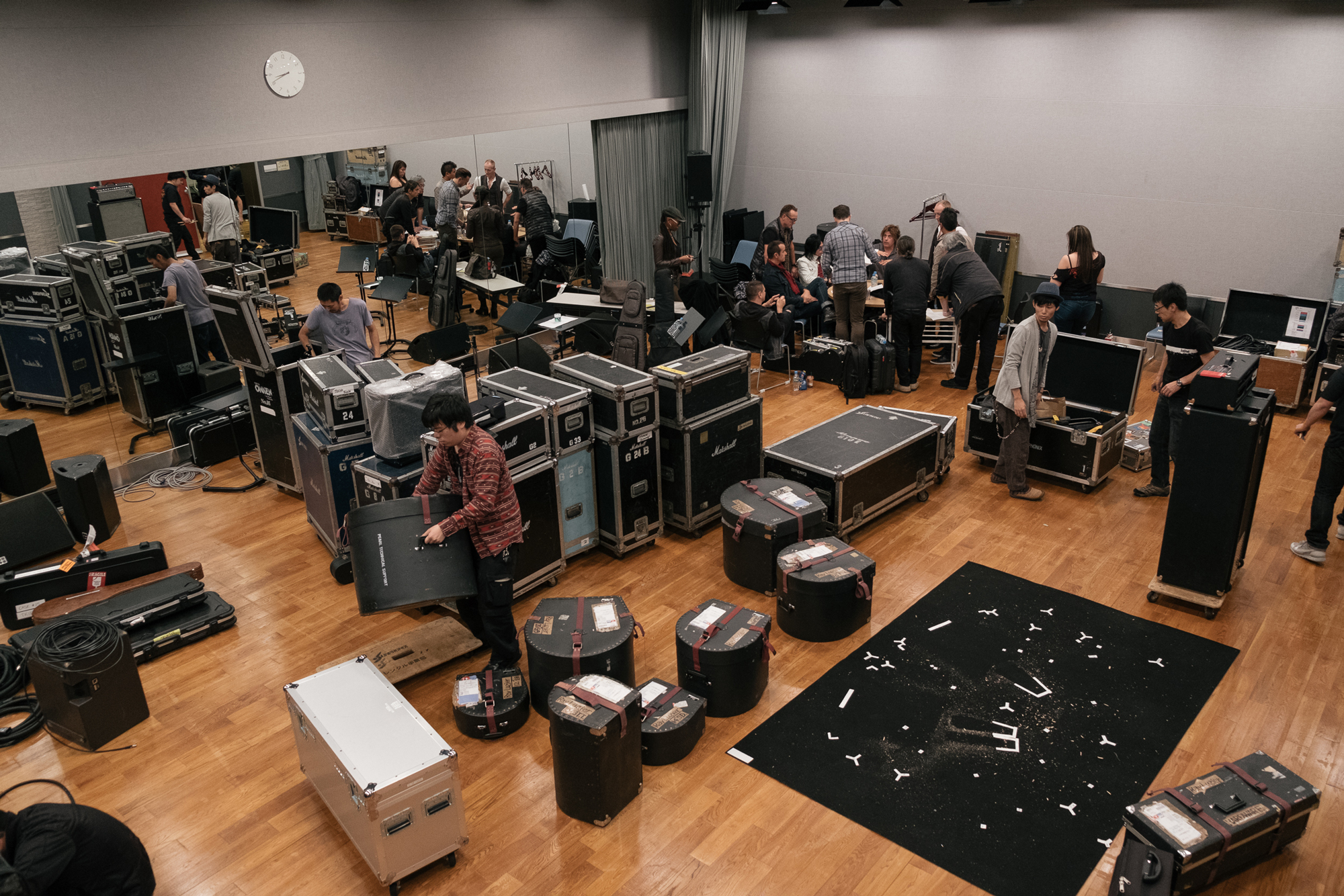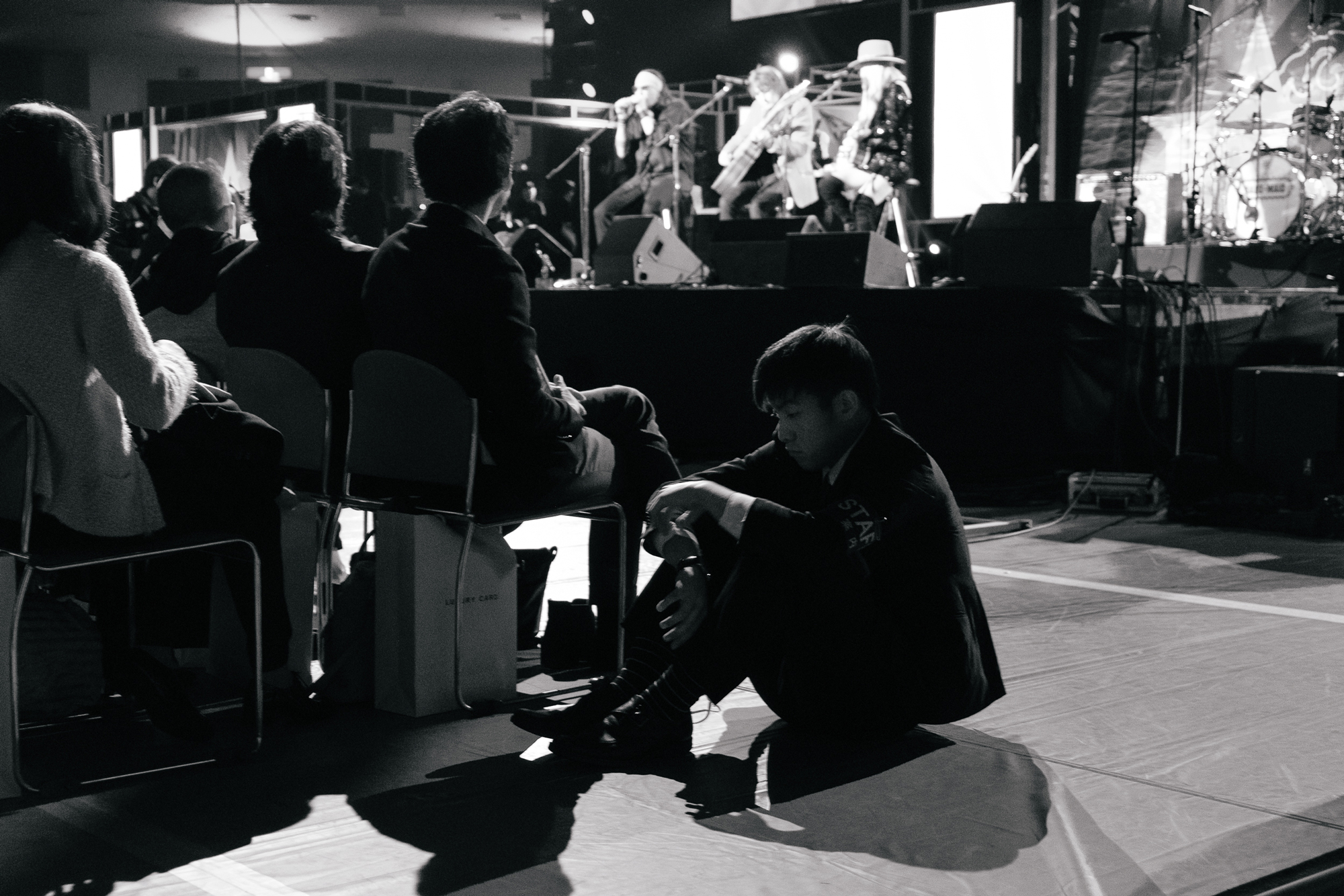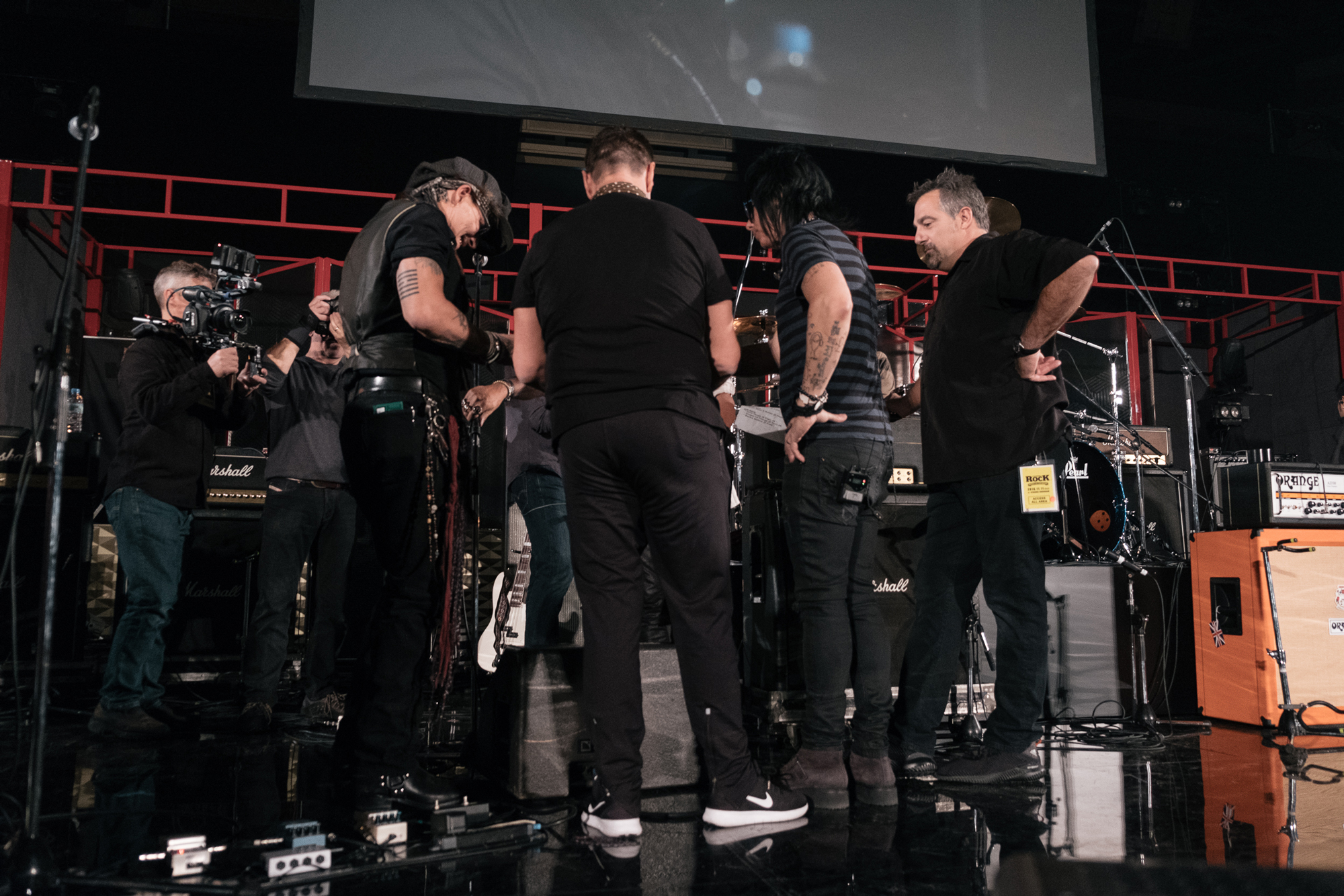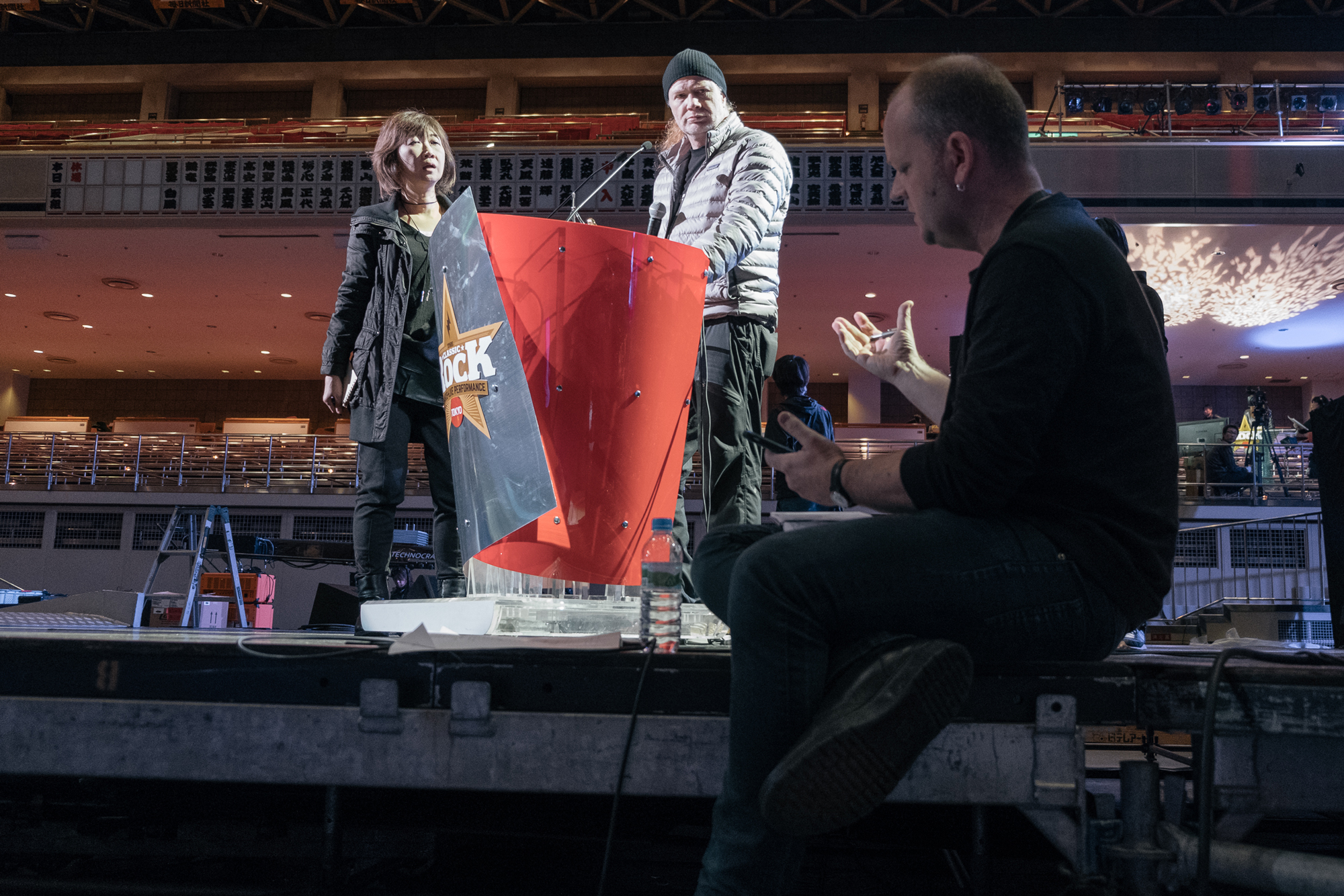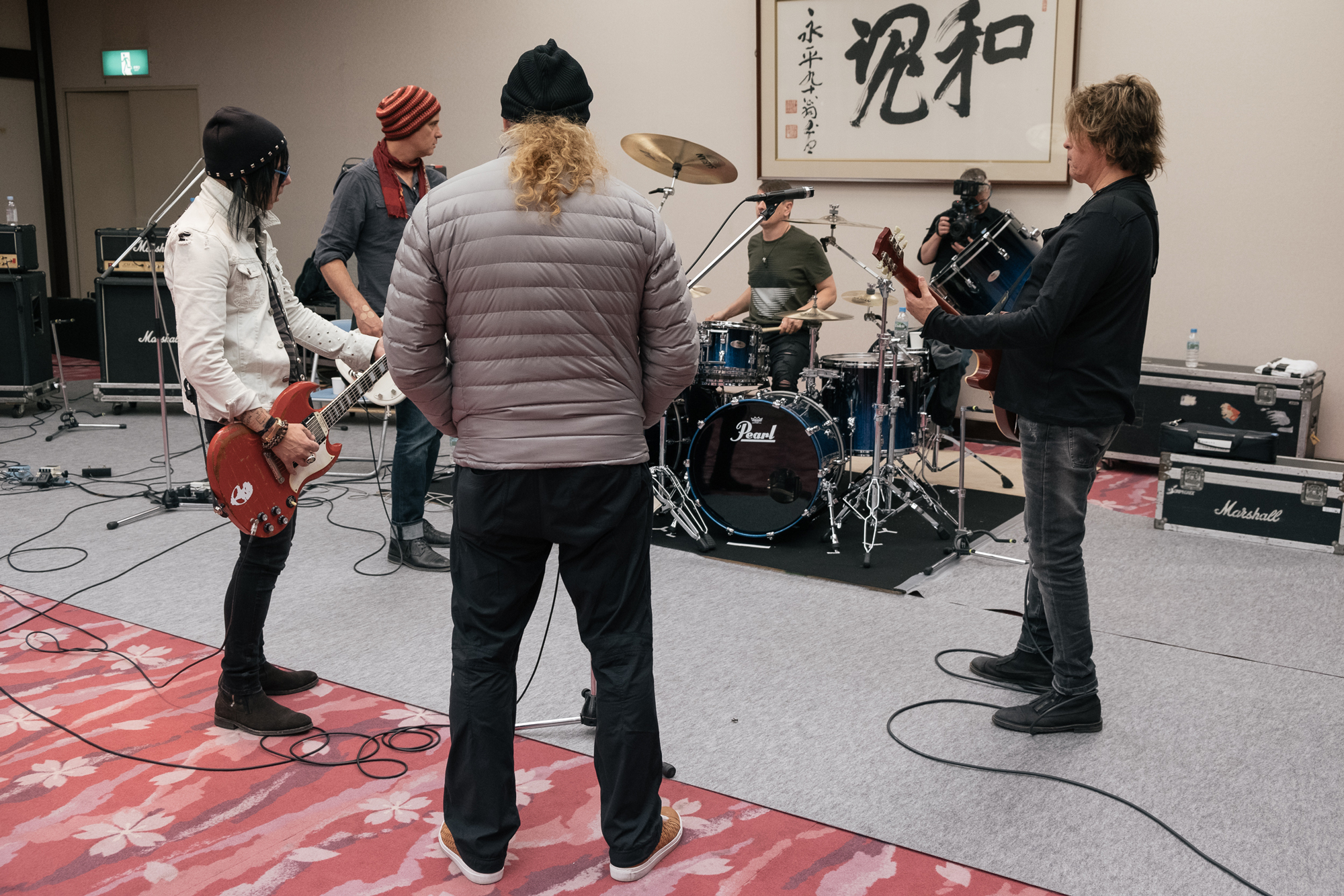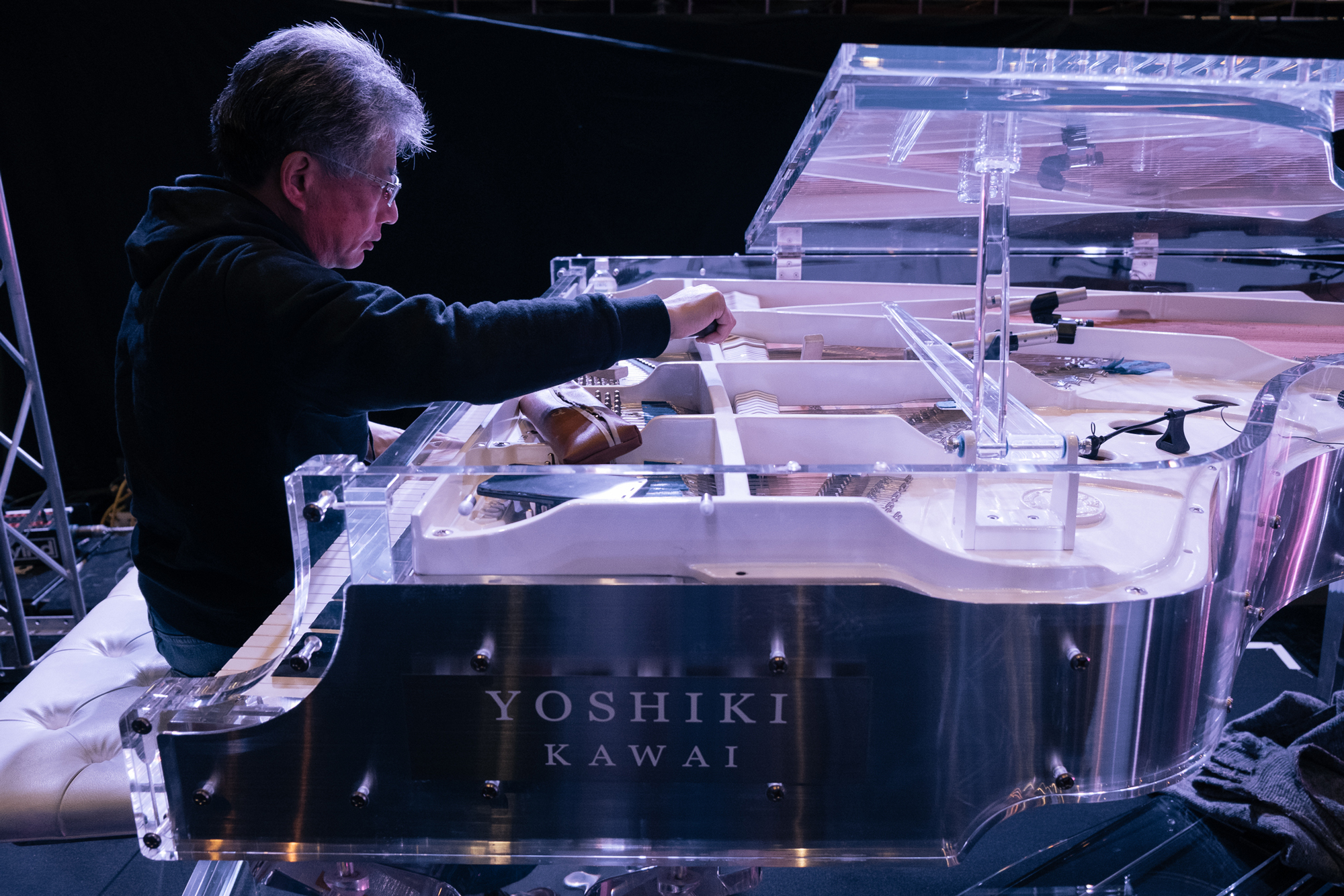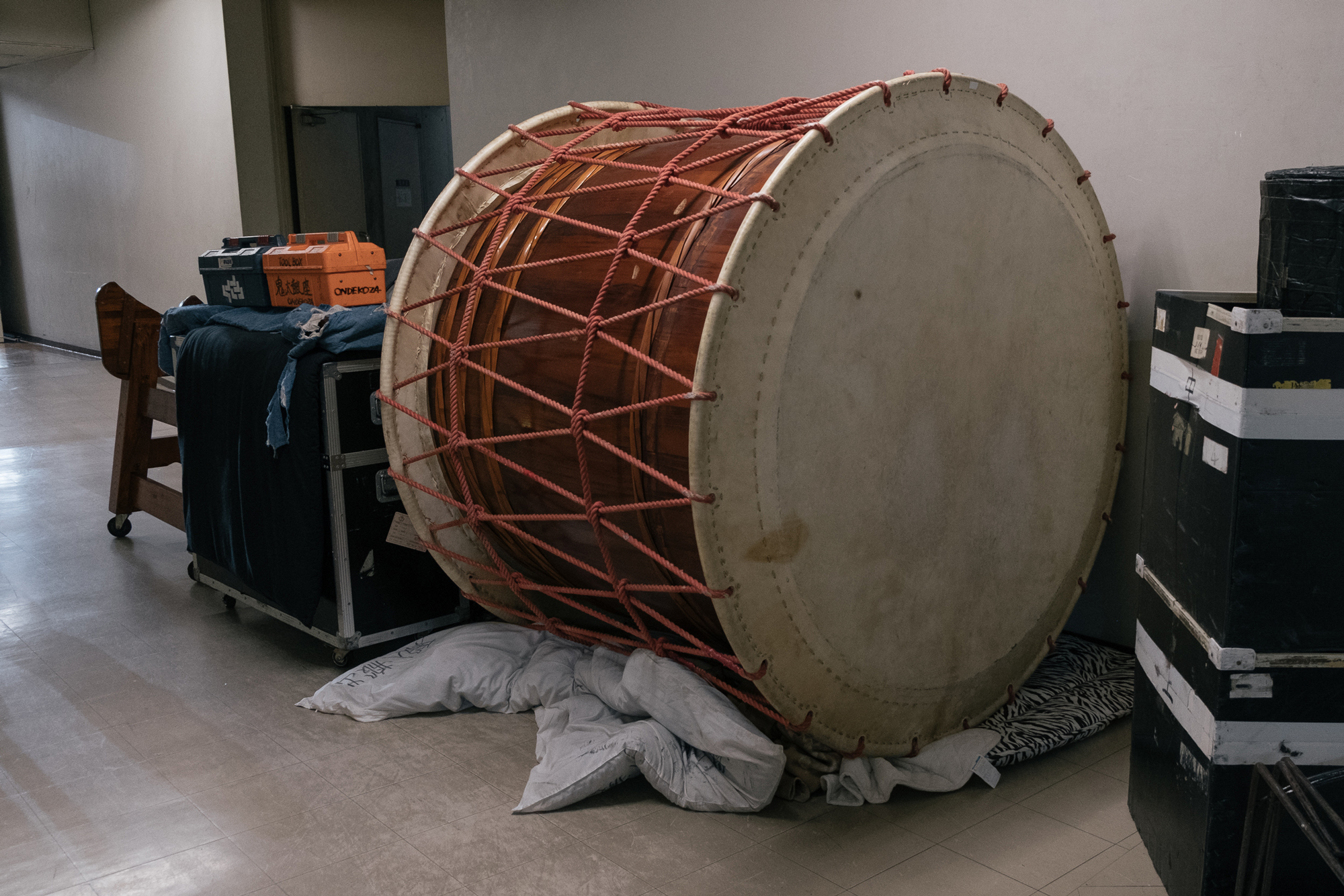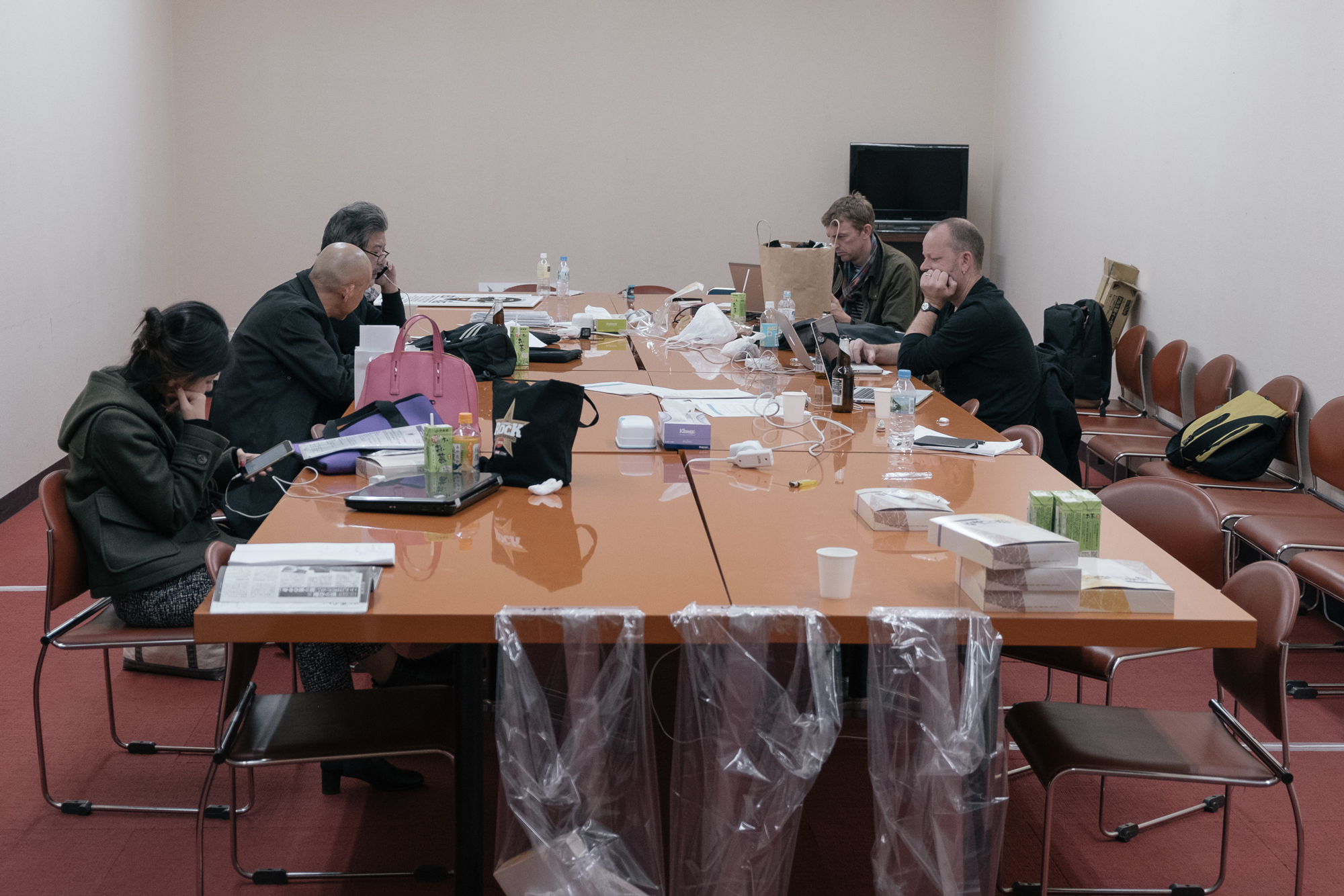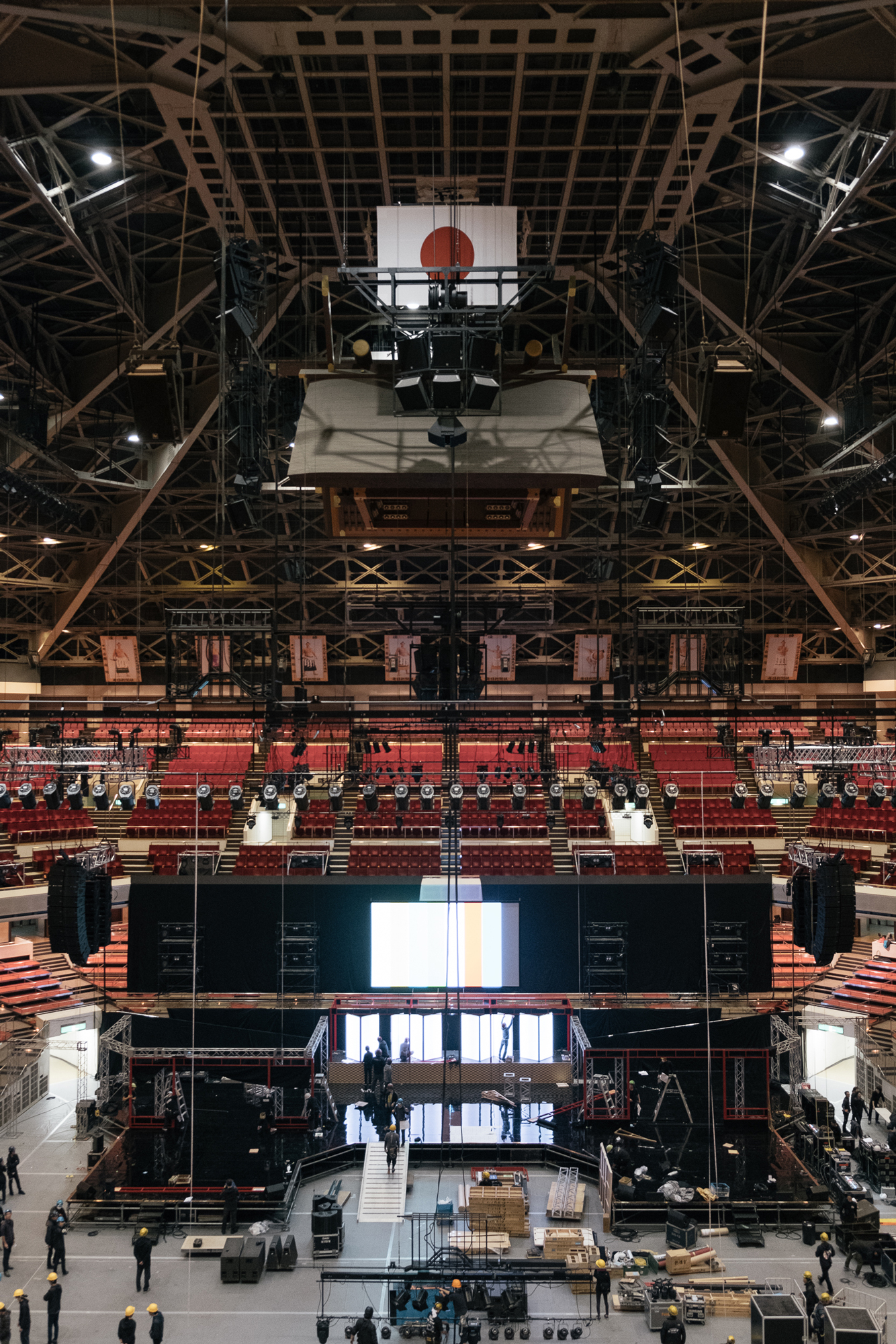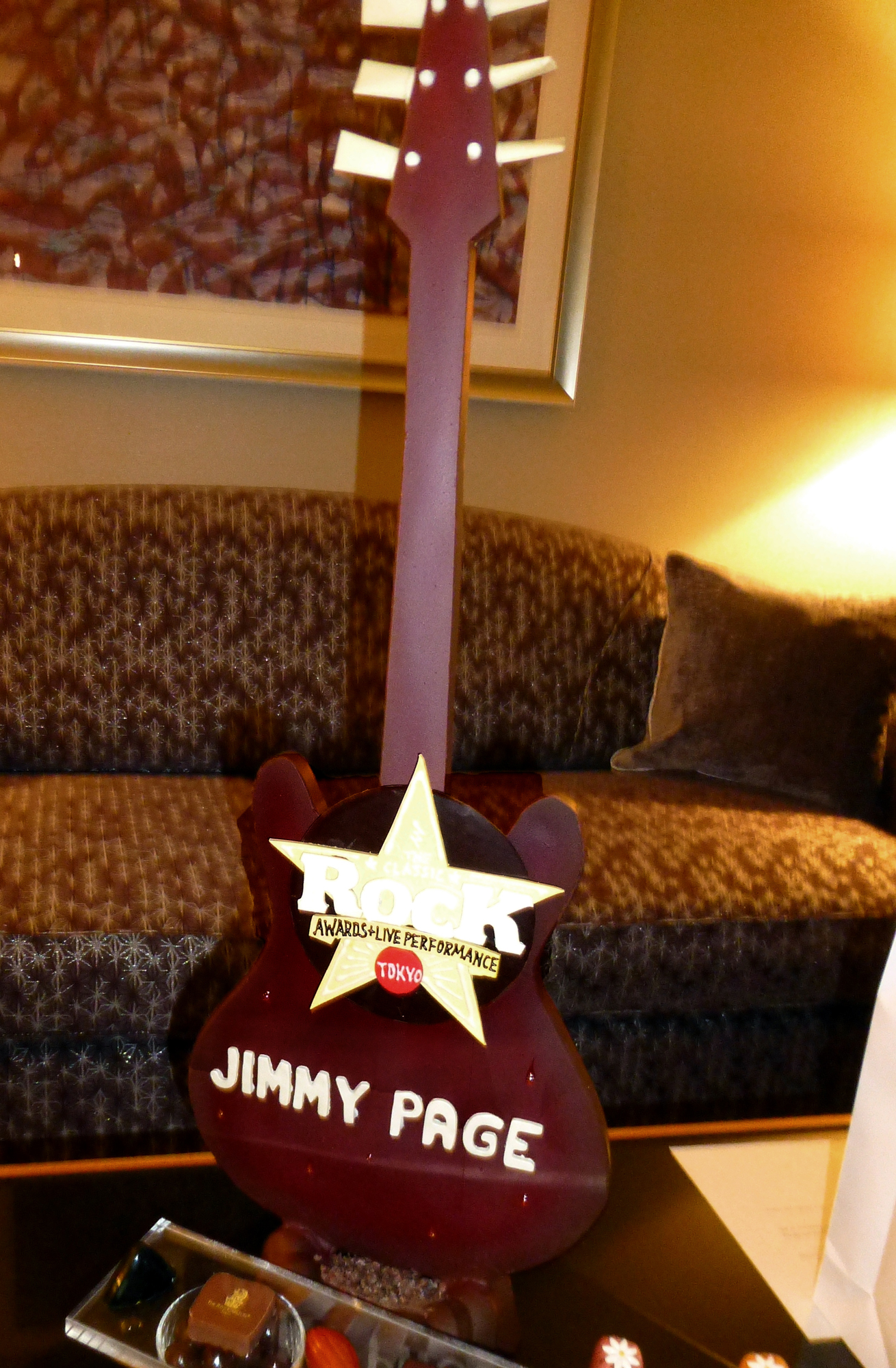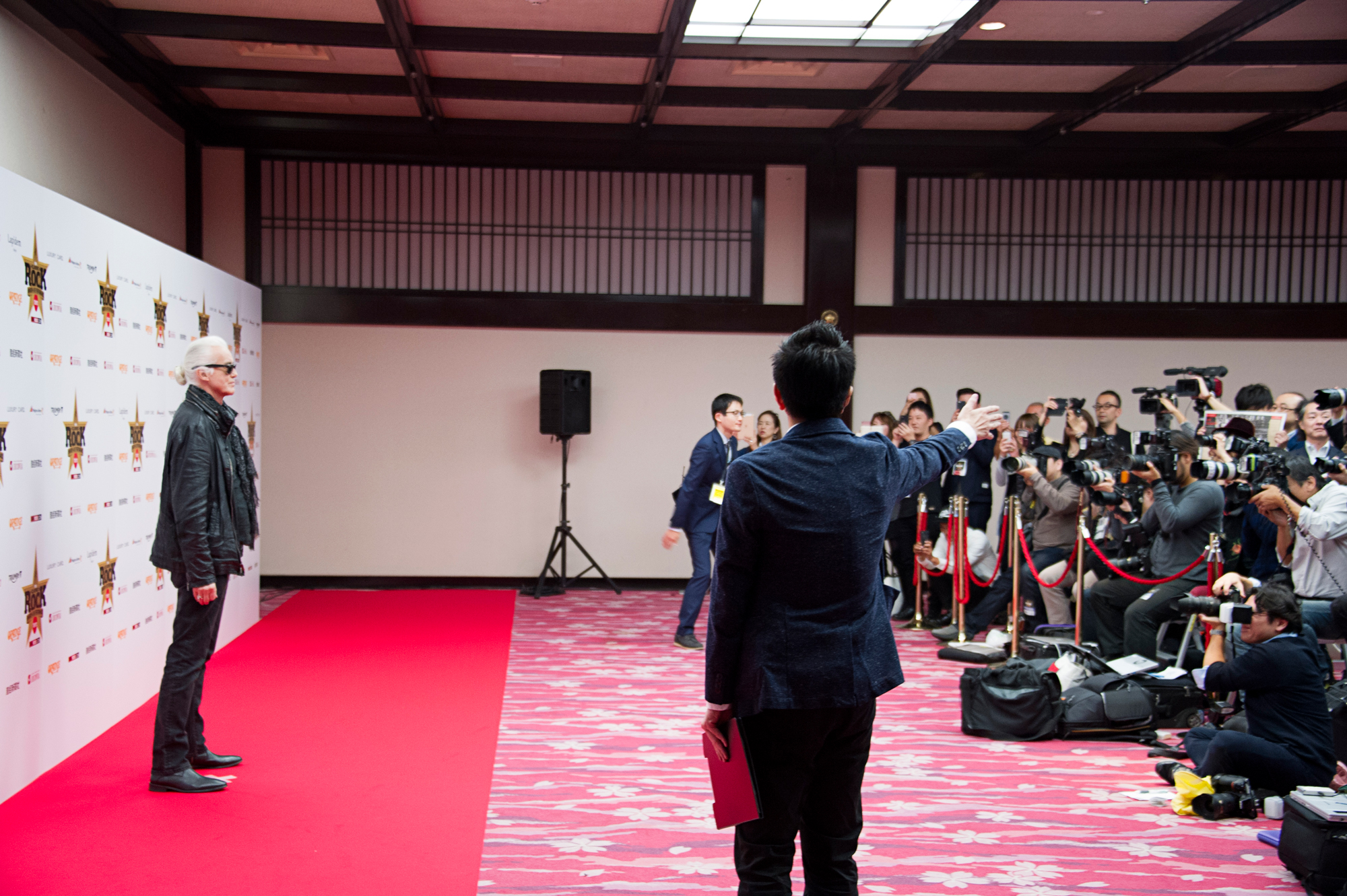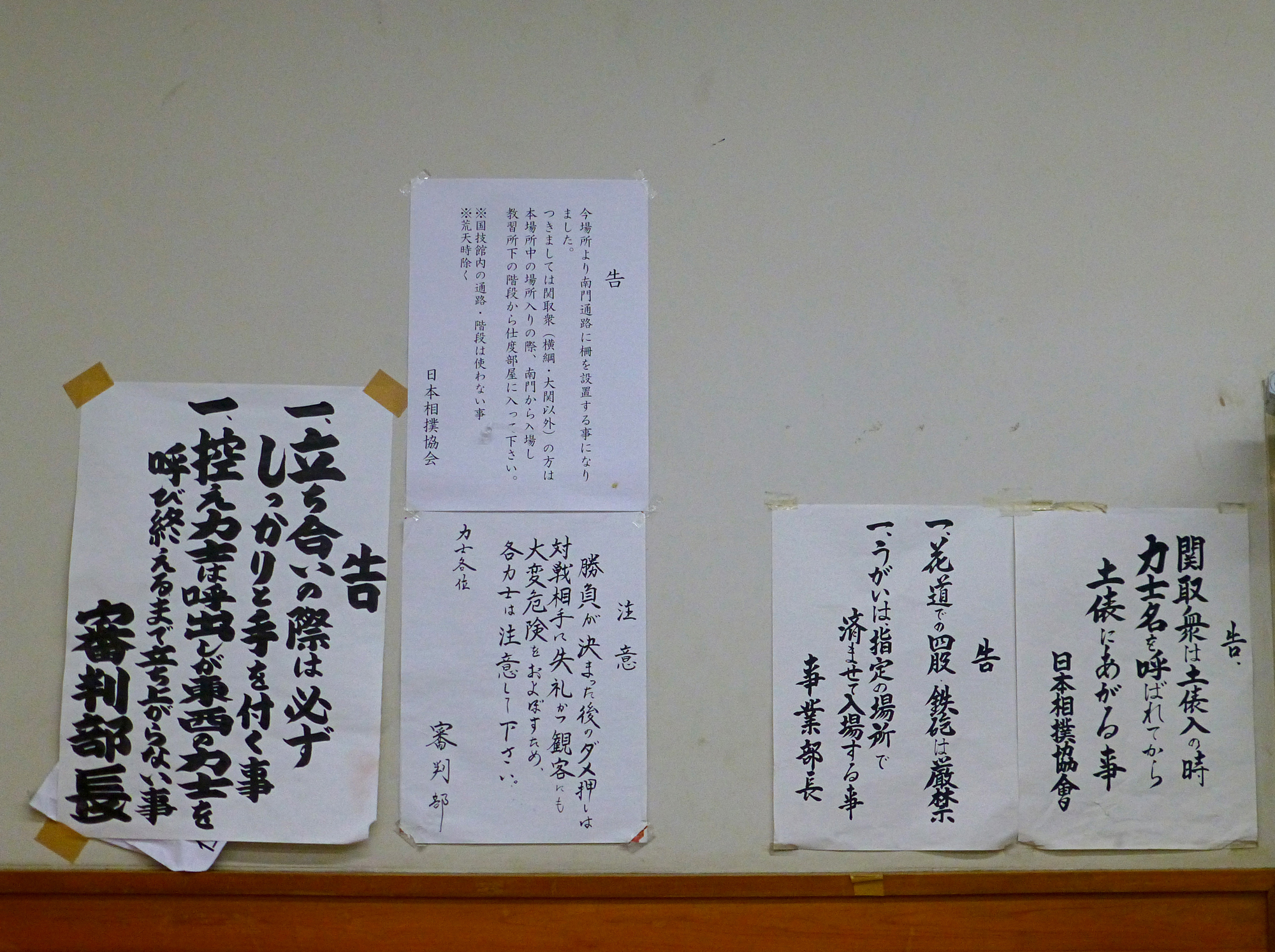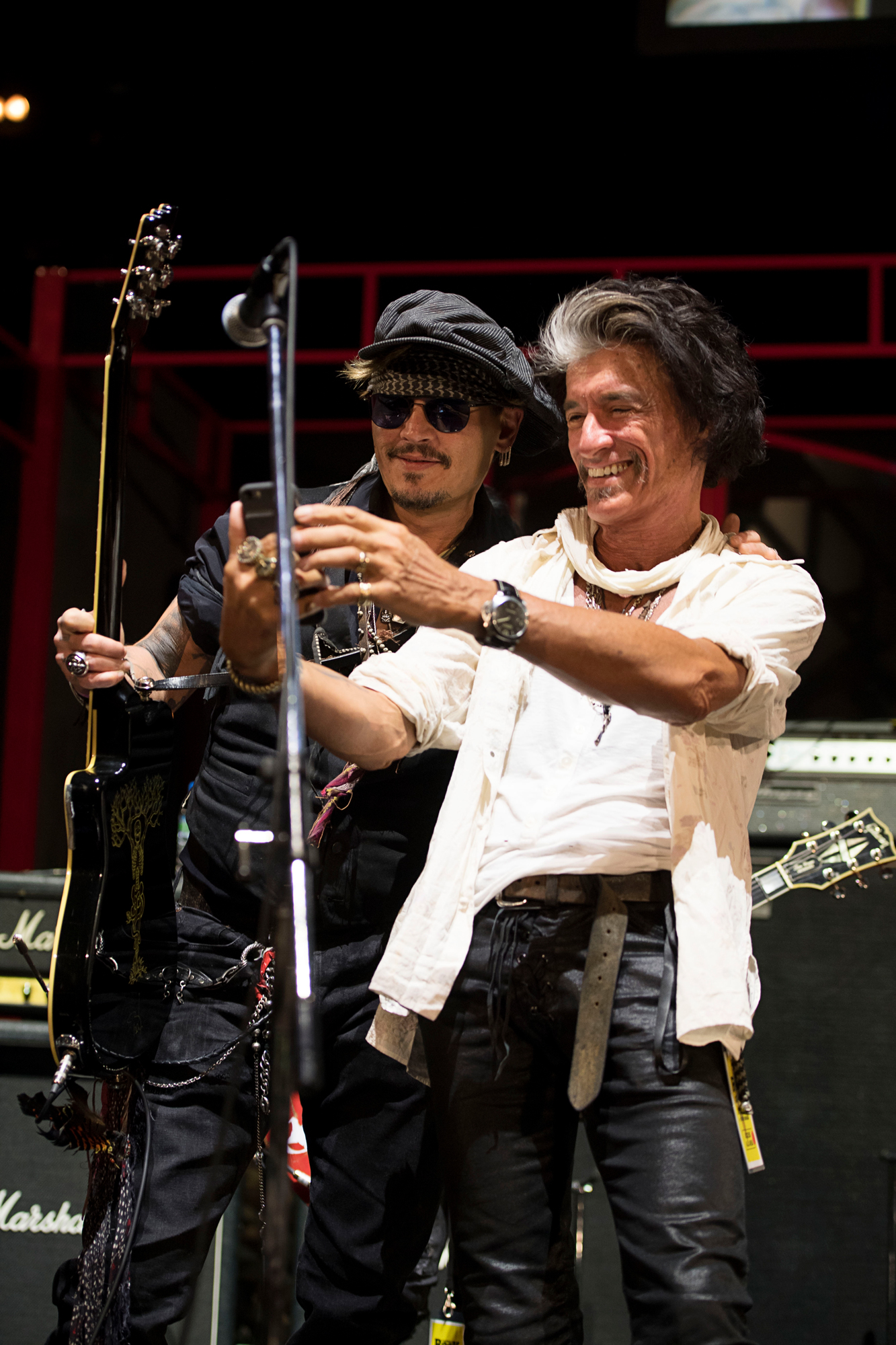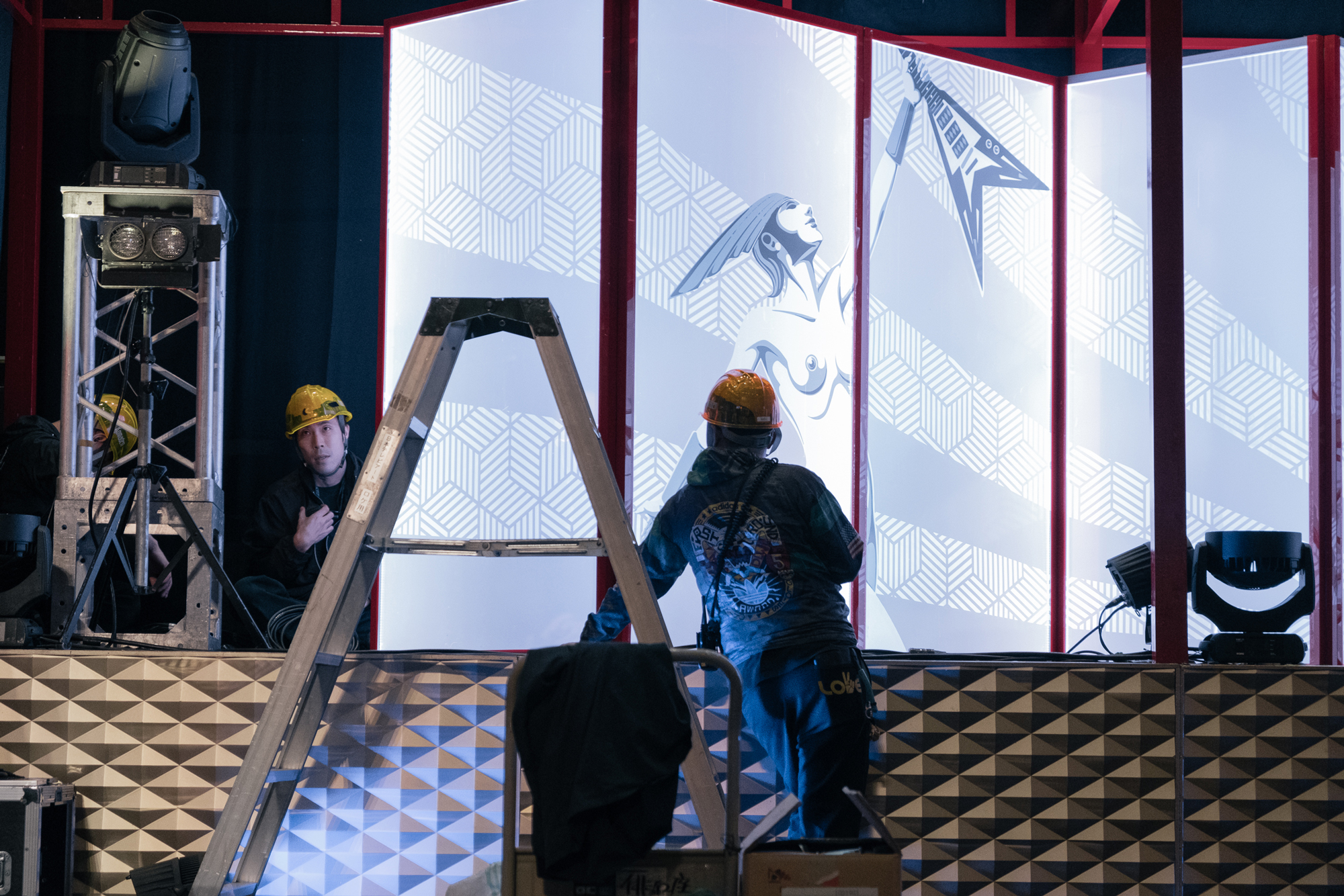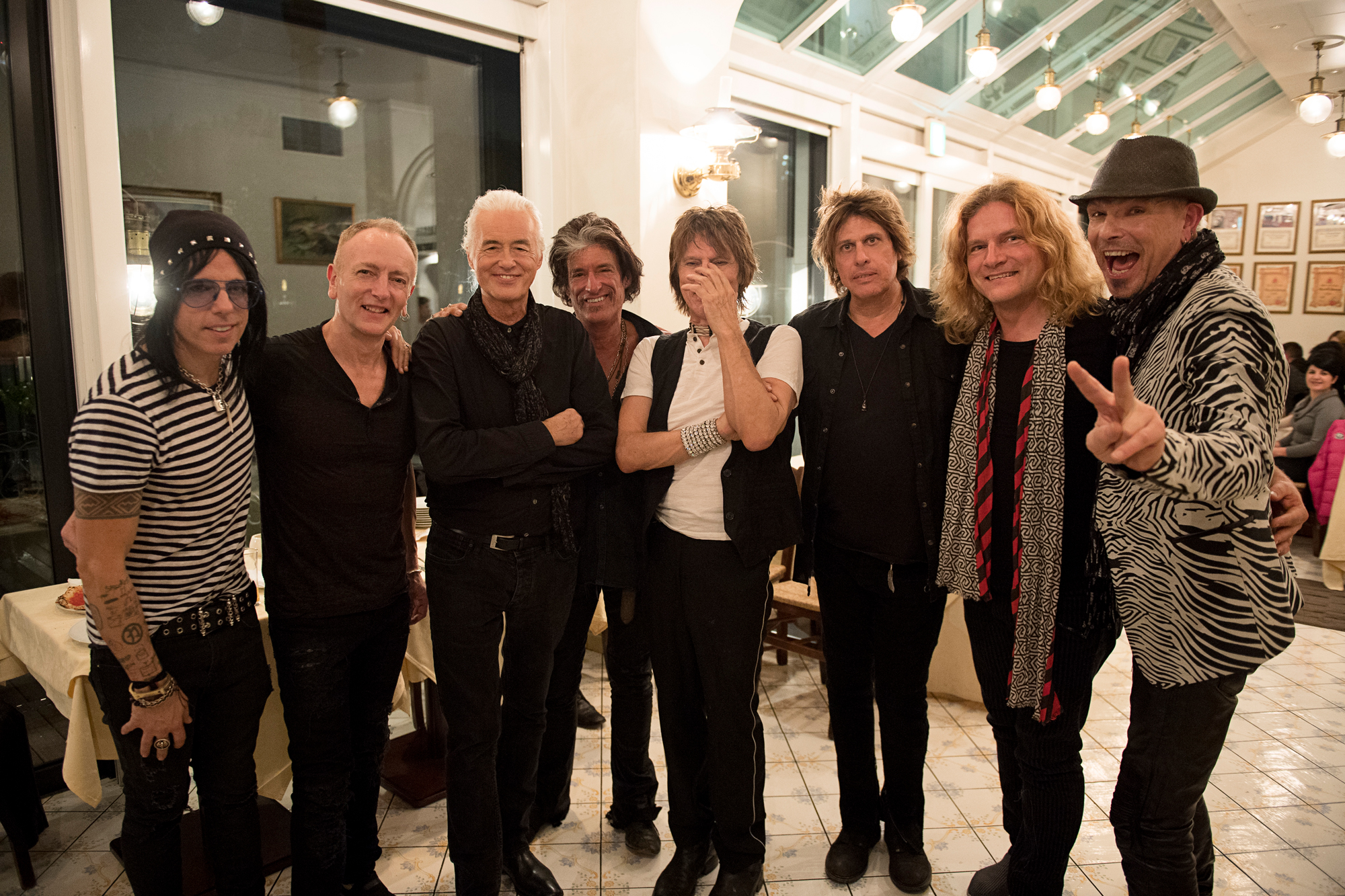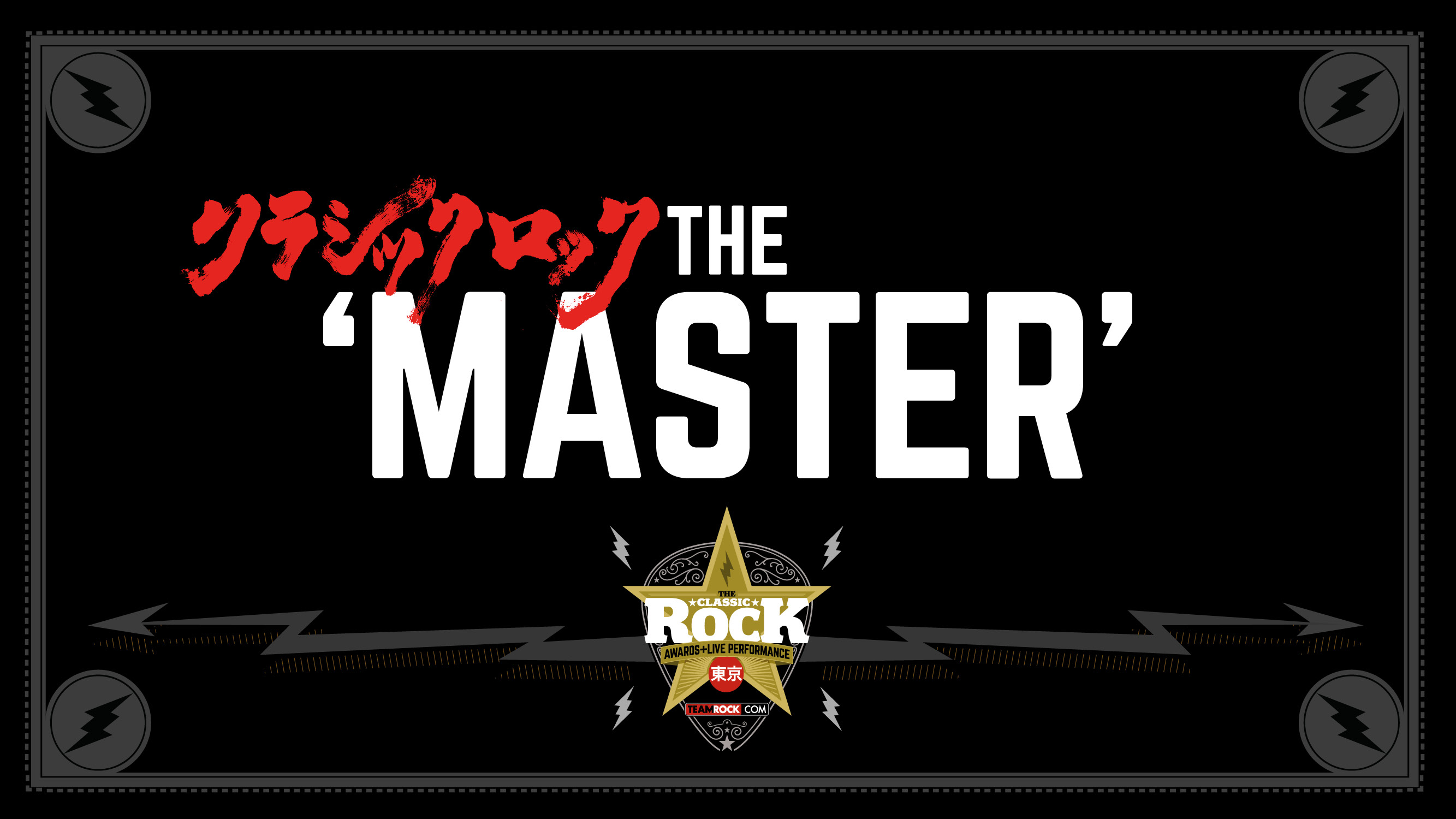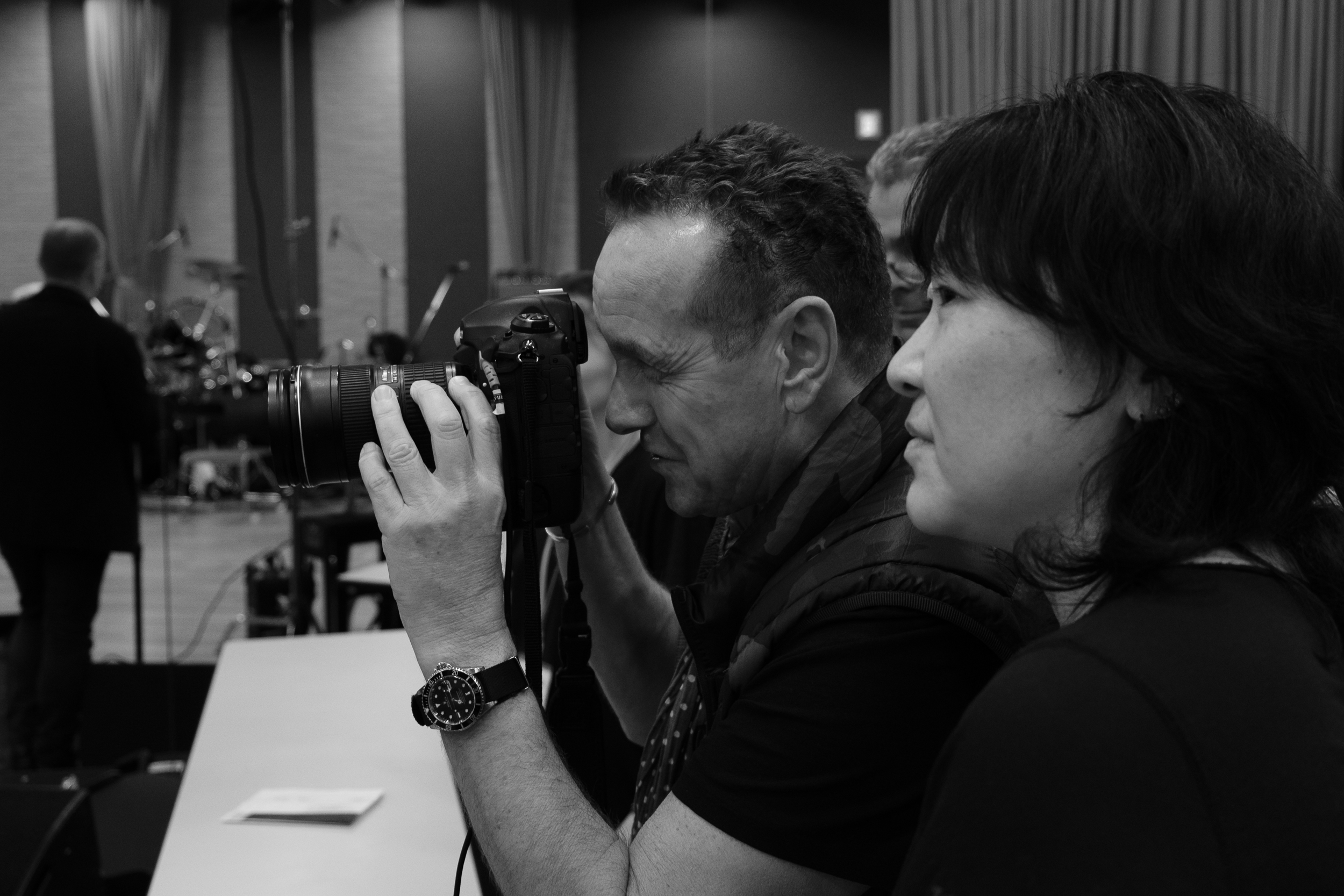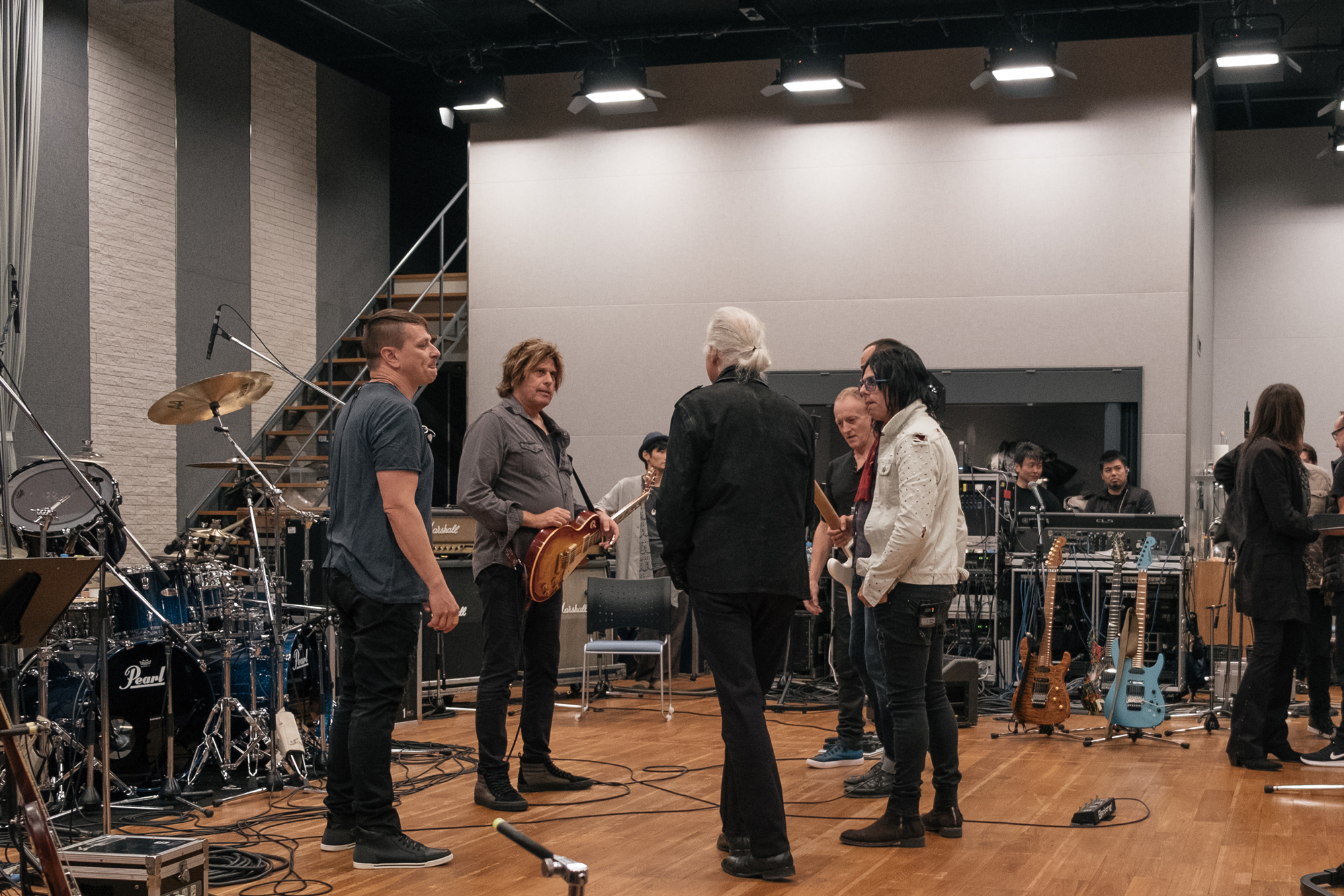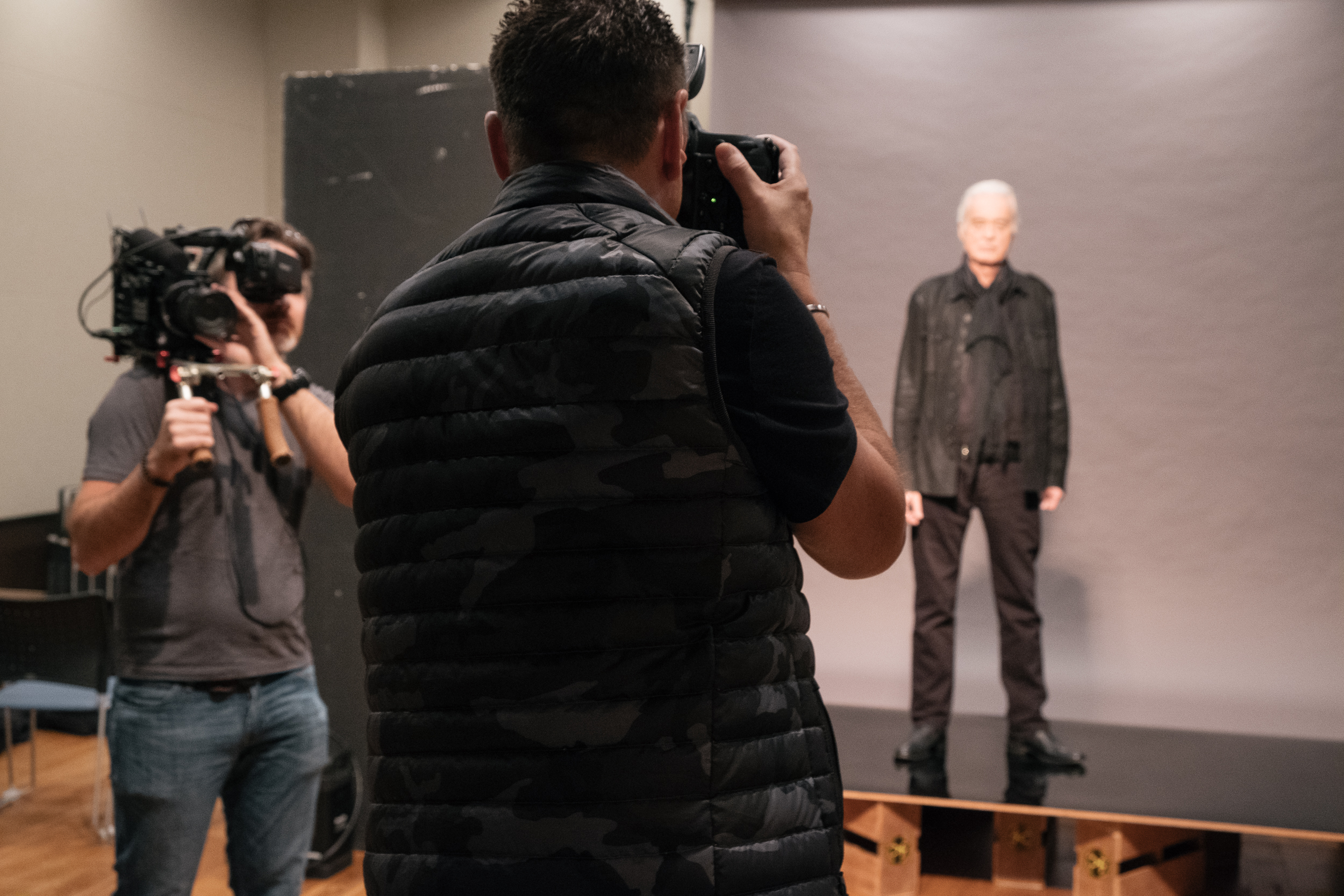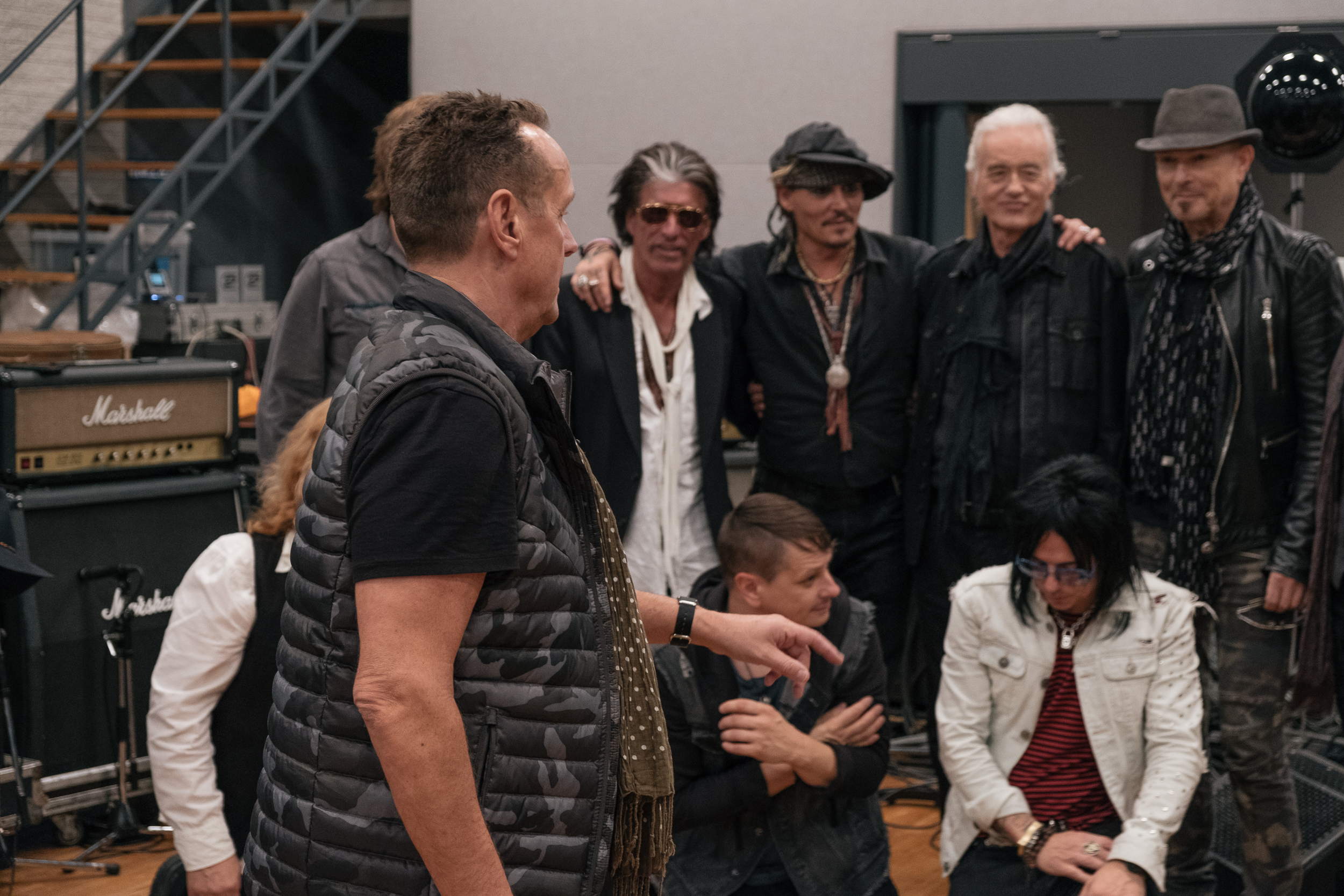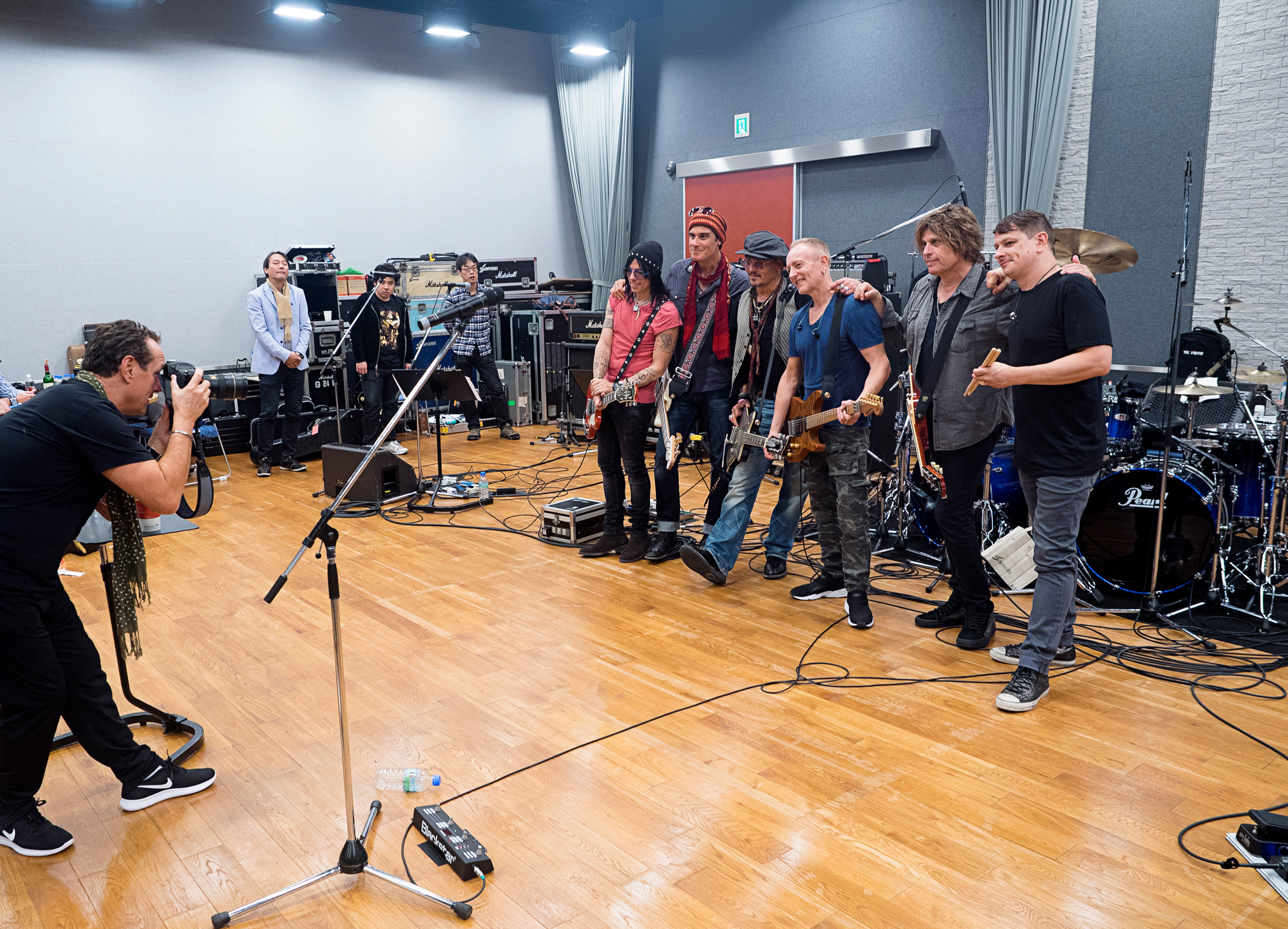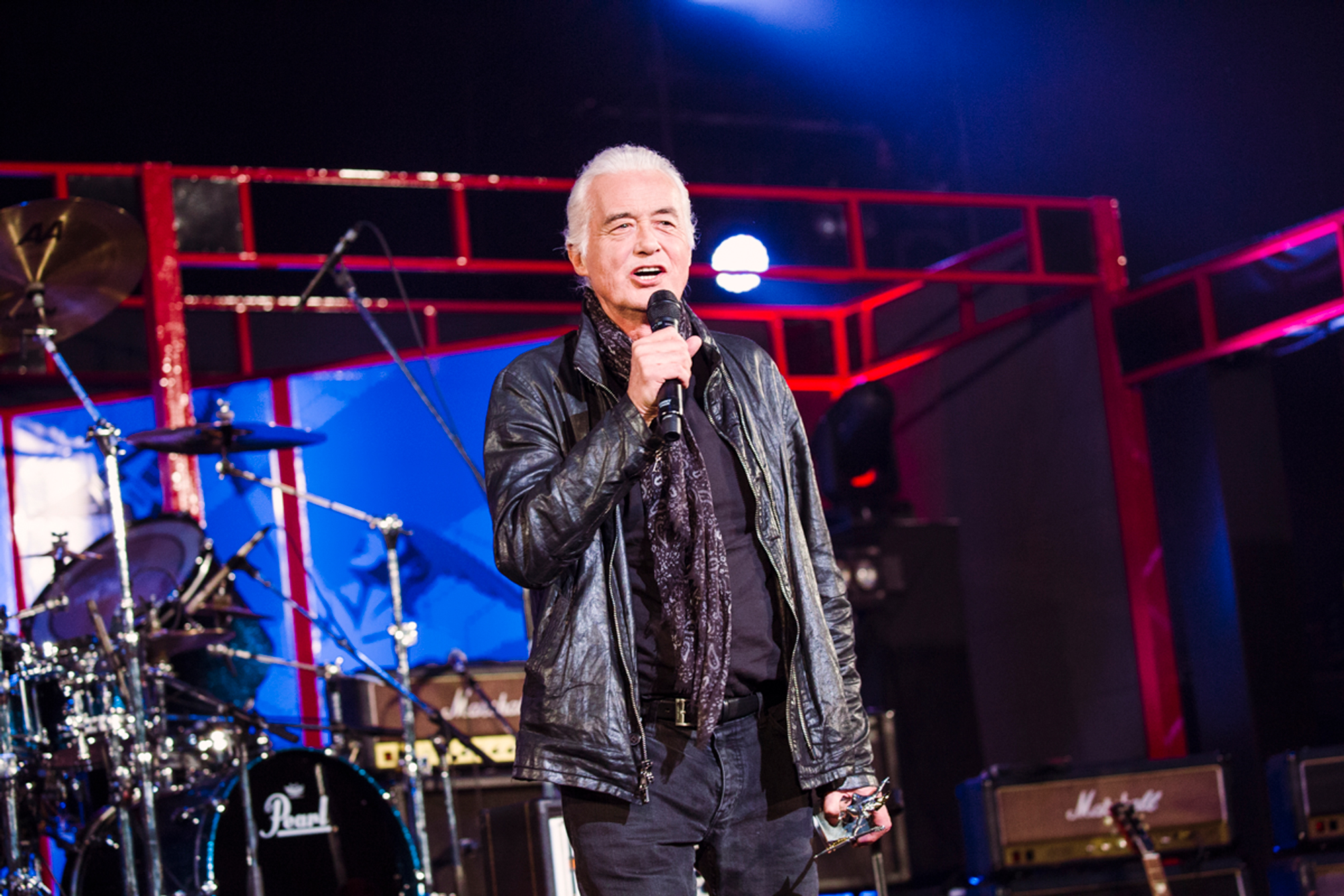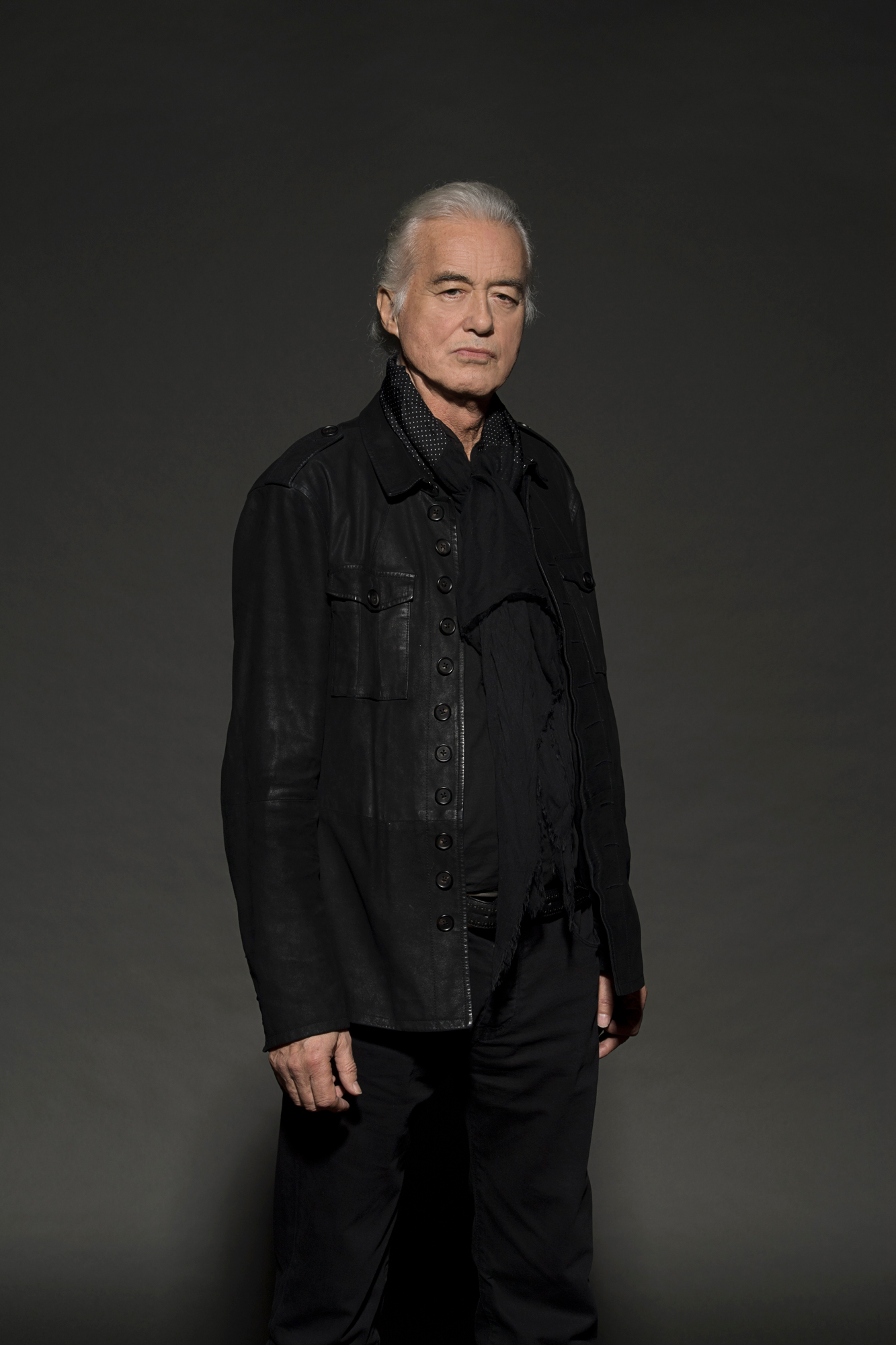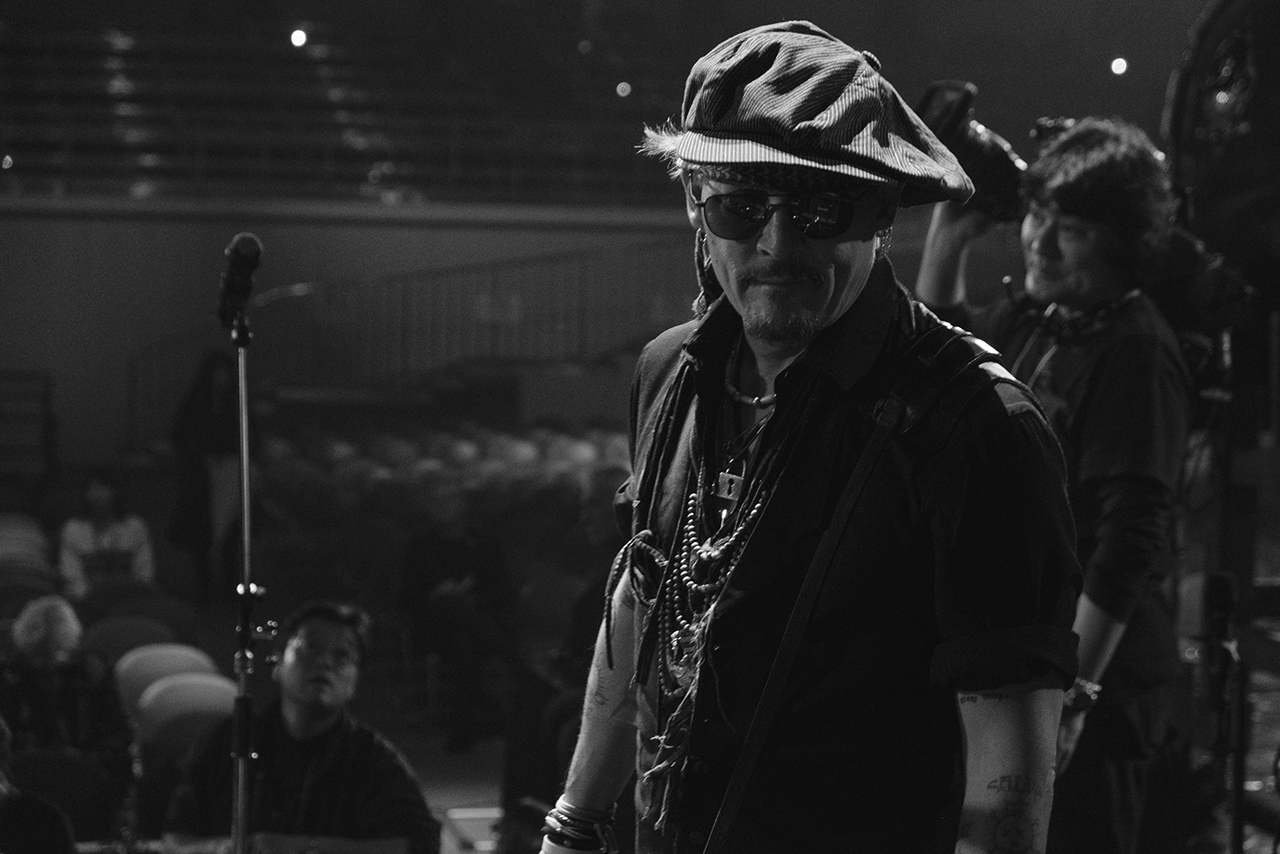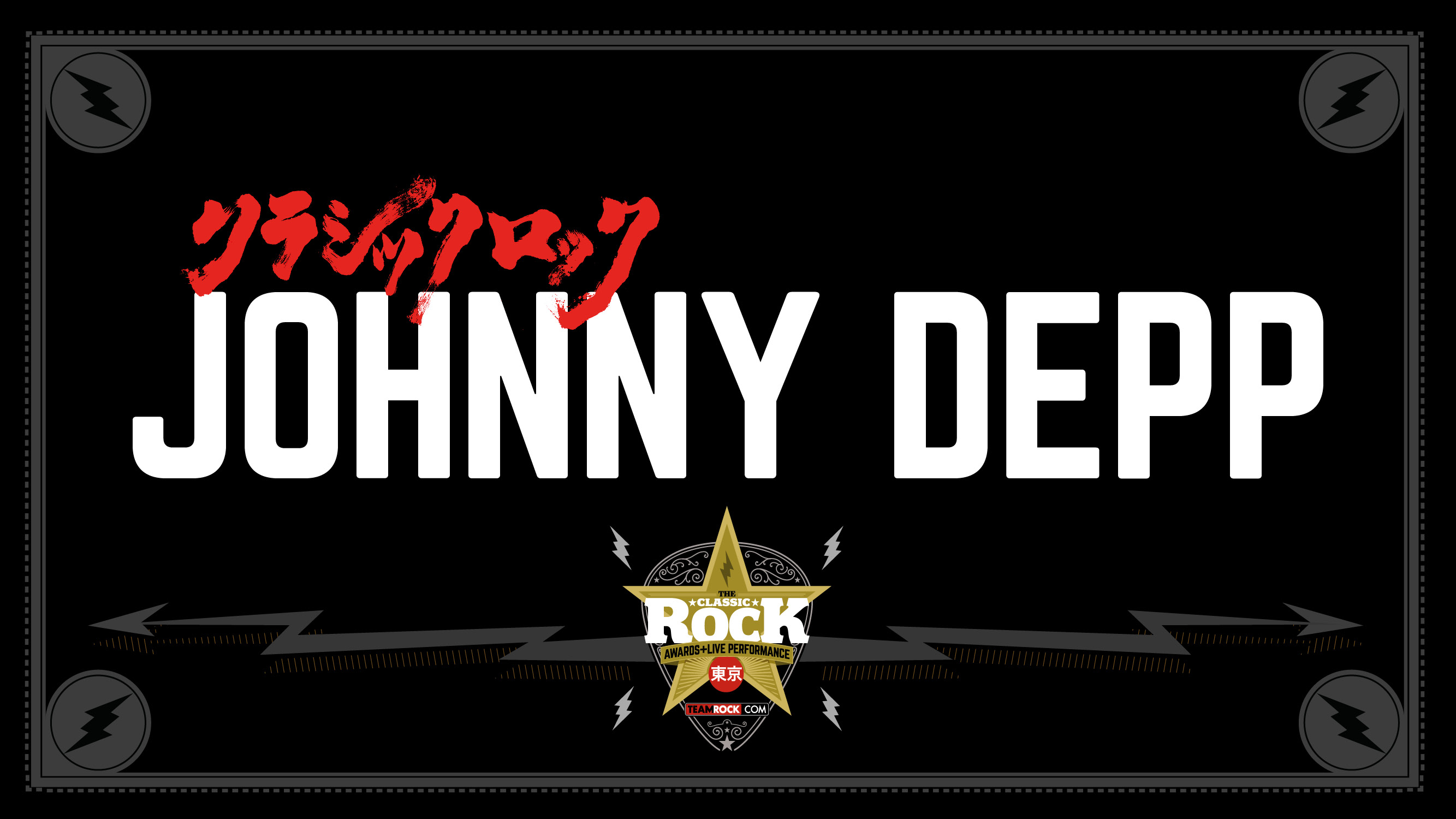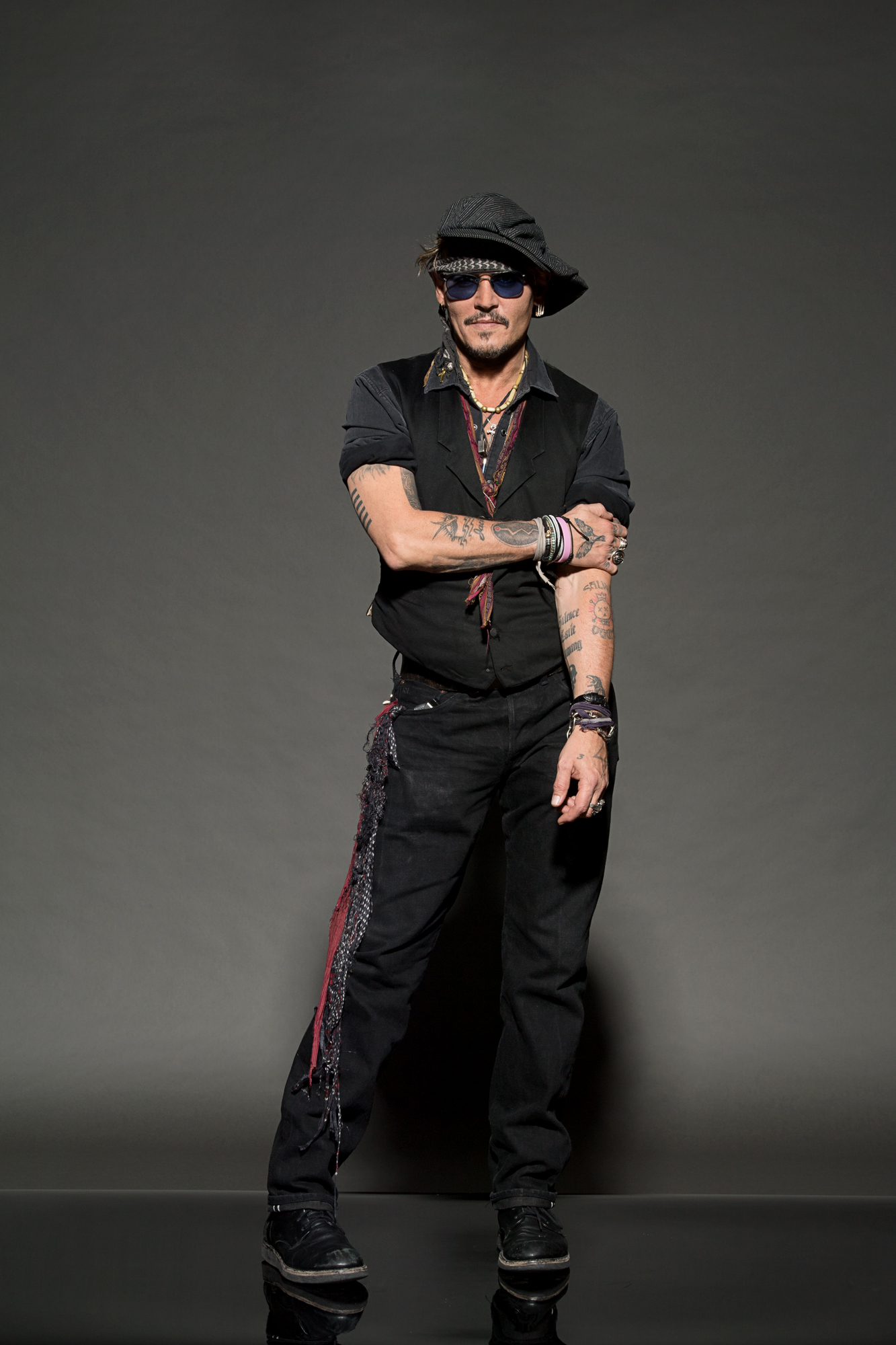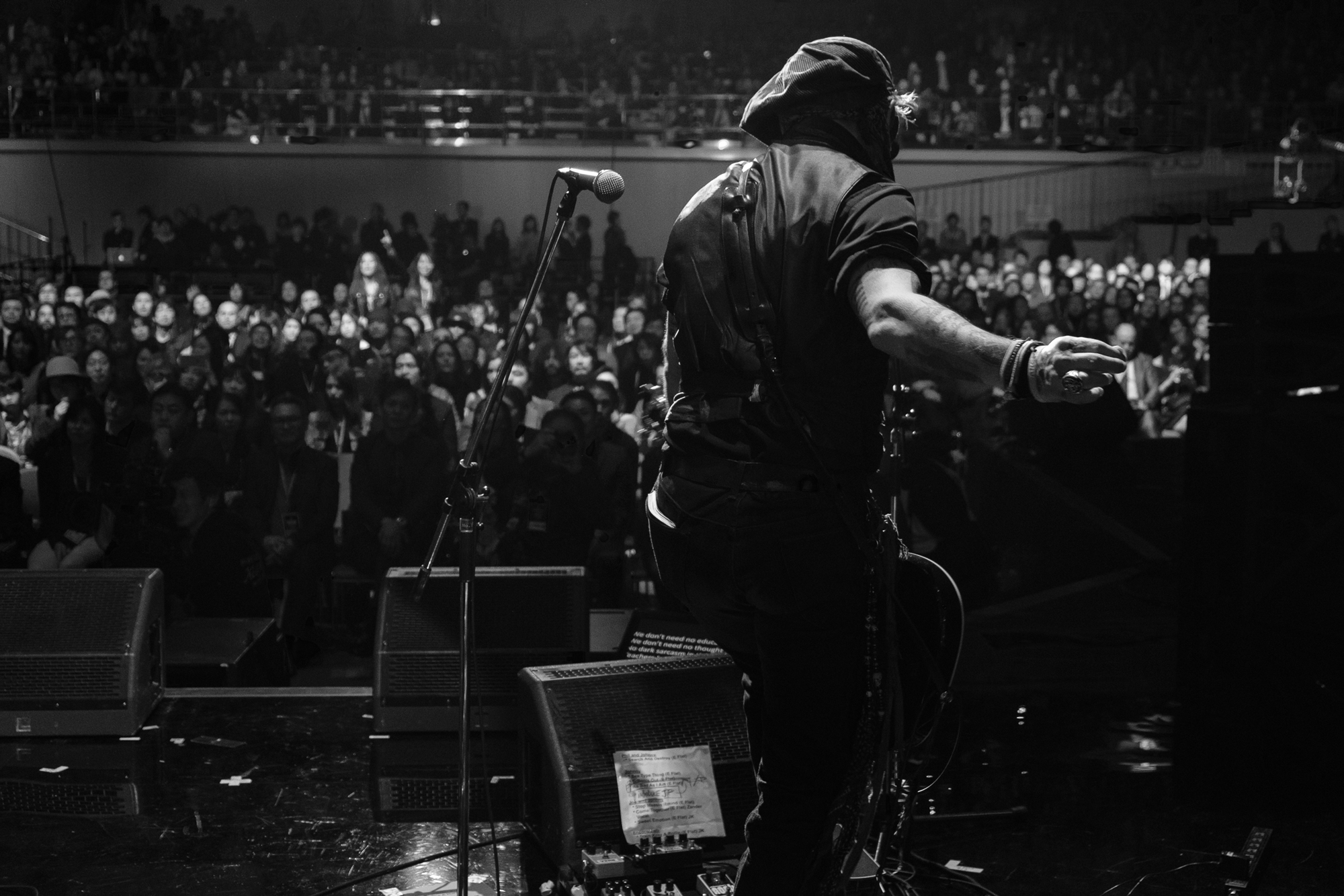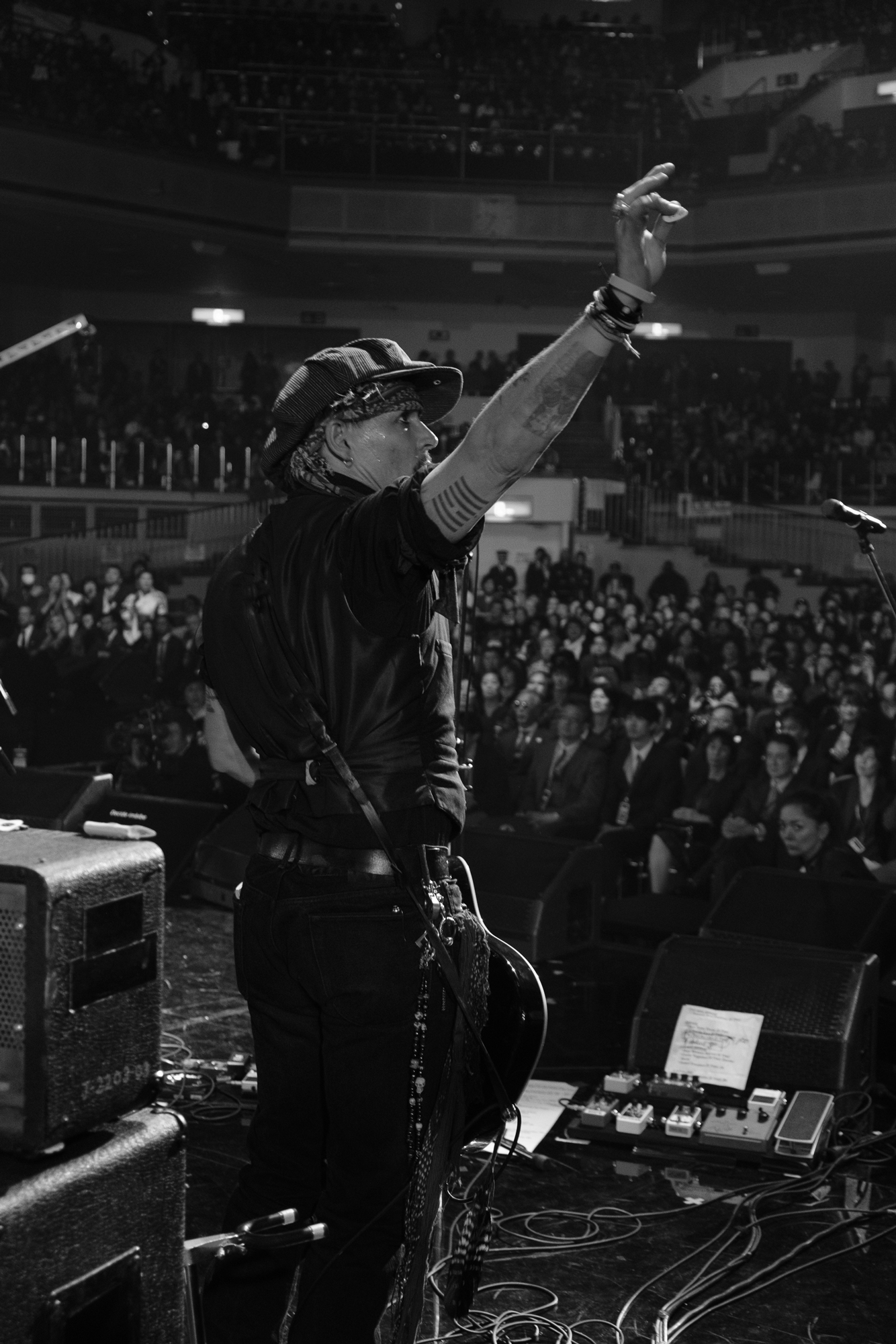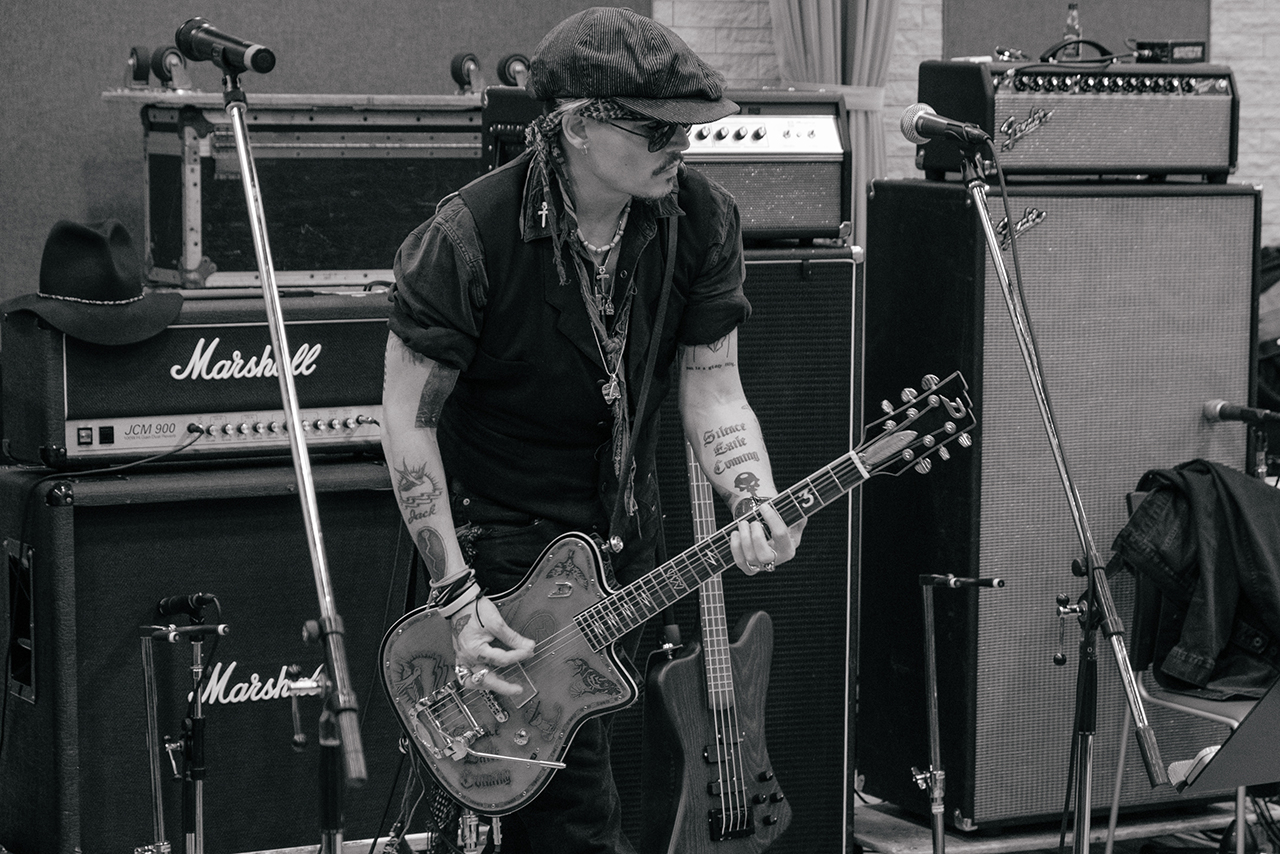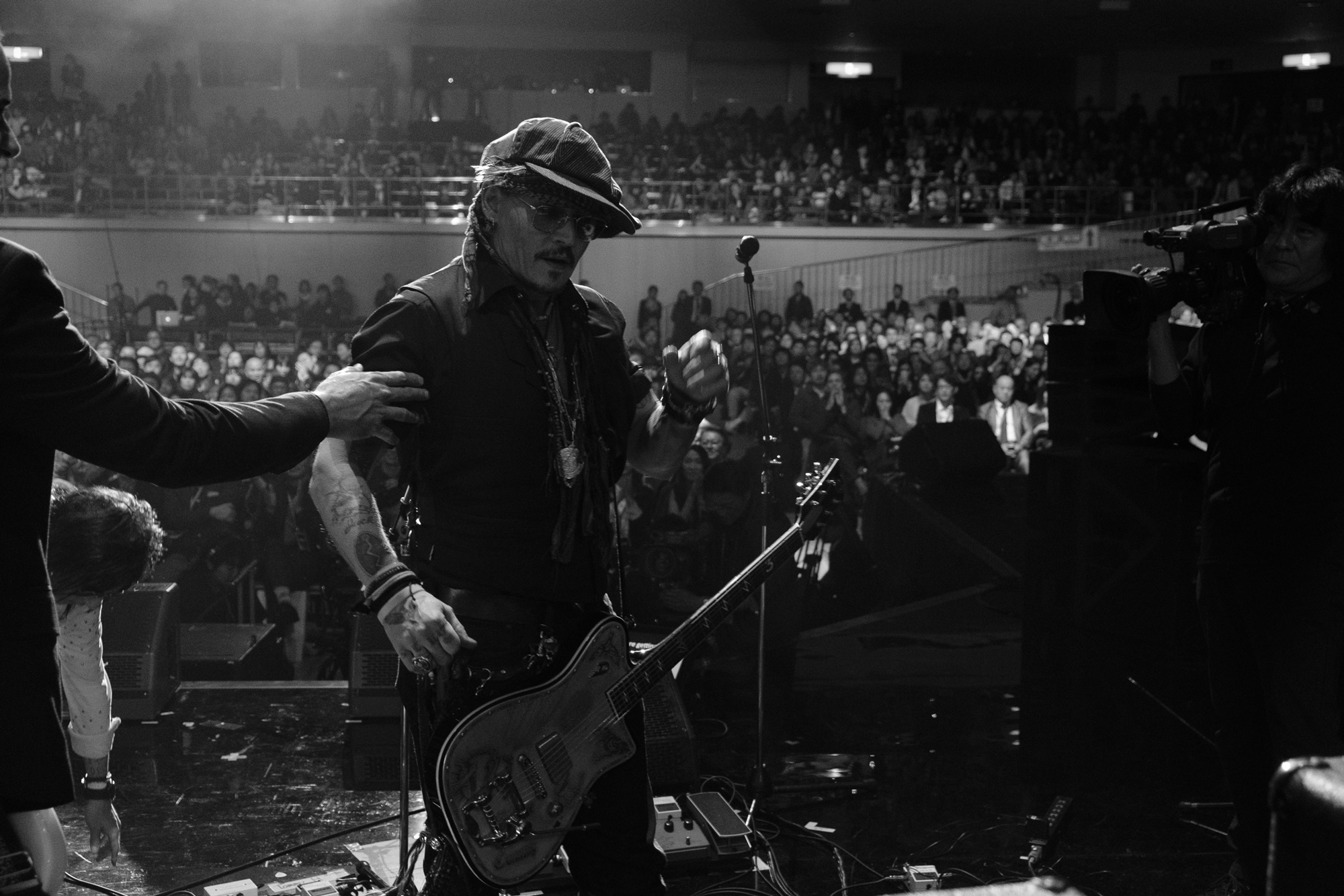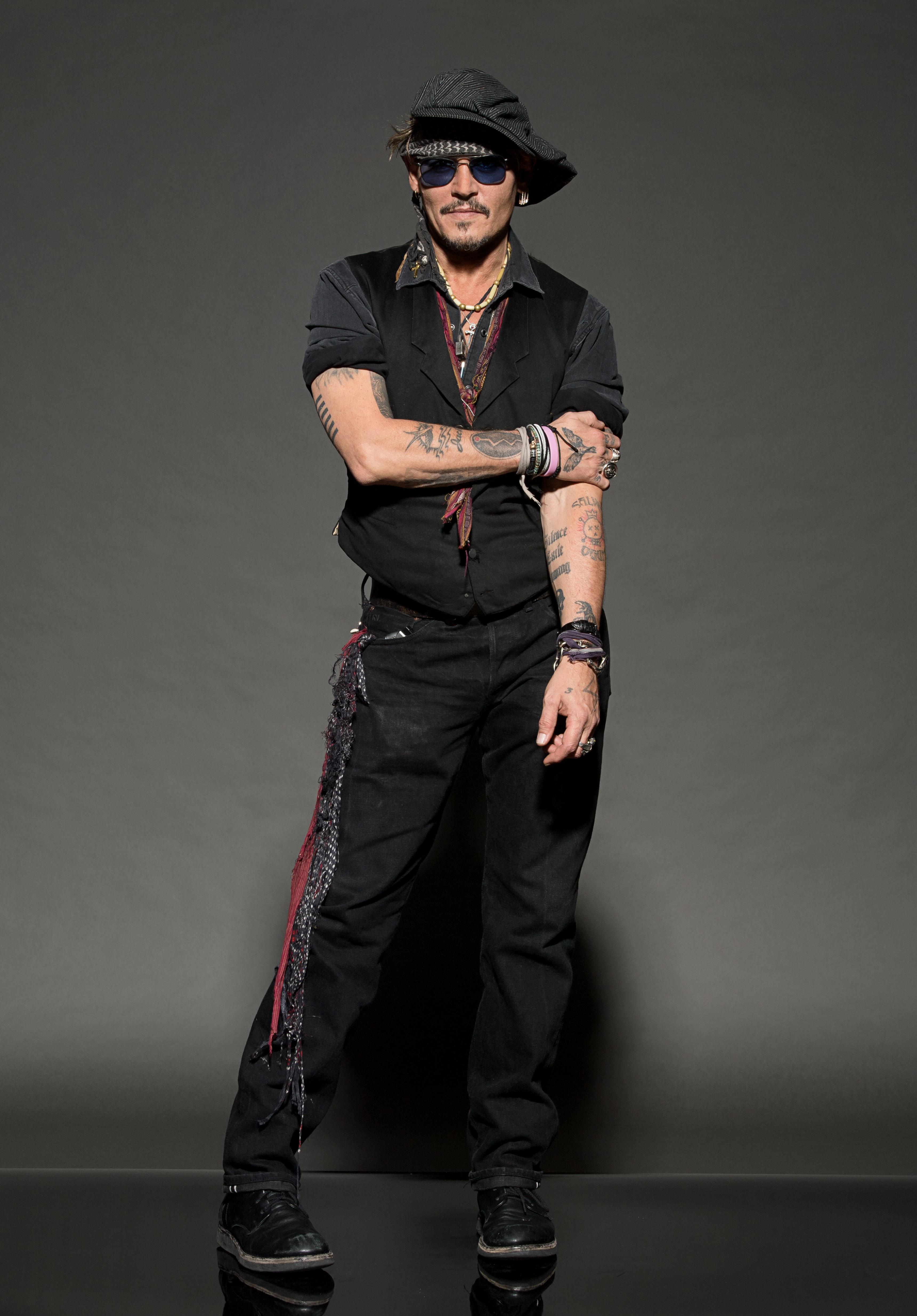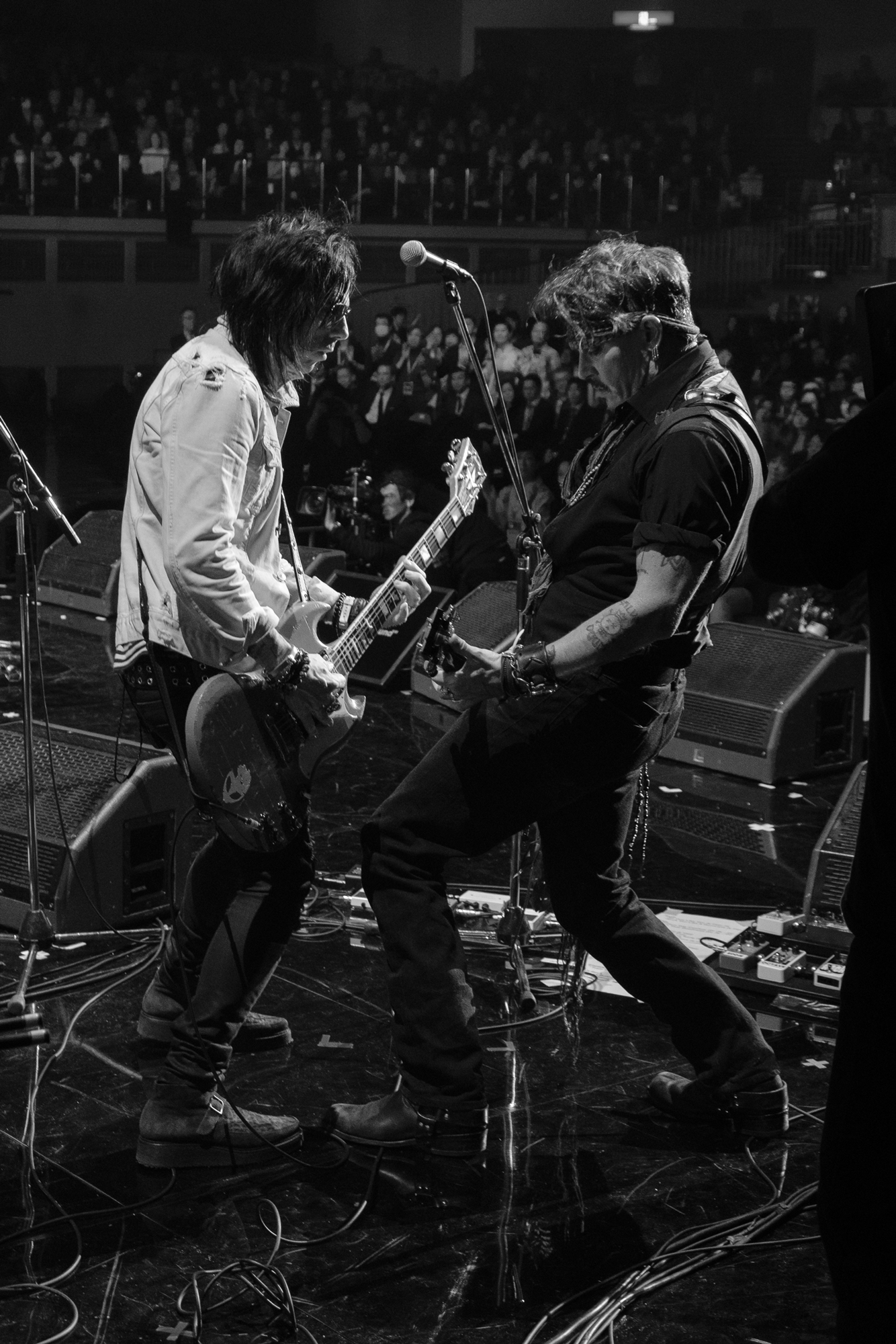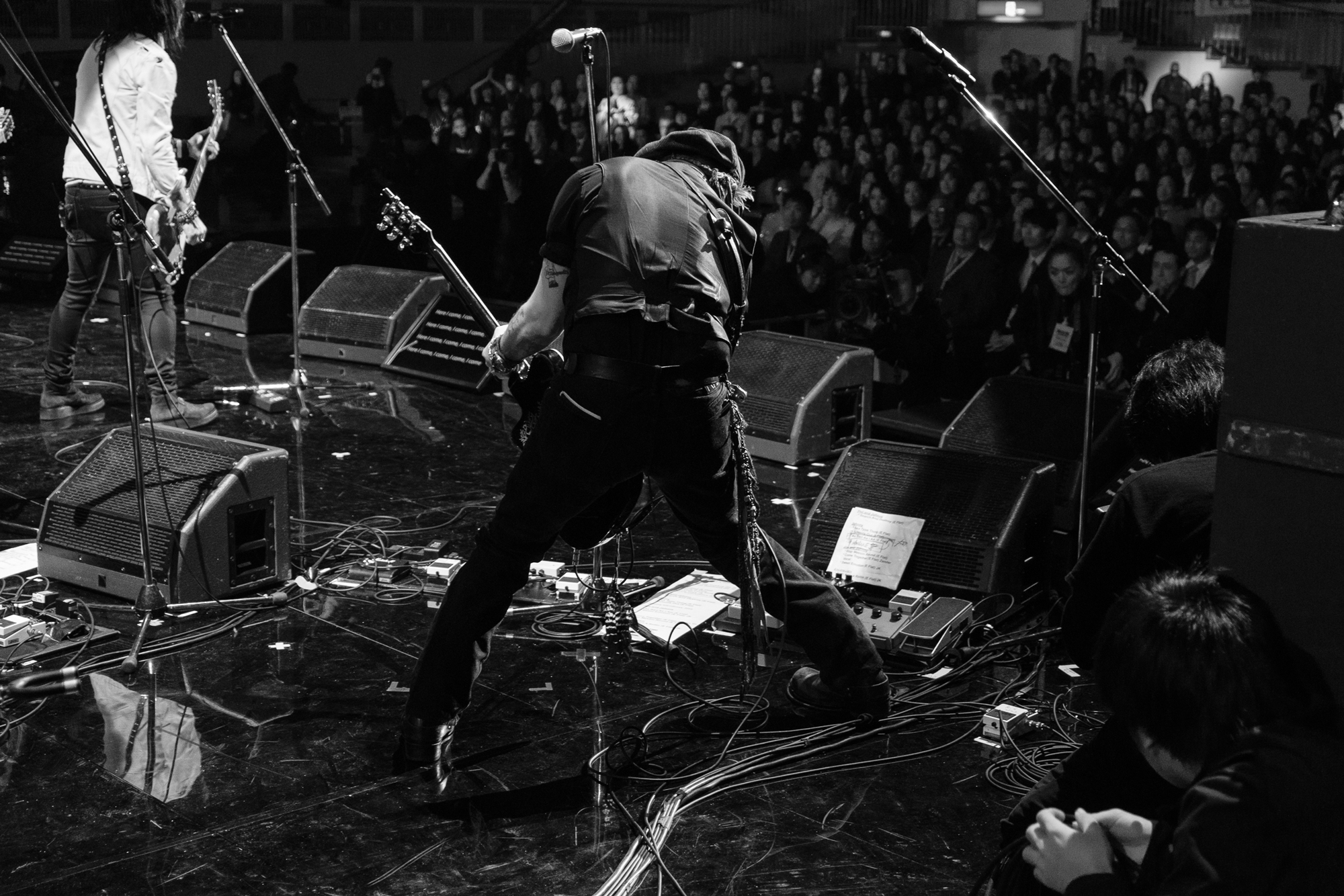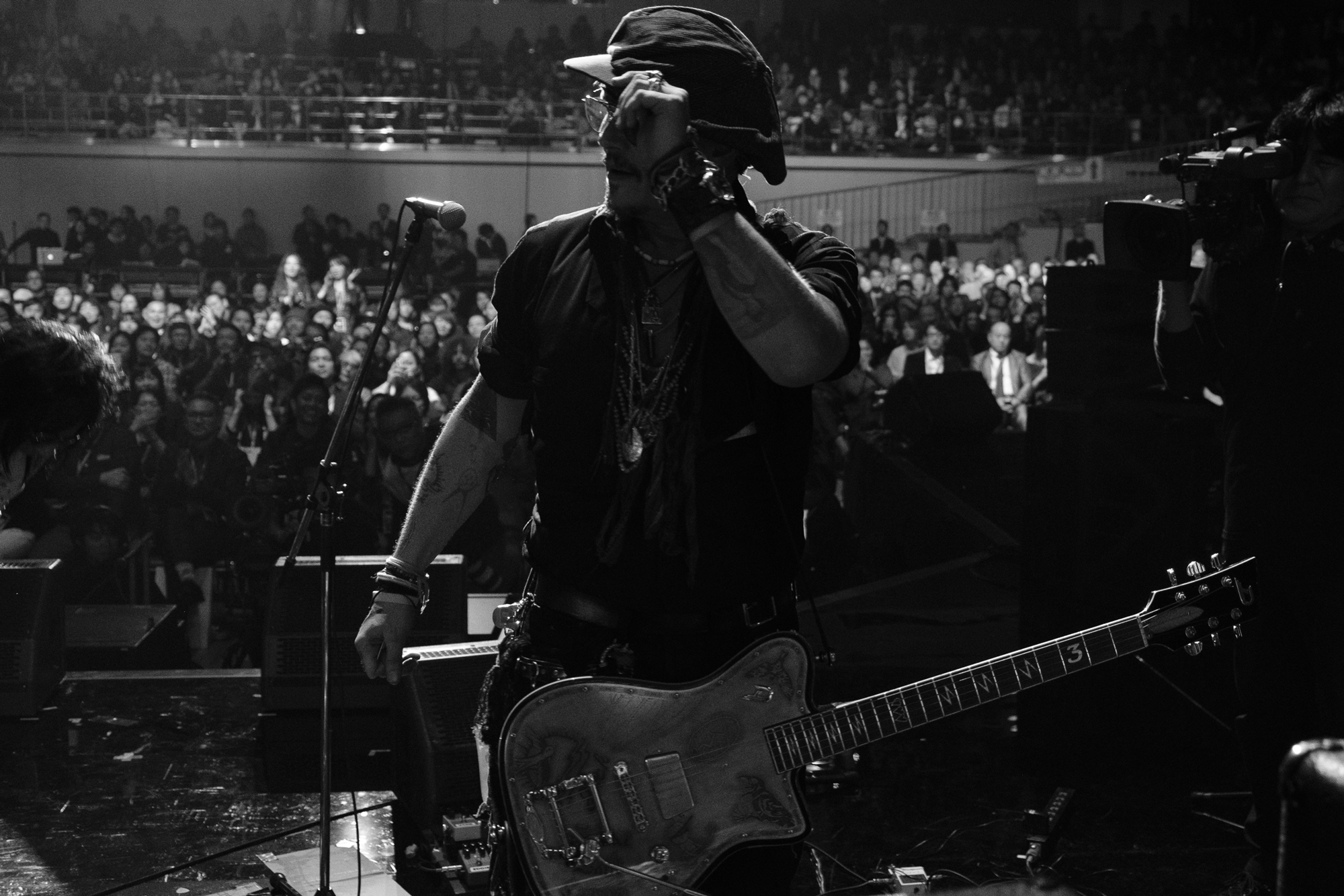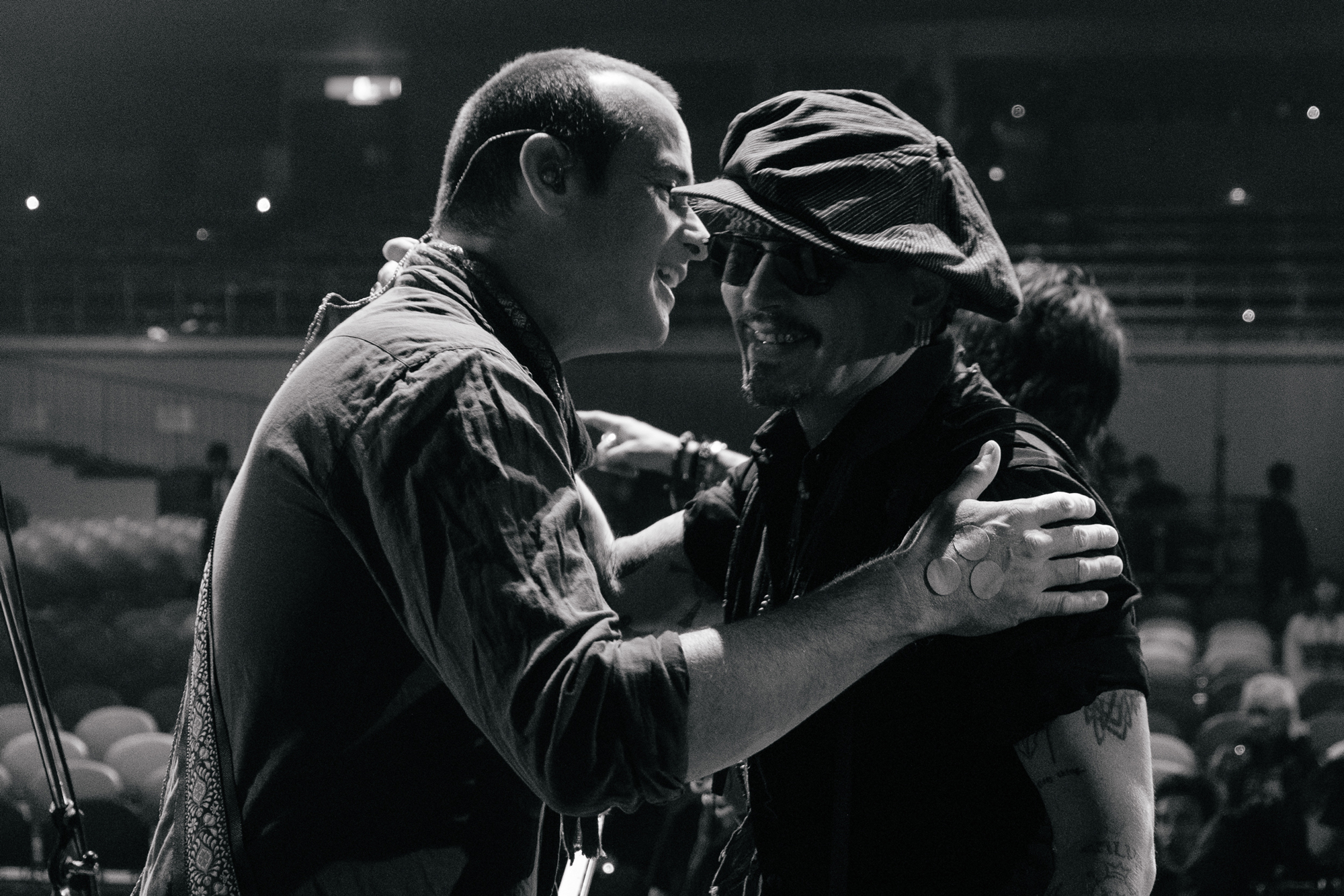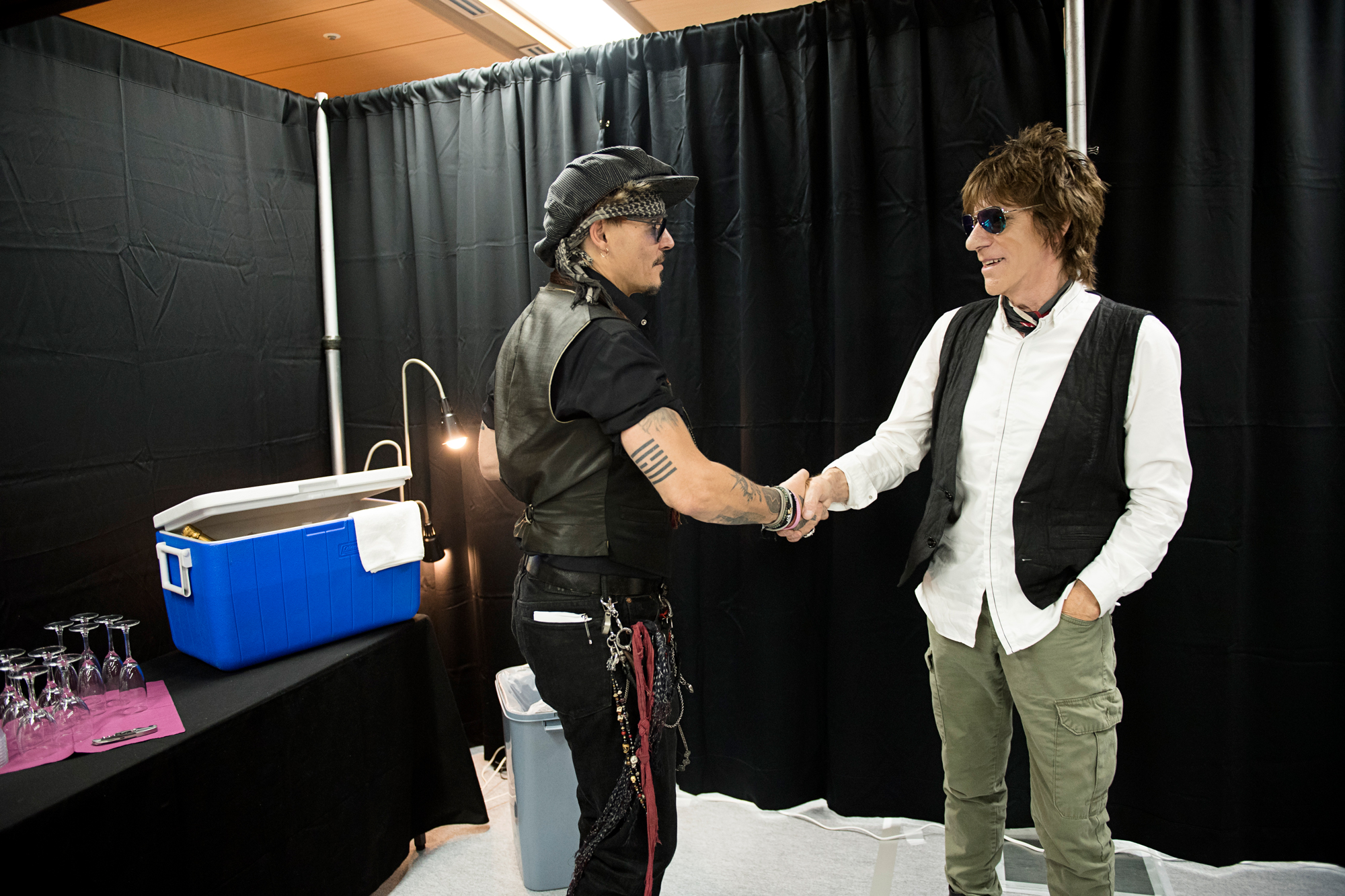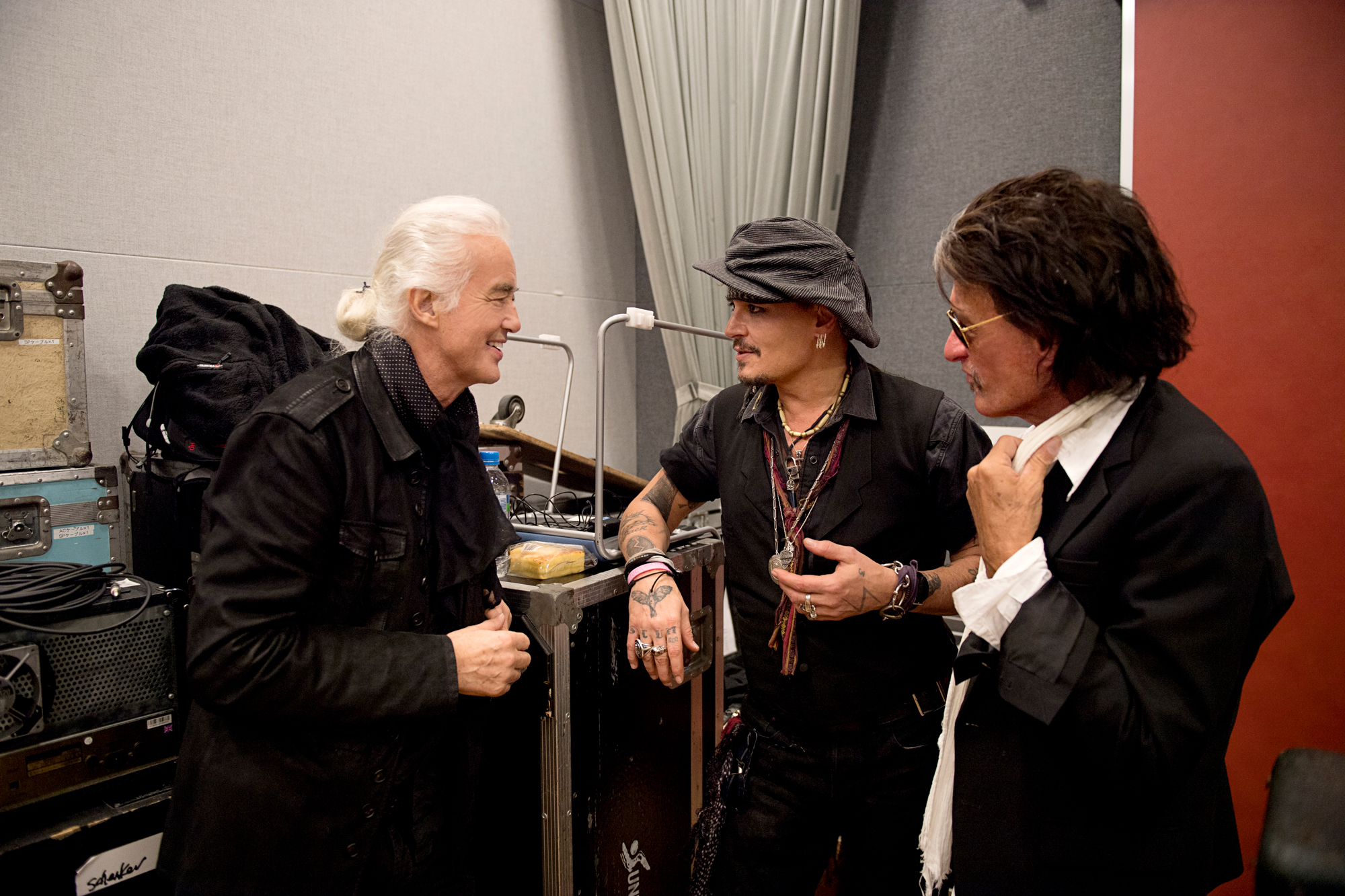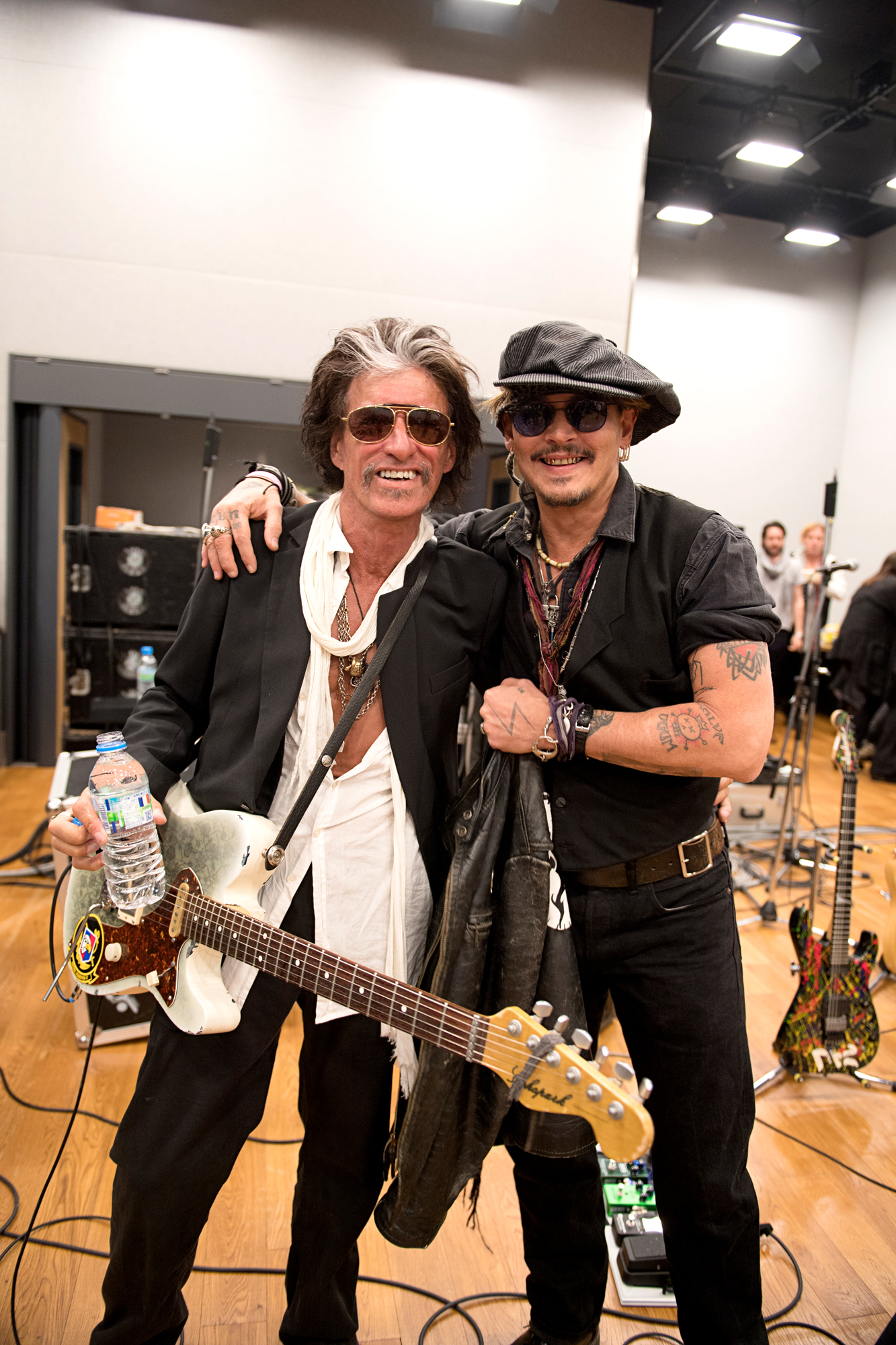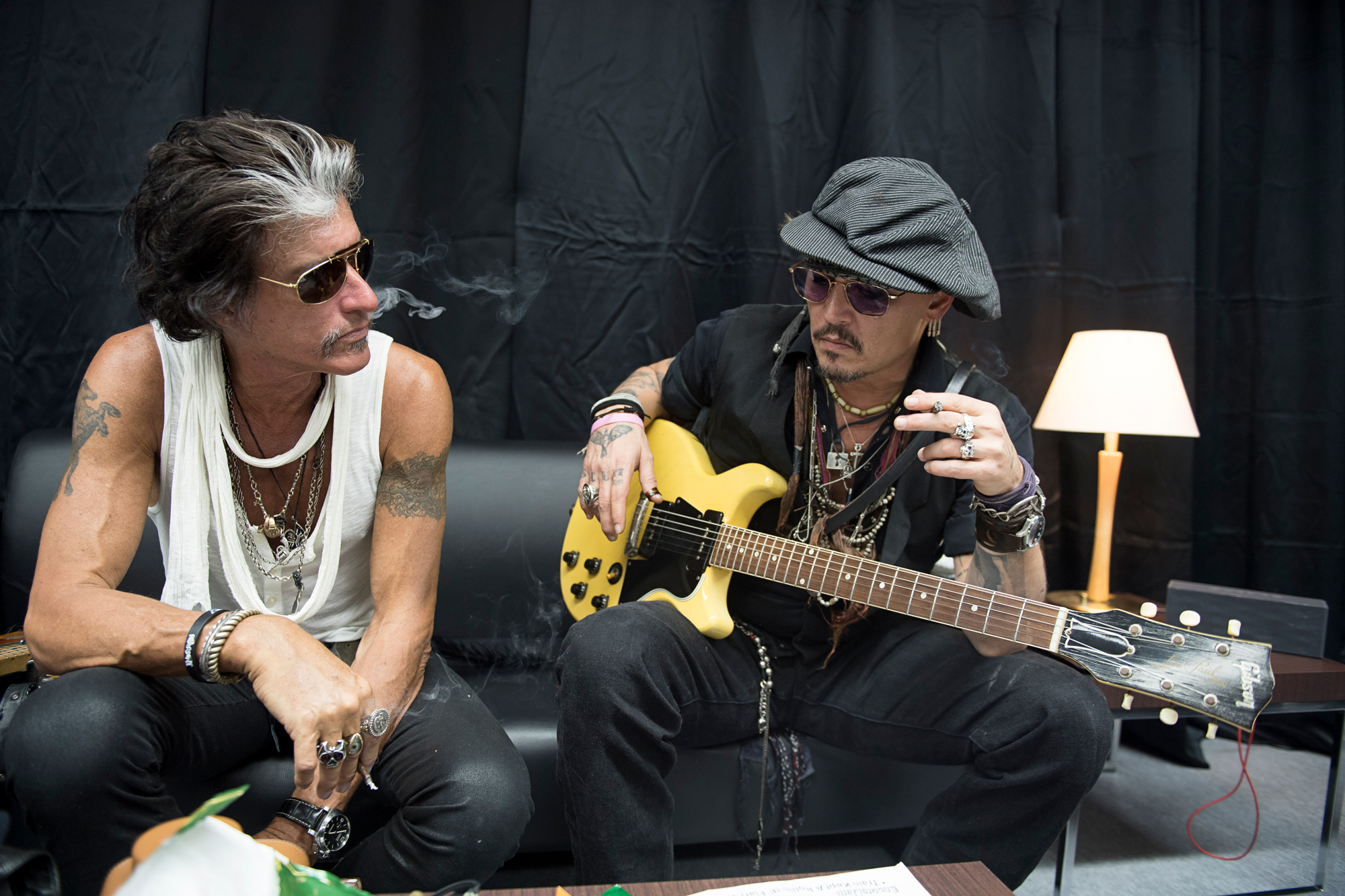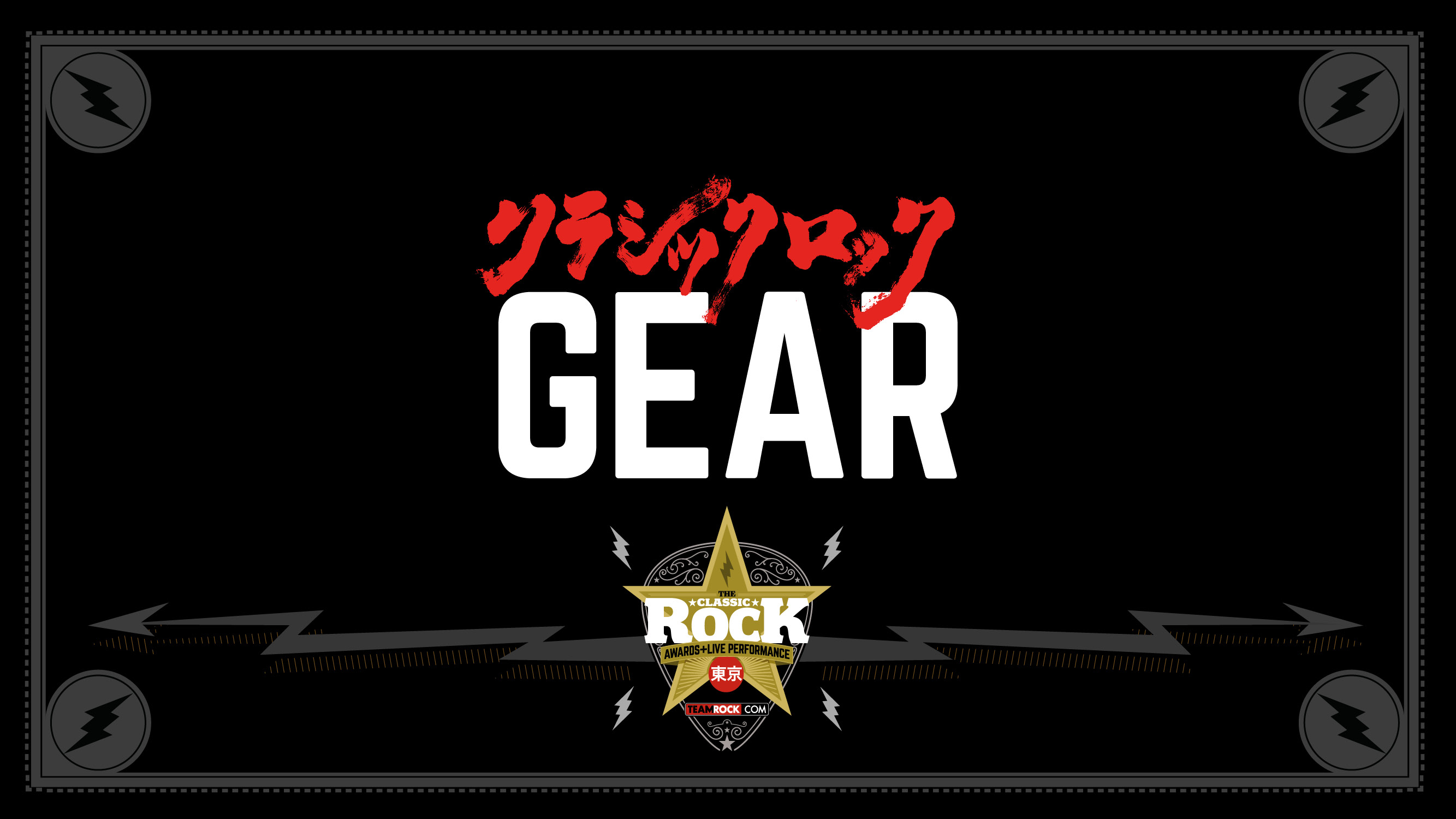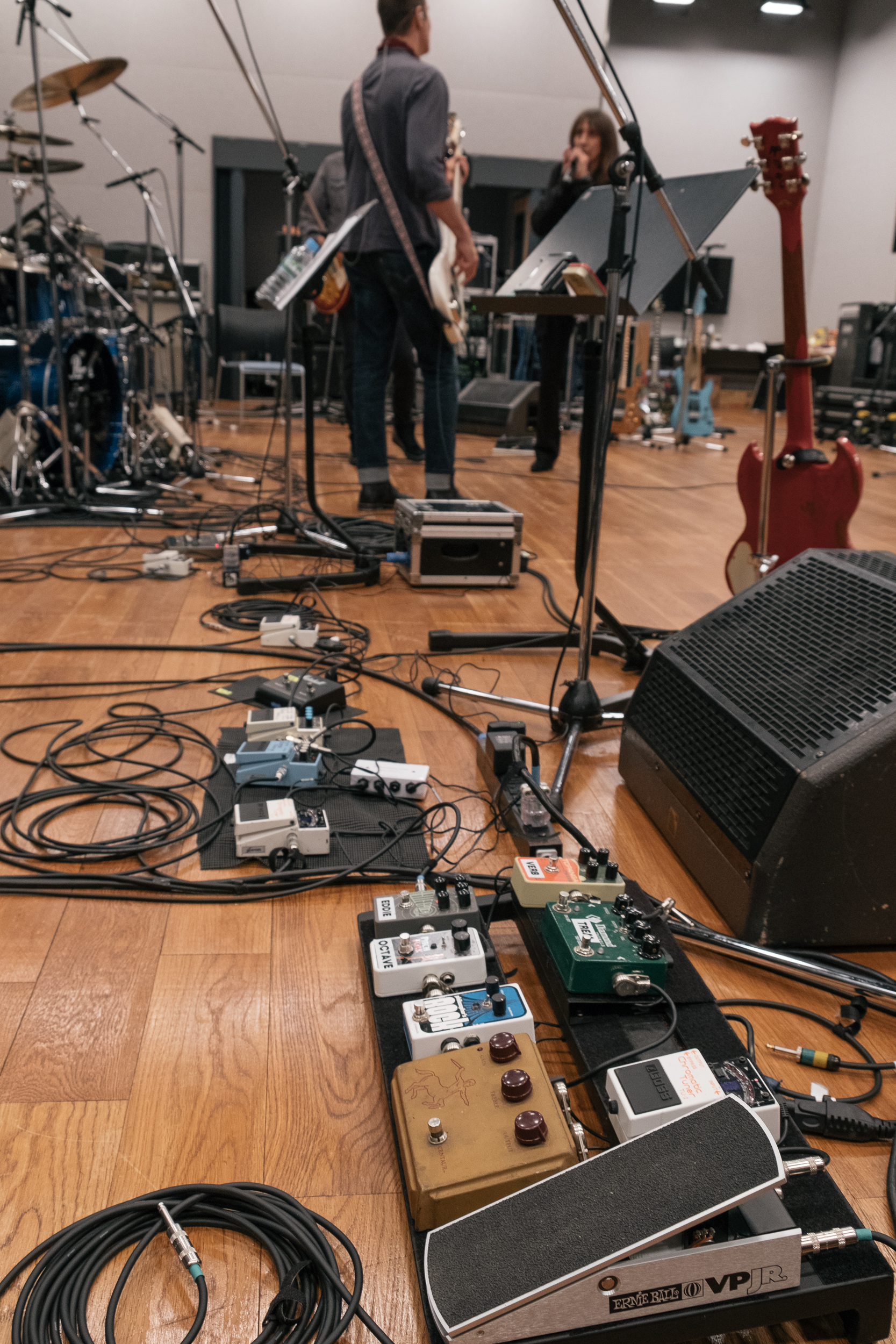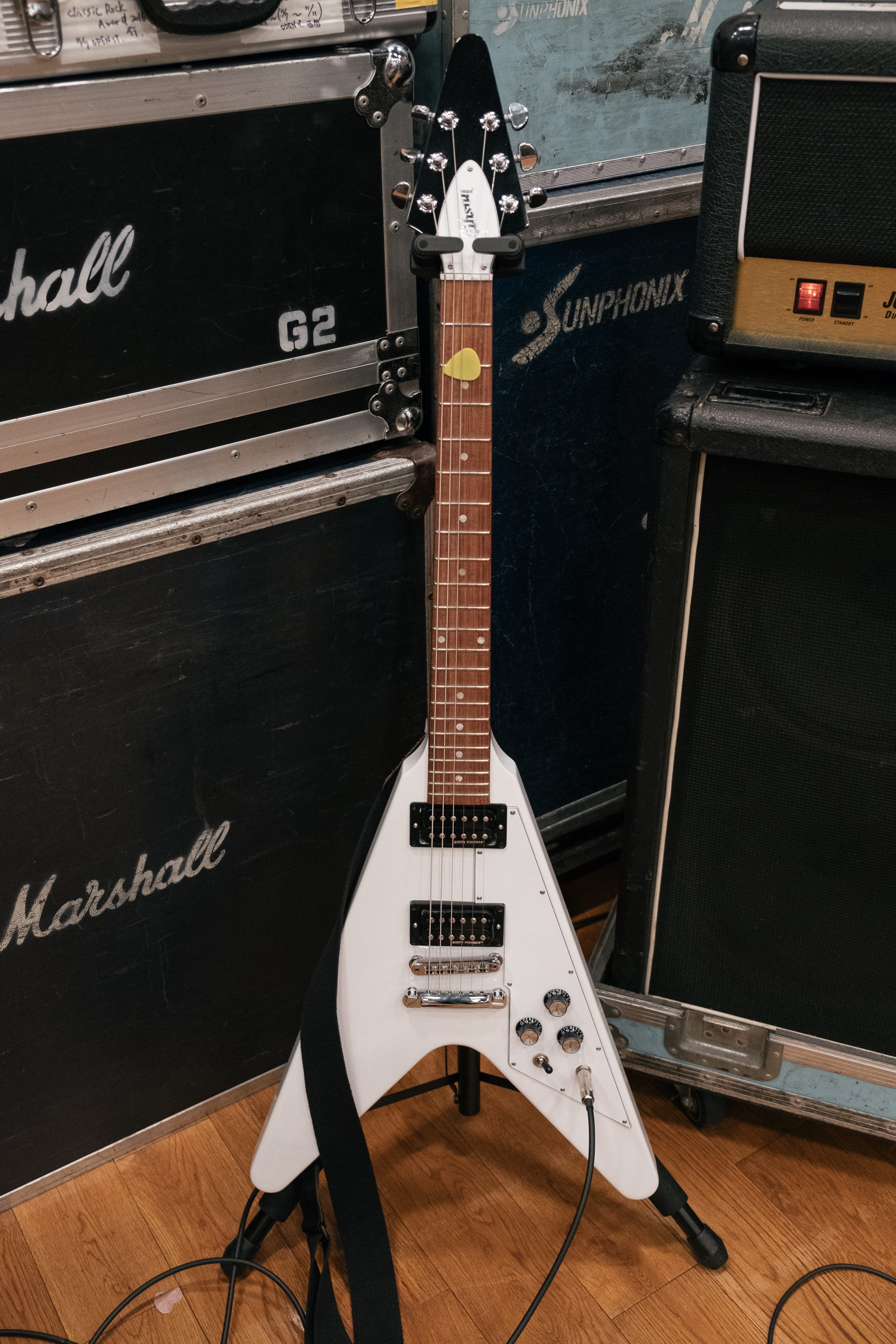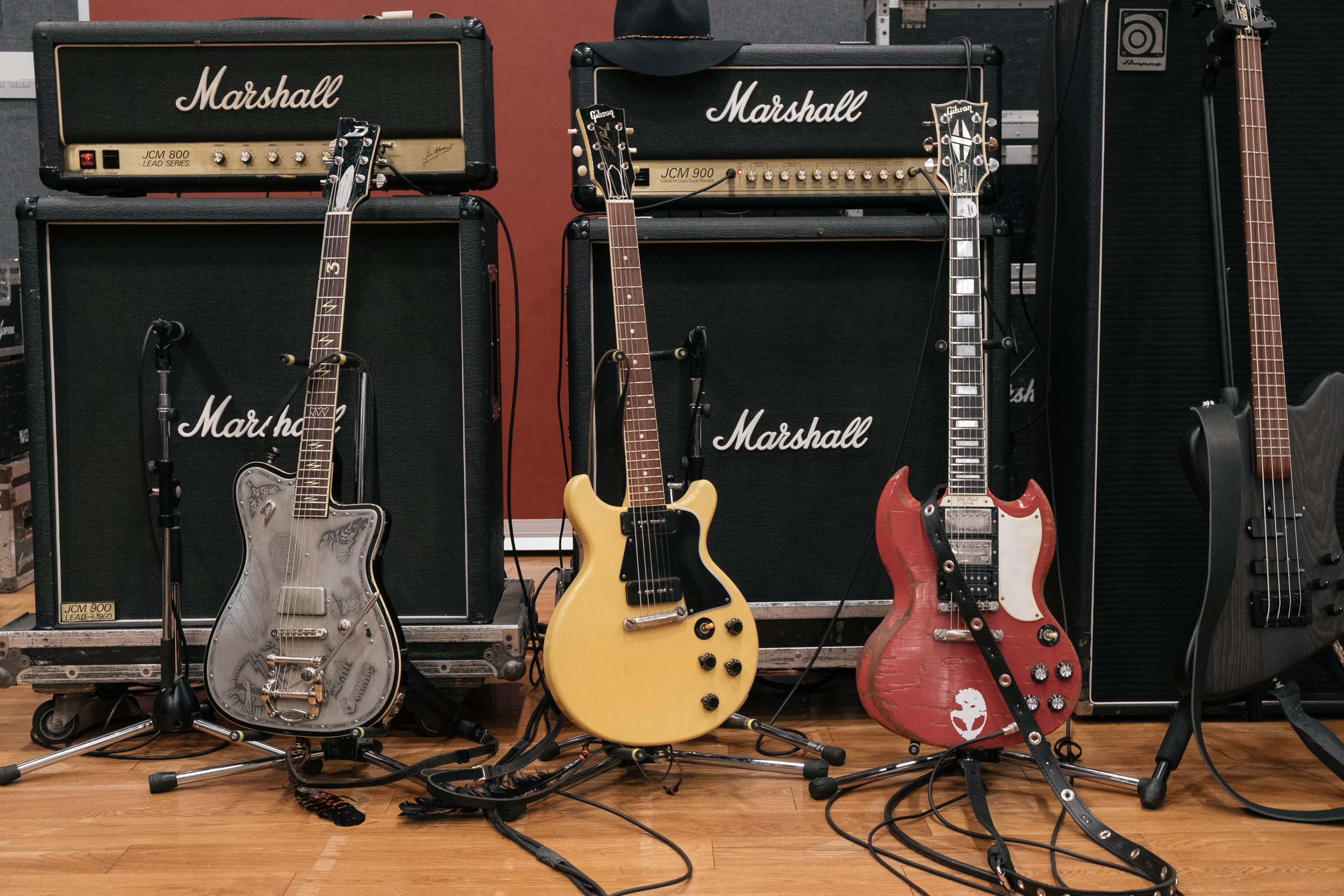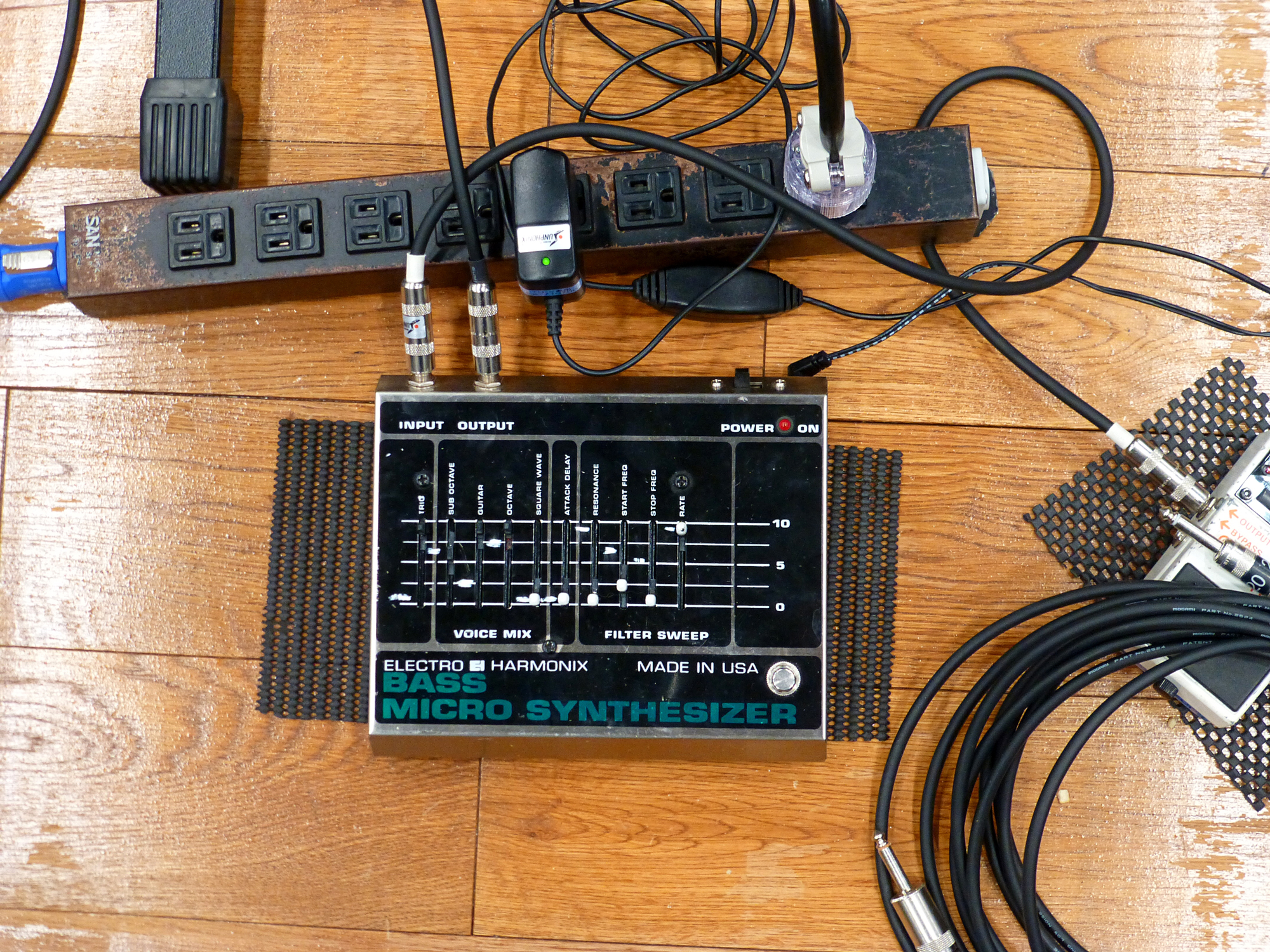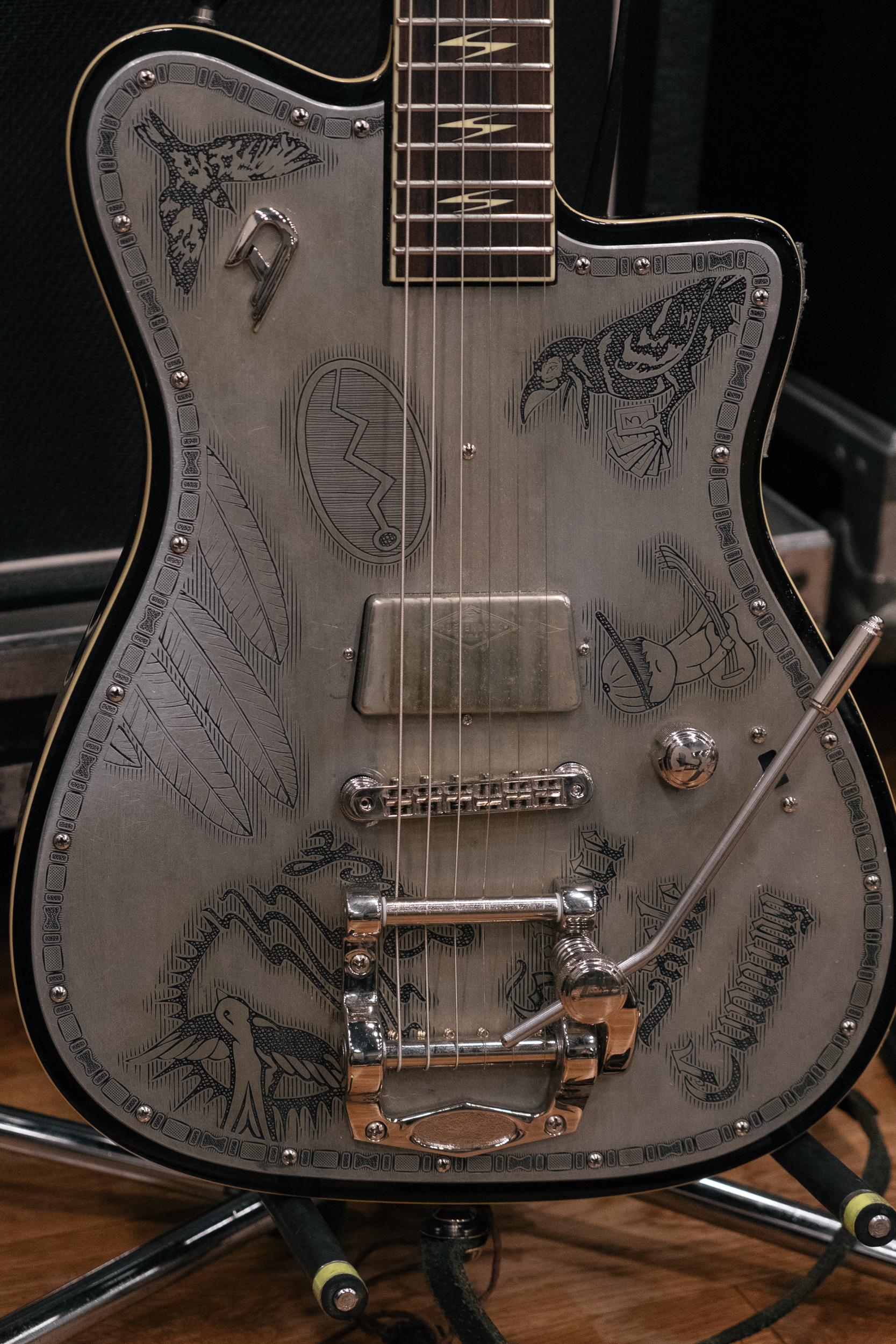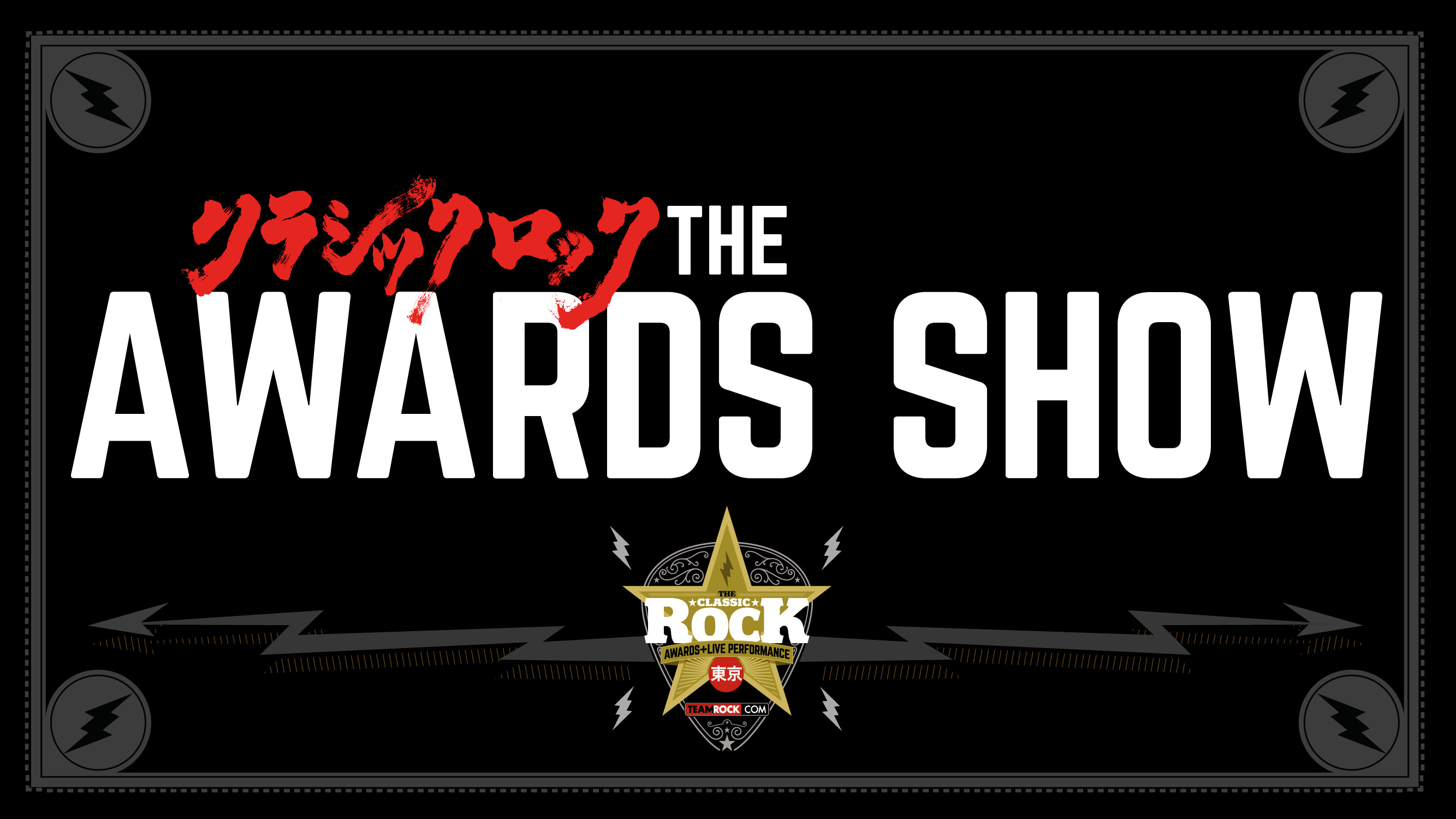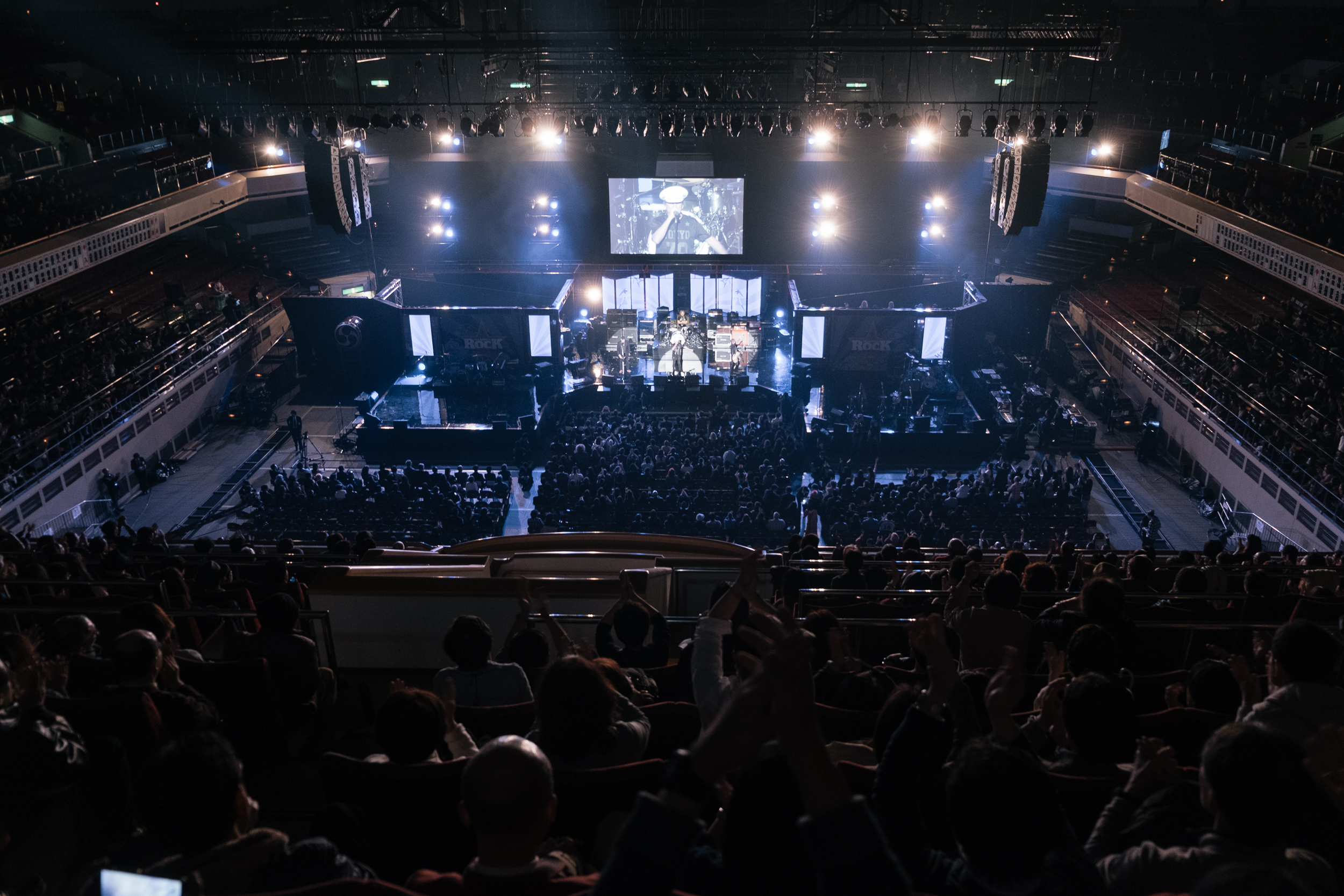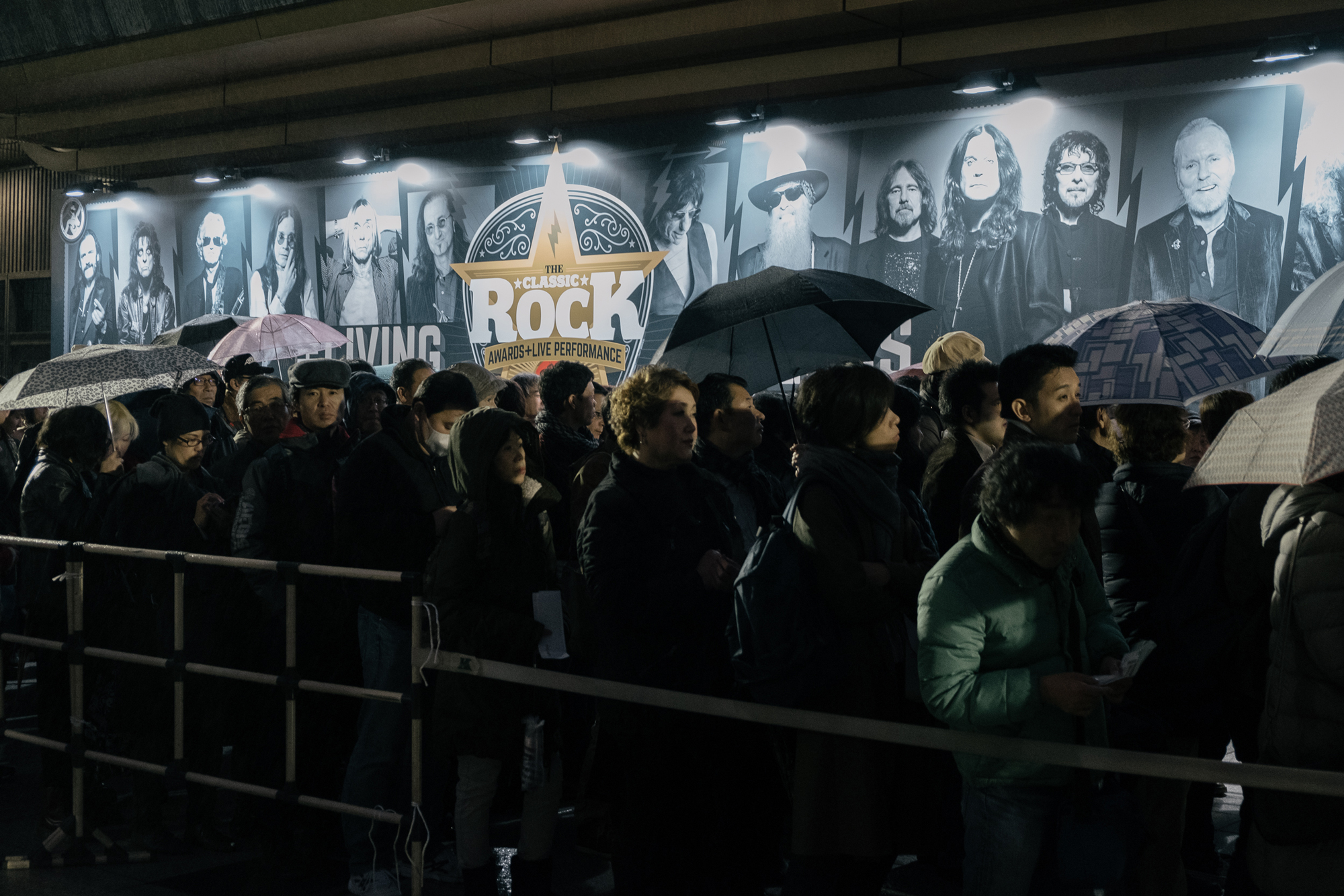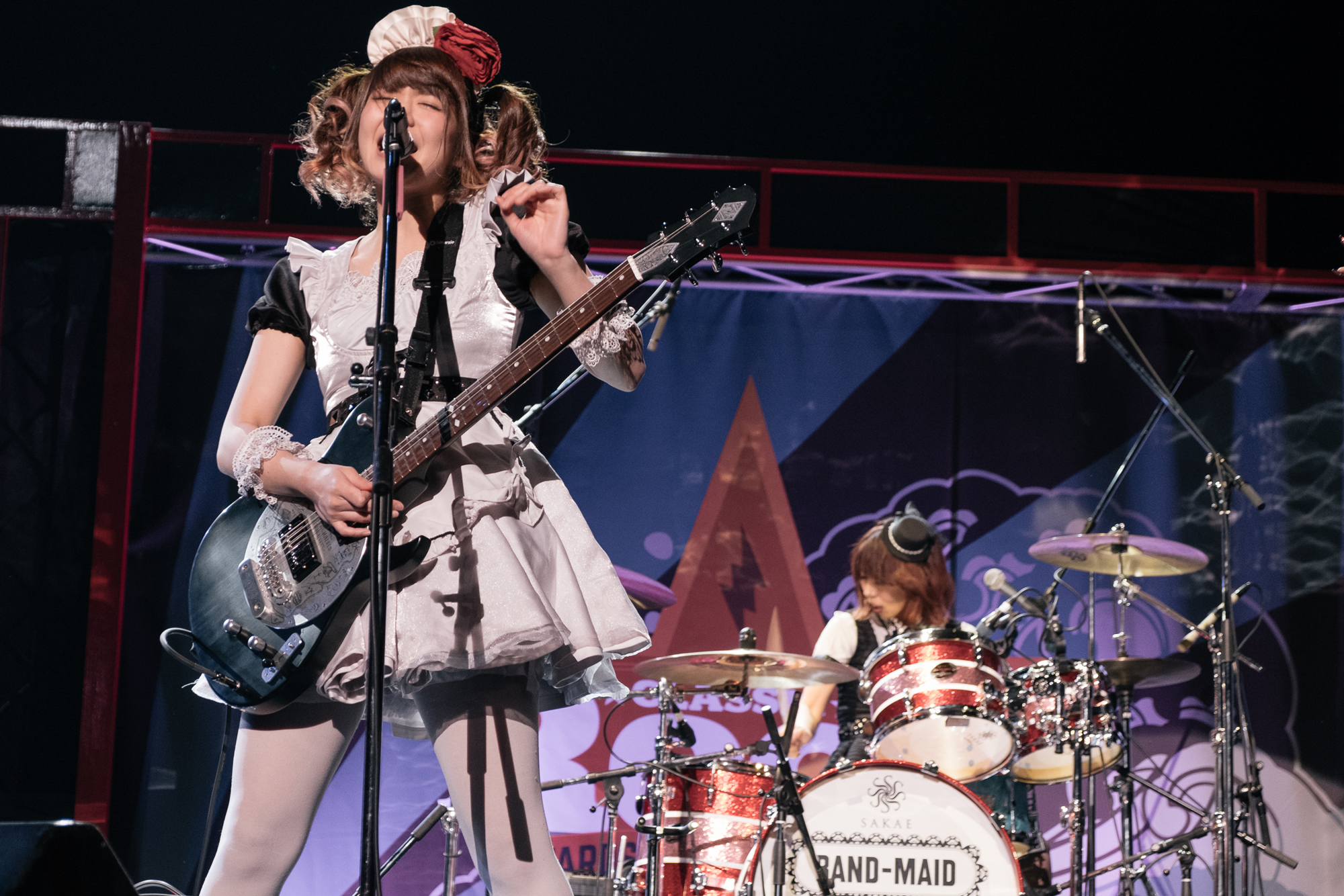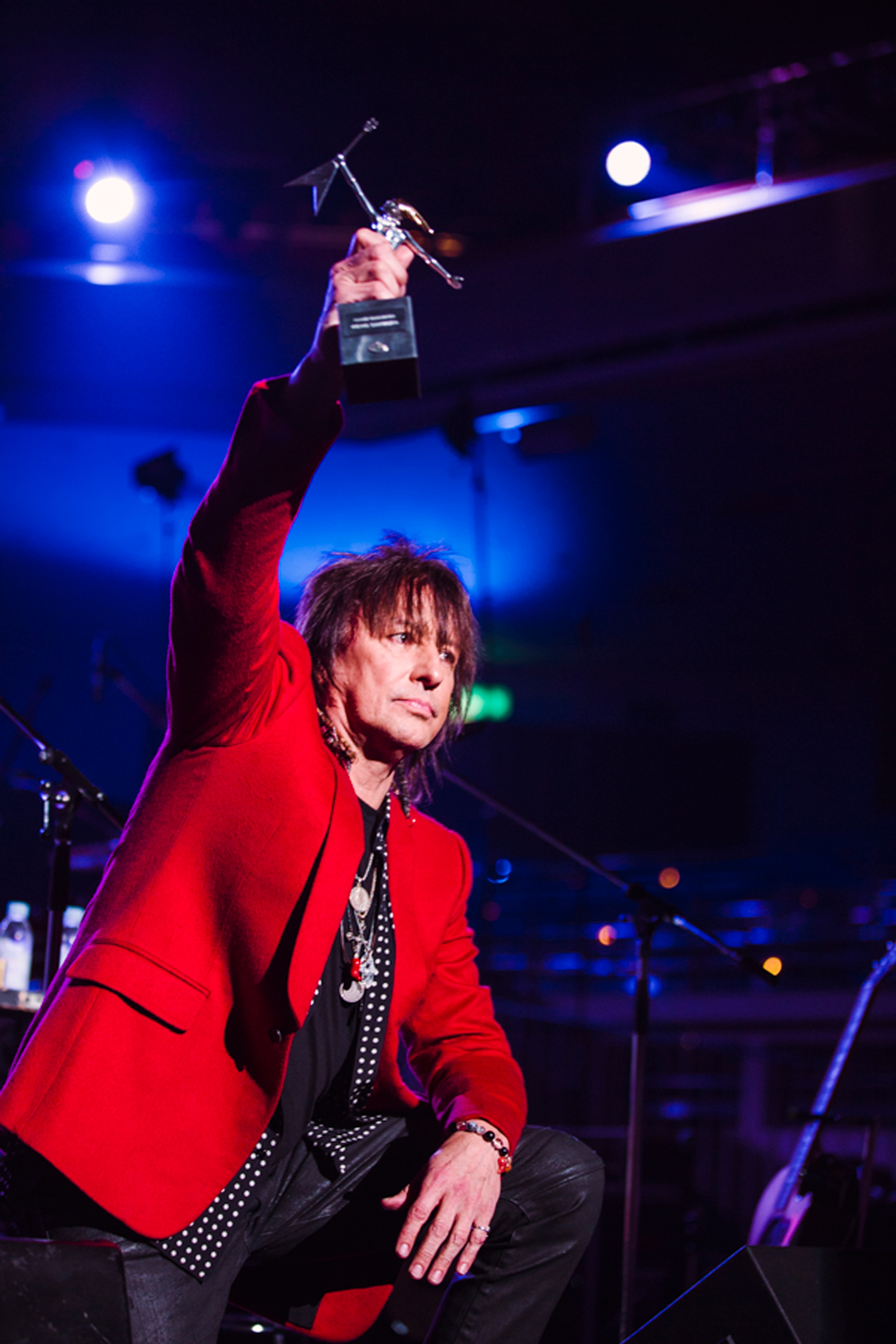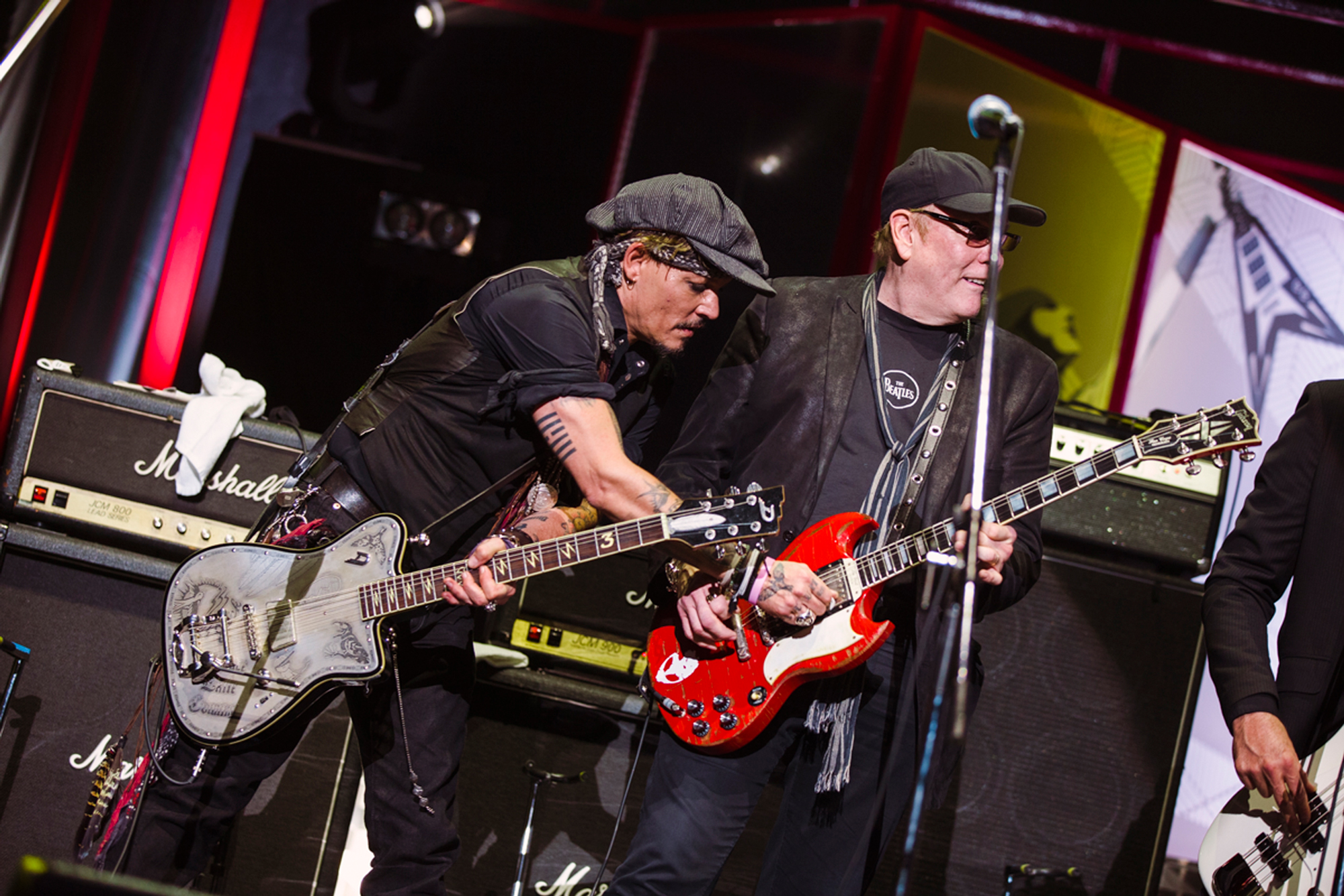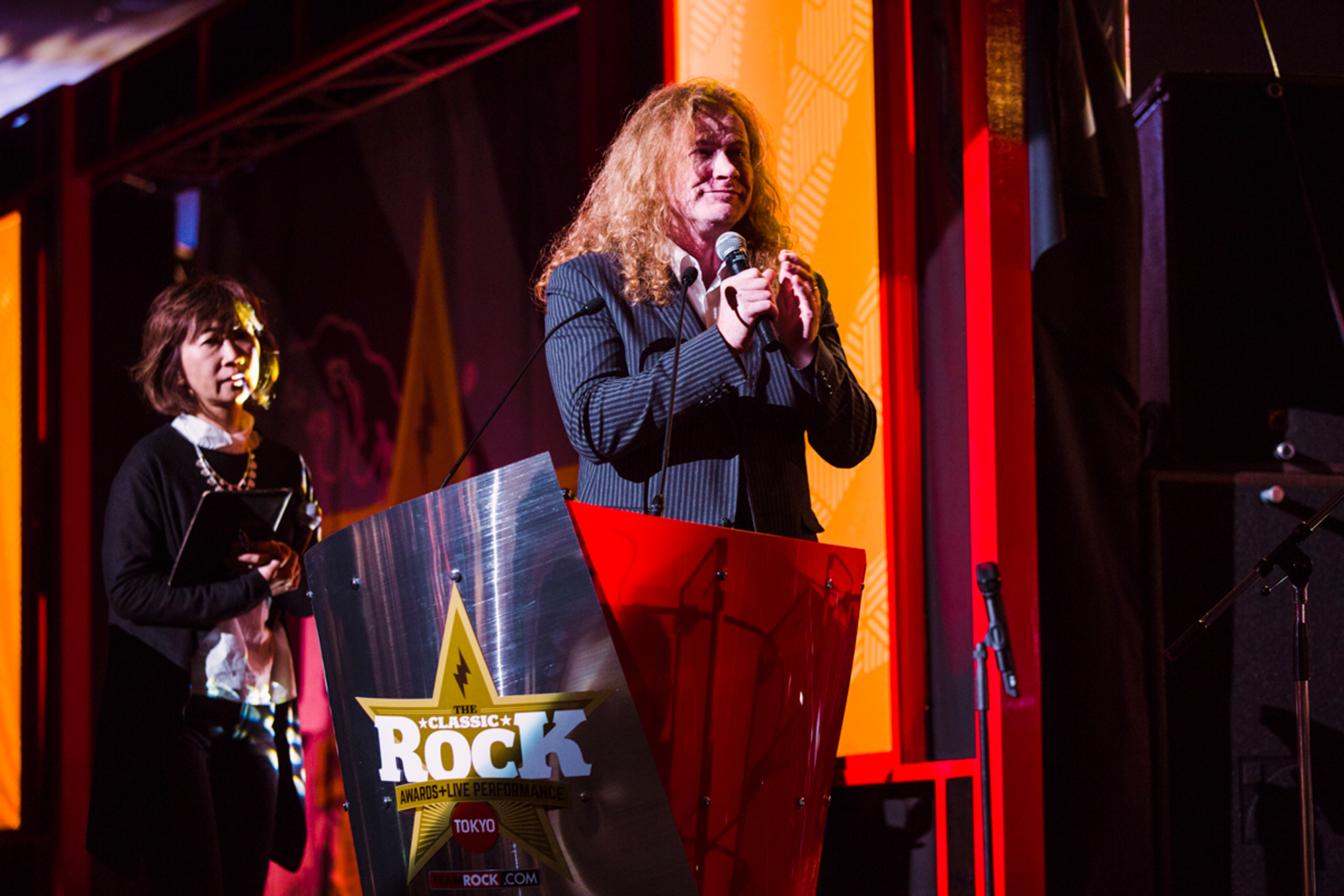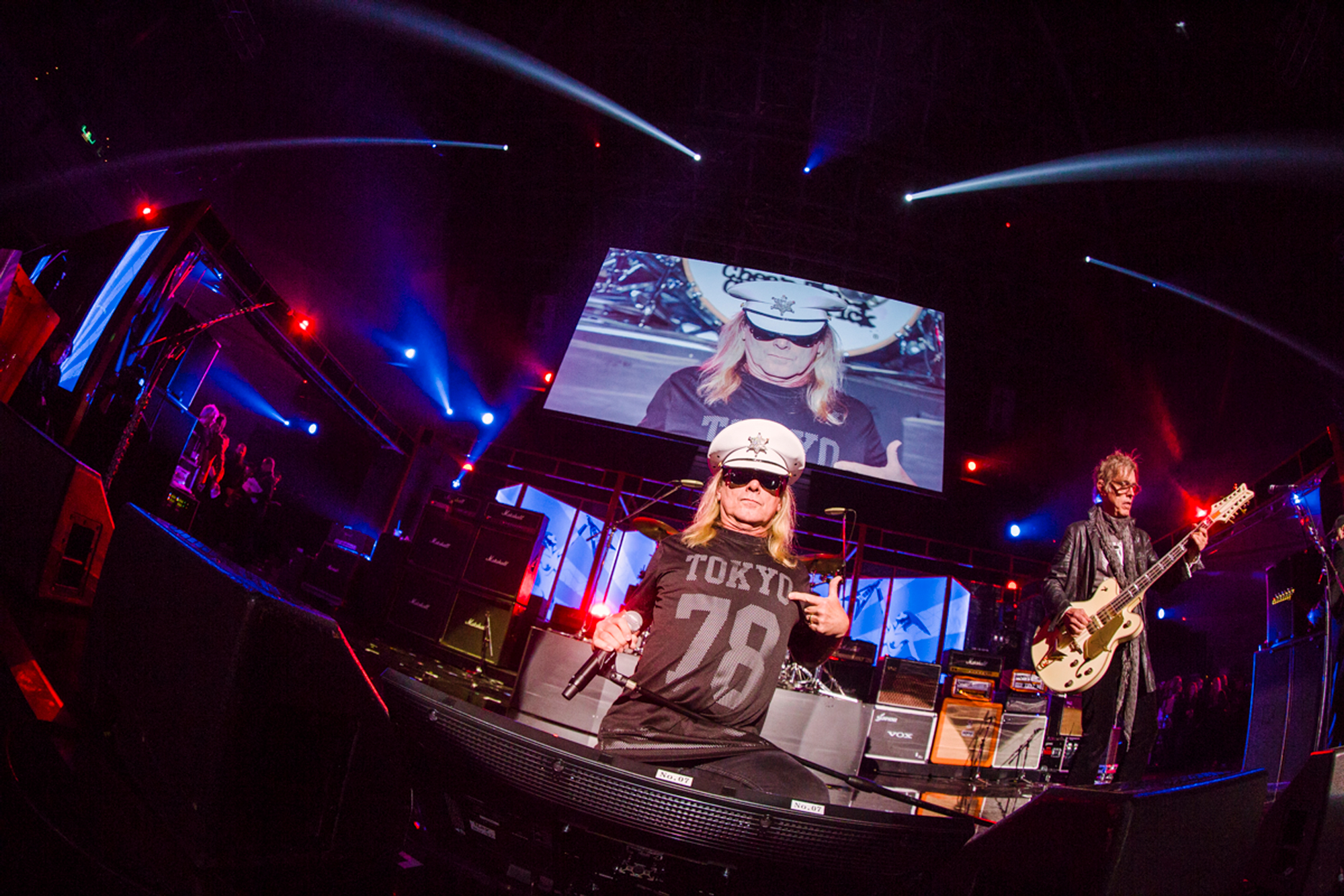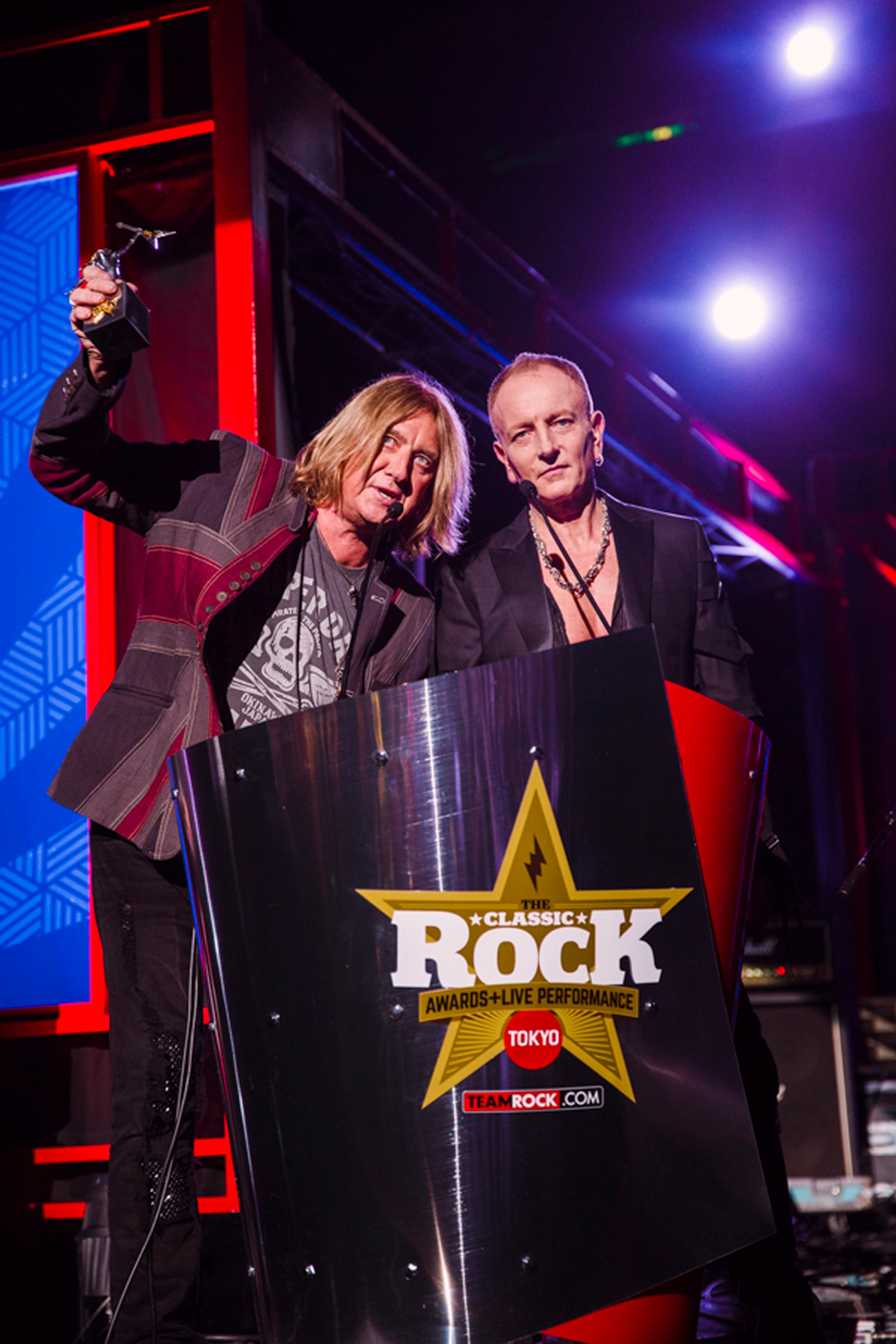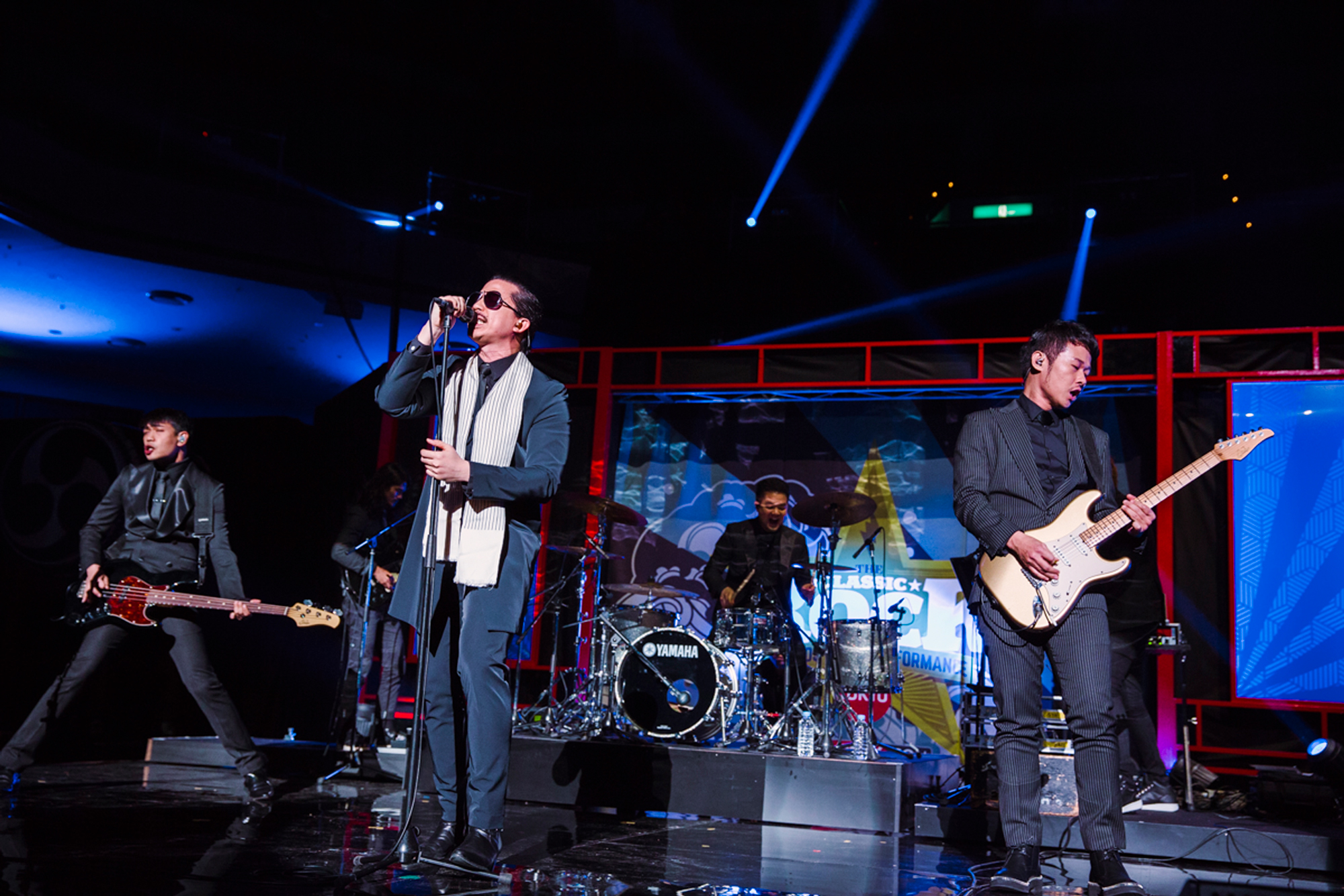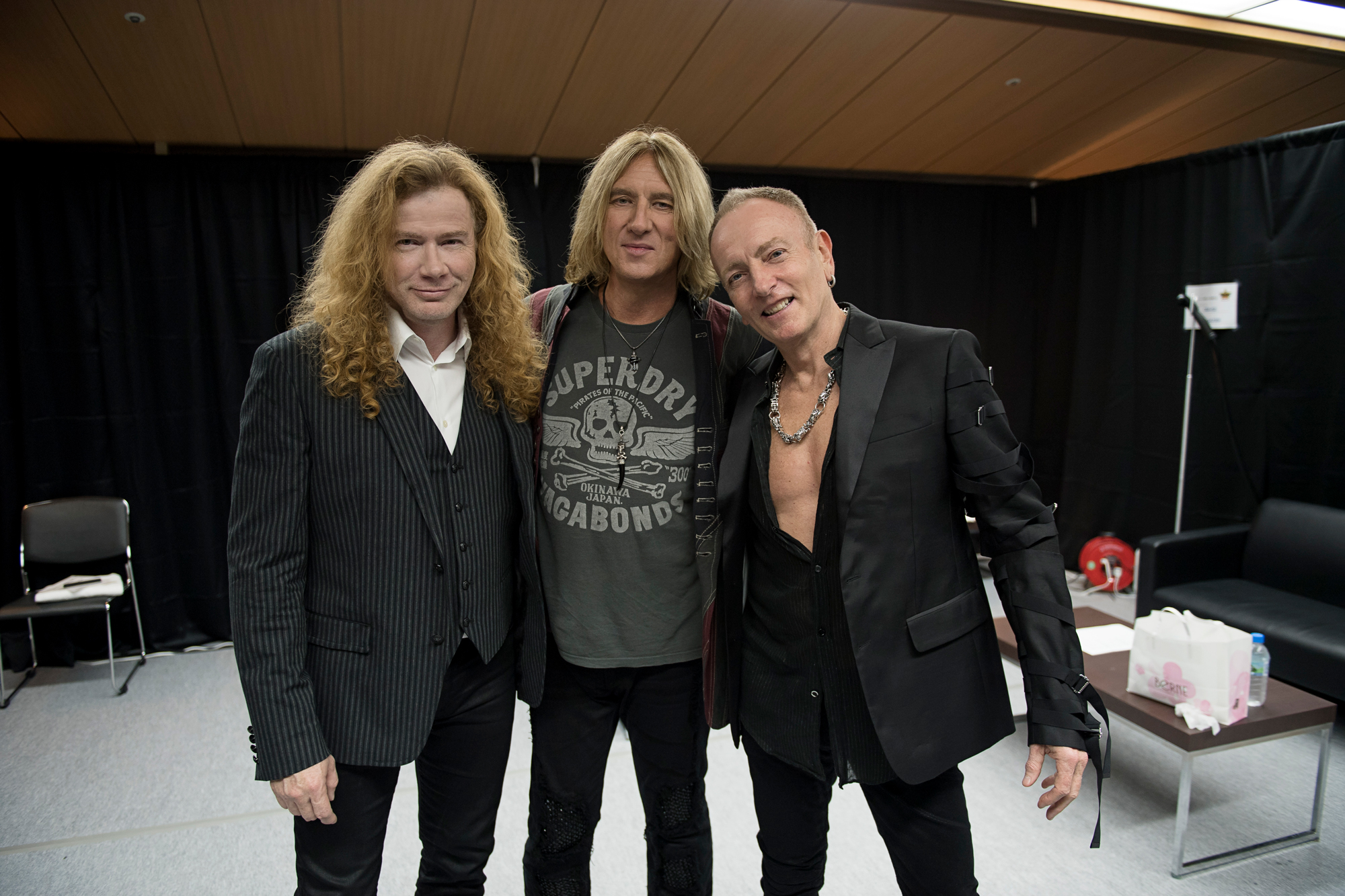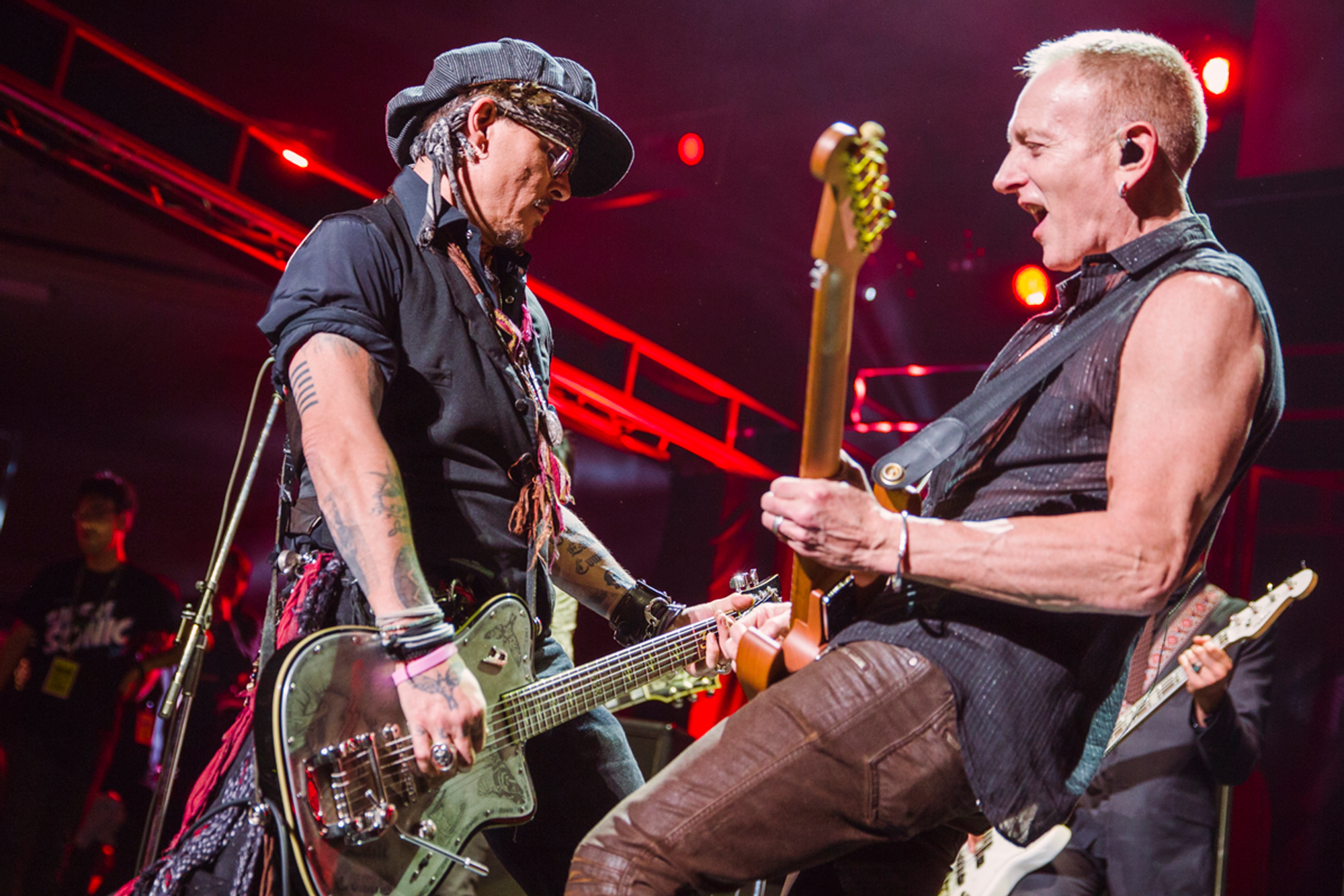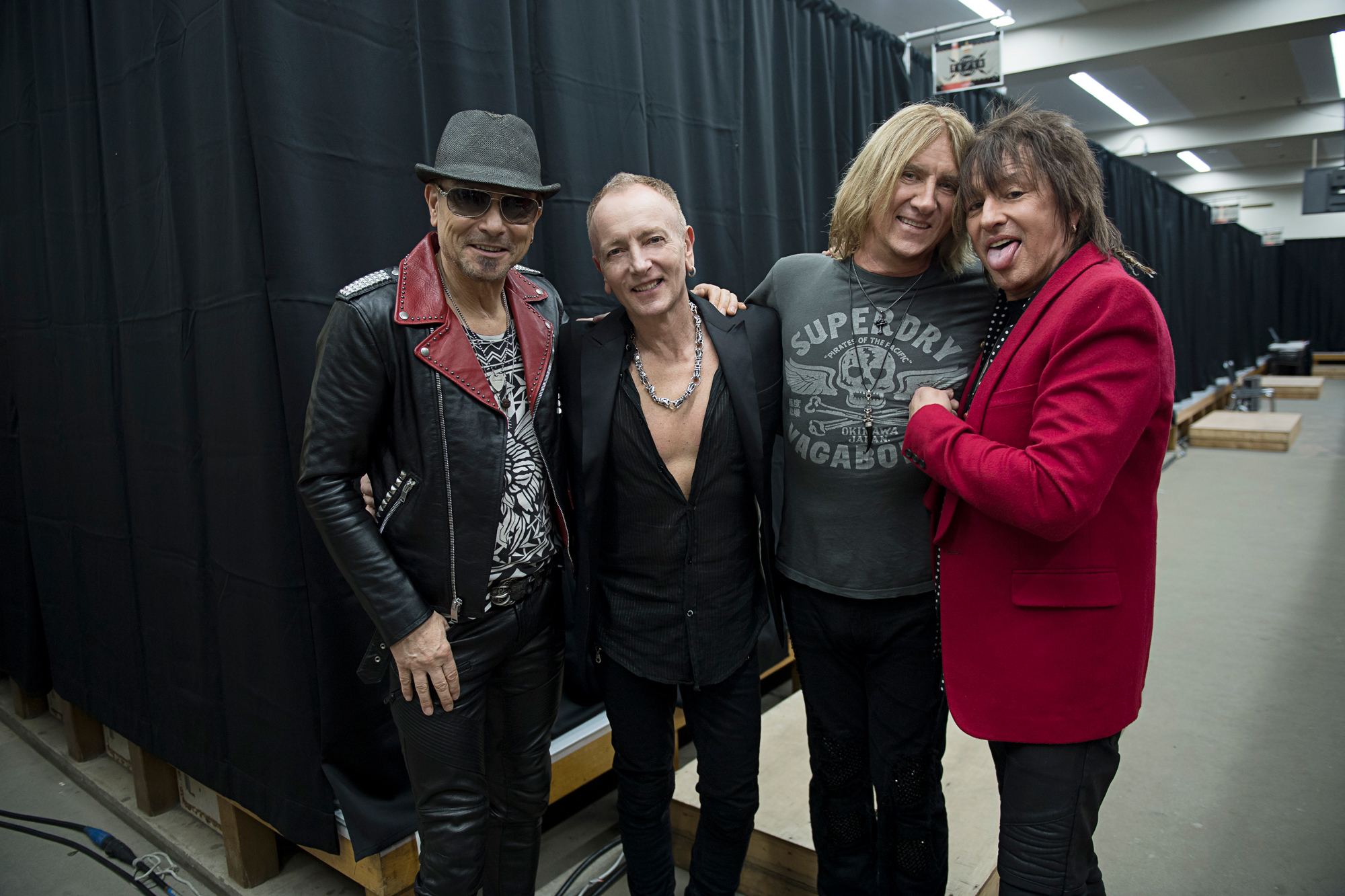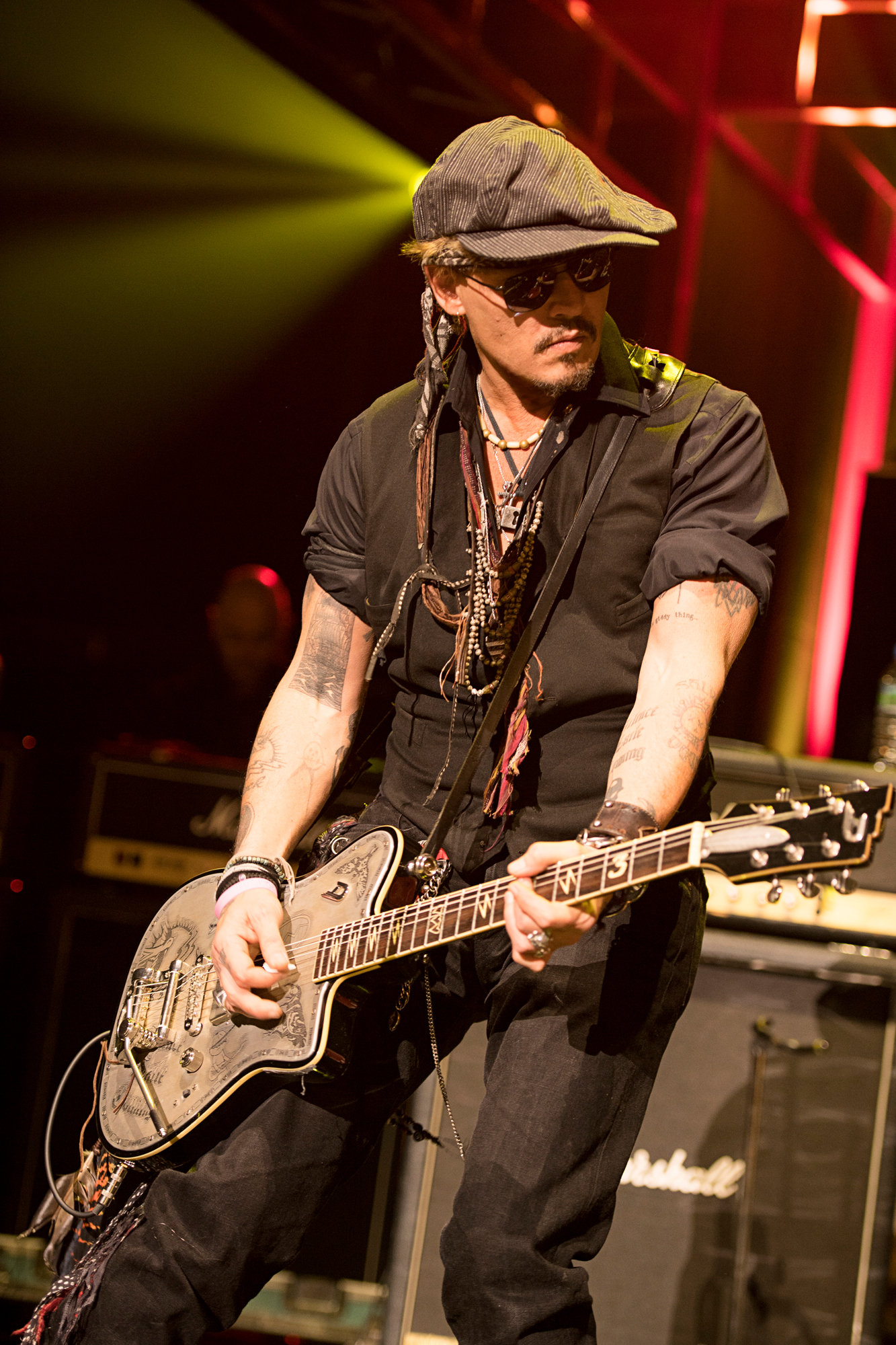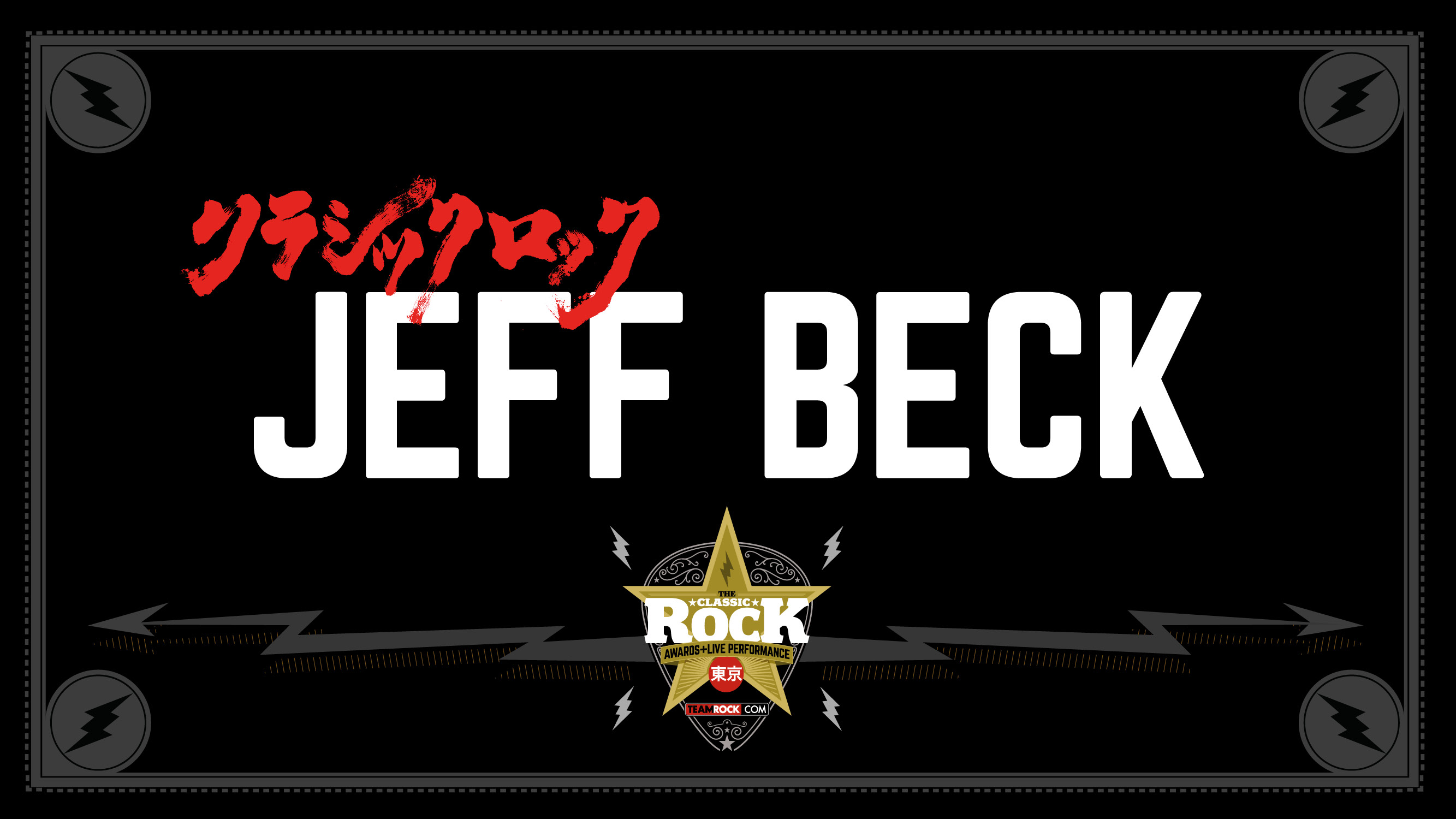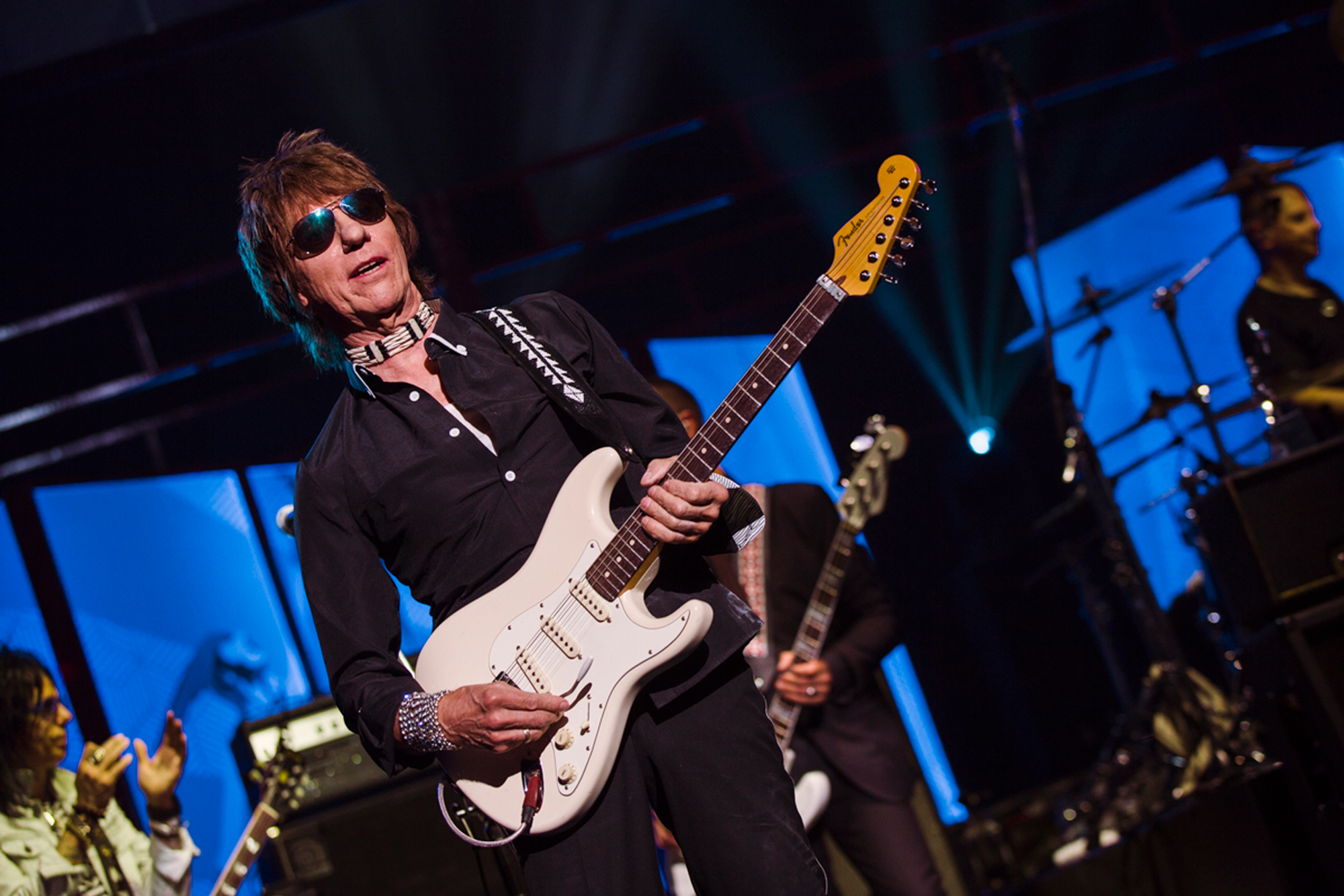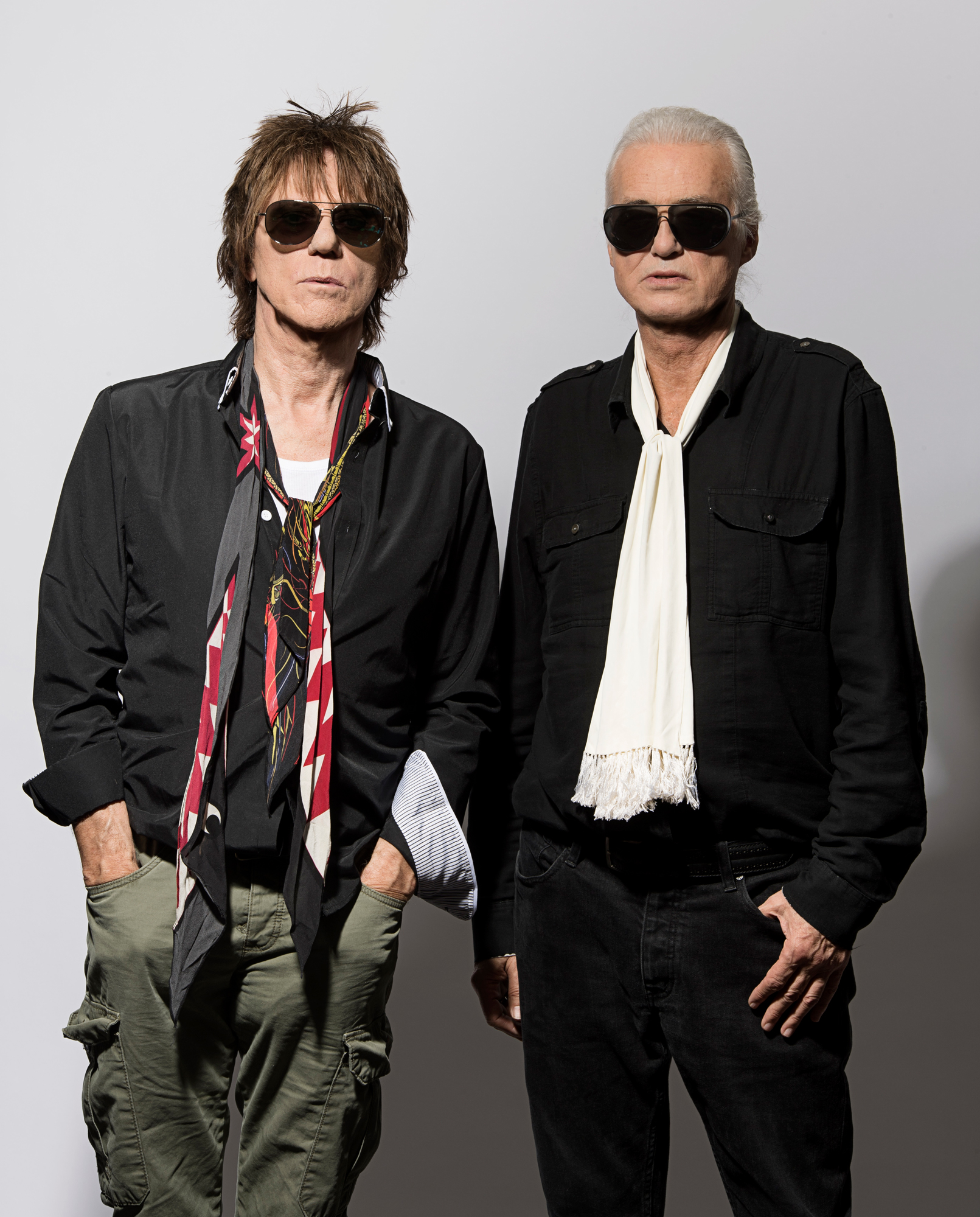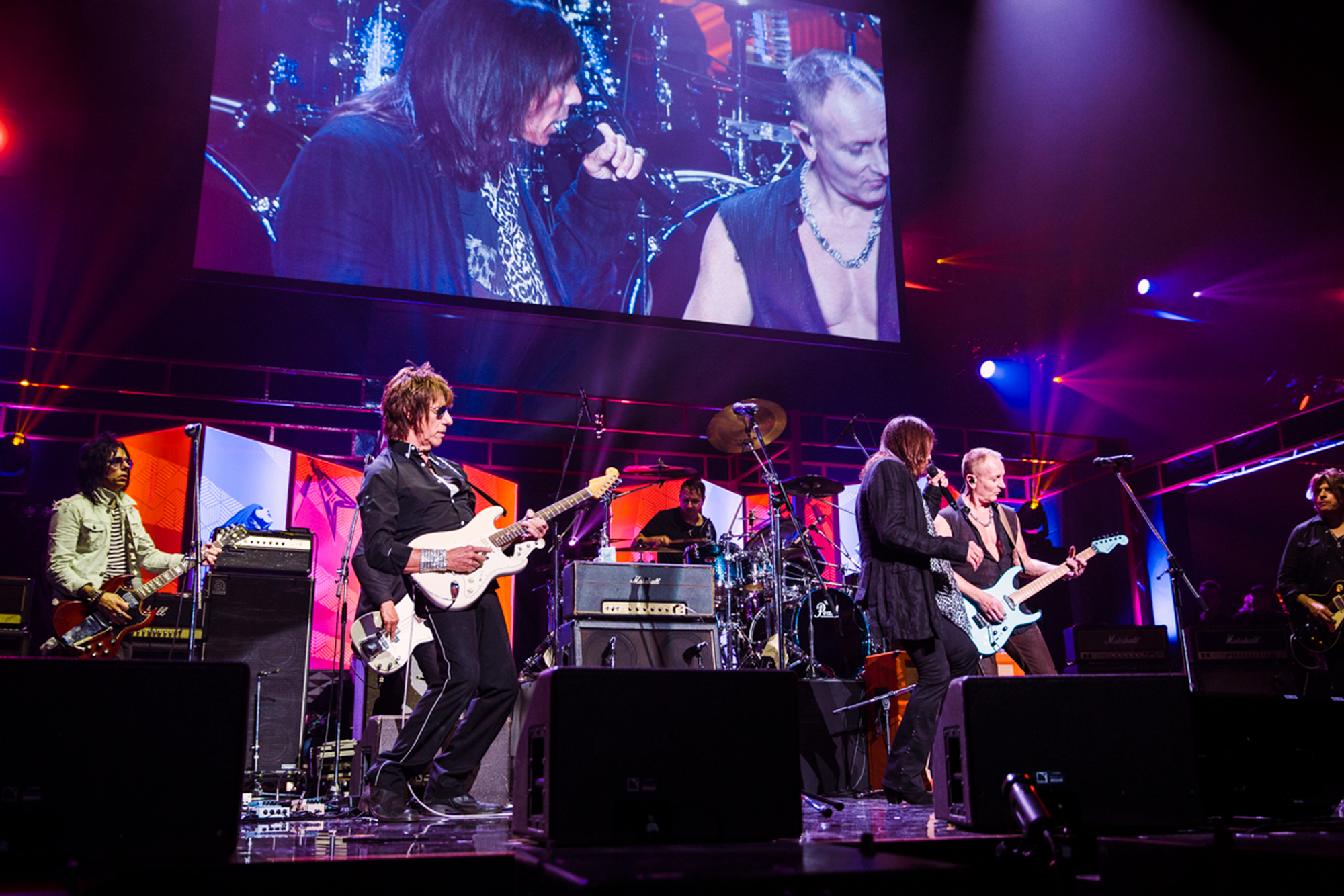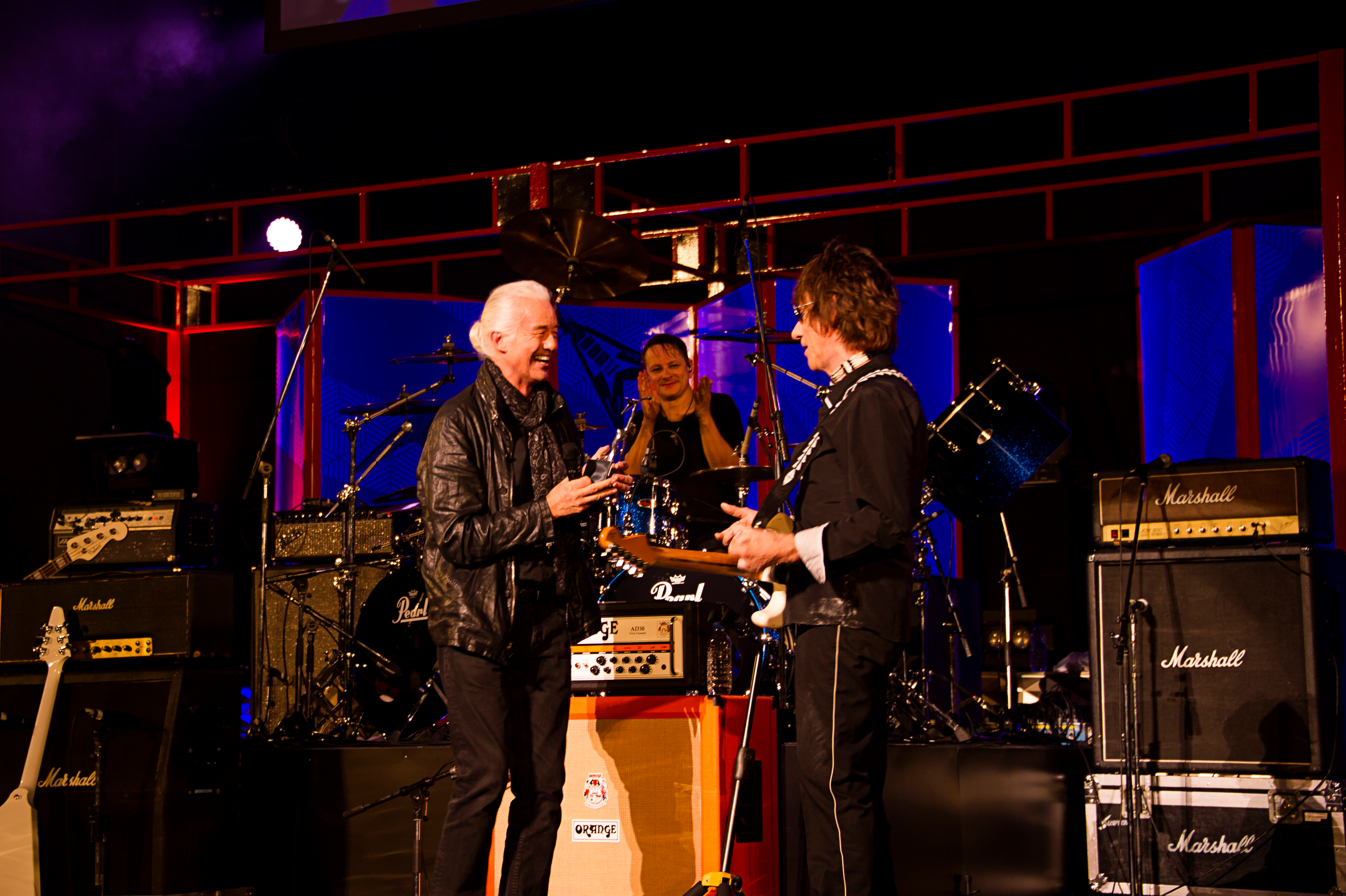It’s 2pm Tokyo time, November 9. Nine hours behind us, Britain is sleeping. America is counting votes. The stock markets, responding to the news coming through from the USA, are in fucking bits. Stock markets have fallen across Asia. The Dow and the FTSE will fall around 3.5% when trading starts. The dollar has plunged.
In Oden Studios, Rudolf Schenker is running through Rock You Like A Hurricane and No-One Like You with the house band: Dean and Rob DeLeo (ex-Stone Temple Pilots), drummer Ray Luzier (Korn) and guitarist Tommy Hendriksen (Alice Cooper/Hollywood Vampires).
They are nailing it. There has been a load of nerves, fraught meetings and difficult times in the past few months putting this bill together. But finally hearing this, you realise things are going to be alright.
Fuck that. Better than ‘alright’.
“So,” says Rudolf Schenker, “shall we do both songs?”
Andy Hipkiss is Classic Rock’s Artist Liaison and the guy who, with photographer Ross Halfin, has put this bill together. Andy plays it cool. “We have time to do both,” he says, even though this is not strictly true. The venue – the Ryogoku Kokugikan, Tokyo’s national Sumo arena – has a strict 9:30 curfew and the Japanese are nervous that we’ll overrun.
Rob DeLeo laughs: “You didn’t come all this way to do one song, did you?”
That’s that sorted then. There is only one thing left to do and that’s choreograph the windmilling at the end.
They run through the ending of Hurricane and Schenker shows them how to do it. He does a burst of 10 manic windmilling arm swings.
Rob, Dean and Tommy seem unsure.
“Let me show you again,” says Rudy.
“I don’t want you to hurt yourself, though,” jokes Rob. “Promise me.”
Schenker demonstrates again. There are few more impressive sites in the world of rock. They have three guitarists, he reasons, so they have to do it three times. “So that’s 30 times!”
Dean mouthes it to himself “30 times!” like “I used to be in Stone Temple Pilots – what the fuck have I got myself into here?”
Schenker keeps on windmilling. By the time he’s finished, Trump has won the election. We don’t tell anyone. They’ll find out soon enough. We want to keep the real world out of this room for as long as possible.
THE ROAD TO TOKYO IS PAVED WITH BULLSHIT
The road to this rehearsal room has not been easy. This year’s Classic Rock Awards have been over three years in the making and involved three different companies: Classic Rock, KLab and Parallel Media Group. Classic Rock were to bring the talent and the reputation, KLab were the local promoters, and PMG were making and selling the media properties (video and audio) around the world.
KLab and PMG had been to the LA awards in 2014. Hosted by Sammy Hagar and featuring guests like Sharon and Ozzy, Eric Burdon and Gregg Allman, the LA show was closed by all-star band the Kings Of Chaos. Sammy Hagar, Joe Elliott, Billy Gibbons, Glenn Hughes, Duff MacKagan, Joe Perry, Matt Sorum, Nuno Bettencourt all onstage, running through half a dozen rock classics.
KLab had made their bones in mobile gaming and were expanding into live entertainment. This kind of all-star jam could be a hit in Tokyo, they reckoned, and put them on the map.
But as the Japanese awards got nearer, the tension mounted. Tickets weren’t selling. The talent was refusing to sign contracts, or taking a long time to return them. That meant they couldn’t be added to the bill and that meant there wasn’t that much to advertise. QED: tickets weren’t selling.
The problem was this: the Classic Rock Awards has historically relied on goodwill and convenience. The stars who’ve played and attended over the years have done so because they like the event and the magazine and they enjoy the night. It’s a social engagement. Turn it into a gig and it becomes business. And business means bringing in agents, promoters, managers, record companies…
It means rights negotiations, performance fees, contracts, waivers, rehearsals and a shitload of scheduling arseaches. And moving it all to another country means flights, hotels, ground transport, security. And moving it all to Japan means you have all that and the language problem.
It was a recipe for disaster. And, true to form, disaster – of all shapes and sizes – followed.
HERE ARE SOME OF THE THINGS THAT WENT WRONG
Jimmy Page was interested in coming but with the Stairway To Heaven/Spirit court case looming, he didn’t want to commit to anything. We wanted to hold it at the Budokan but it was closed for repairs in the build up to the 2020 Olympics. Joe Perry said he would come but then he collapsed onstage at a Hollywood Vampires show on July 10. Joe Walsh said he would come – and then his management got involved and, dammit, suddenly they realised there was an unfortunate clash with an family event. Joe Elliott would have liked to sing but he was having a minor operation just days before and wouldn’t be allowed to by doctors.
Kirk Hammett was coming. And then the release date of the new Metallica album was confirmed for the same period. (Still we held out hope. Maybe he could do press for the album in Japan? Nope. He was out.) Jeff Beck was coming but it turned out he was under some obligation not to be filmed. Someone was making a documentary about him and the contract forbade it. Johnny Depp’s lawyer needed to see insurance documents from the venue. Johnny was starting a movie on the Monday after the awards. If he fell and broke his wrist and it affected filming, millions in revenue could be lost. So the Japanese got the documents to LA. Brilliant. Except the document was 30 pages long and all in Japanese…
And in-between all of this were more trips to Japan, more fraught phone calls, more stress, more pressure. Board meetings that ended in walk-outs. In the middle of the summer, a key member of our staff resigned. If it wasn’t entirely down to the Awards, it was a big part of it.
It was still going on the week of the awards. On Tuesday 8 November, with three days to go, we are in Japan and hear that Jeff Beck isn’t going to come. Andy Hipkiss steps into a little room with the top brass at KLab and explains the situation. There are raised voices.
At times like this, it feels like the Awards are cursed.
HERE ARE SOME OF THE THINGS THAT WENT RIGHT
Jimmy won the Stairway To Heaven court case. Now that the pressure was off, he was up for coming and presenting the award to Jeff Beck. Johnny Depp confirmed and made a video from his home in LA saying that he was looking forward to coming to “Toky-oky-oky-o”. Ross Halfin bumped into Rudolf Schenker on a visit to Tokyo just weeks before. Ross told Rudy about the Awards, and Rudy jumped at the chance. Dave Mustaine got in touch. He’d love to host the awards, he said. (And he turns out to be a pro, with the voice and the presence of a radio host, the authority of a show host and an unflappable sense of humour.) Joe Perry got better after his collapse and said he’d love to come.
Tickets began to sell.
Tesla wanted to come, with the added bonus that Jeff Keith could sing the songs that were being talked about. (Jeff is a force of nature – a jive-talking, snake-hipped streak of good vibes and Southern charm, with an explosive “HA-HA-HA!” laugh. His personality lights up rehearsals.) Phil Collen was getting stuck in, volunteering to sing and play on songs as varied as Stevie’s Superstition, Iggy’s Search And Destroy, Purple’s Mistreated and Stone Temple Pilots’ Interstate Love Song. Jeff Beck arrived in Tokyo the night before the Awards and turned up for rehearsal. He sounded astonishing.
At times like these, it feels like the Awards are meant to be. (‘The Awards’. This is no longer an awards show. It’s the Tokyo Super Jam. The Awards are just an excuse.)
JEFF KEITH DANCES ON THE EDGE OF THE CLIFF
Rudy Schenker is talking to Jeff Keith. Jeff has been giving it his all. No One Like You and Rock Me Like A Hurricane sound amazing. “Watch your voice,” says Rudy. “I have a feeling that sometimes you get over-excited and over-do things”.
“I do get over-excited,” says Jeff. “Have you ever seen me go over the cliff? I do go over the cliff! HA-HA-HA!”
The day before, the singer had just dropped in to the studios to say hi and ended up doing four hours of rehearsal. Now his lips are all chapped and sore. “This wind kills me!” he says of the cold Tokyo weather. “I got back to the hotel room and smothered some Blistex on that shit!”
After a run through Train Kept A Rollin, Tommy Hendriksen says to Jeff, “That’s so high. I don’t know how you can sing it.”
“Well,” says Jeff, “I’m better off singing high than getting high. HA-HA-HA-HA!”
ONE OF THE OTHER THINGS WE GOT RIGHT
Photographer Ross Halfin put most of this line-up together. People travelled from all over the world, adjusted their schedules (and learned a ton of songs) on Ross’s say-so. He brought Jeff Beck, Jimmy Page, Johnny Depp, Joe Perry, Rudy Schenker, Def Leppard, Tesla, Dave Mustaine, put together the house band. And, because his assistant Kazuyo is Japanese, we had someone who could literally talk their language.
Now Ross can be a divisive character, as anyone who’s been around him will know. He’s loud, brutal, couldn’t give two French-fried fucks about being PC, and is the scourge of half-wits and catering staff all across the globe. (God help the waiter who sprinkles chocolate on his cappuccino.) But there is another side to him. He’s smart, well-read, honest (see ‘brutal’, above), loyal and does not put up with bullshit. And he’s a great photographer. He also loves – and really knows – rock music.
“I believe in Ross,” says Robert DeLeo, the man Halfin roped in as ‘musical director’. “He’s given me some great opportunities in life and this has been one of those. To be able to share the stage - and meet and hang out with Jeff Beck and Jimmy Page - I mean, those guys wrote the book for me, they raised me.”
“I trust Ross,” says Dean DeLeo, his brother. Both men have known Halfin for years, through their time in Stone Temple Pilots and beyond. “I know I can count on him. Whether you’re in a good place for a bad place, you can count on him. And he’s a fucking teddy bear. He’s like when the Grinch’s heart grew, you know? He’s got that rough exterior but he’s got this big red heart in there.”
“I adore the fucker,” says Johnny Depp. “I’ve done photo shoots with the best and the worst, and I’ve hated almost every second.” Herb Ritts was kind, he says, while David Bailey was funny, making him climb into a skip because he “looked like garbage” when he showed up.
“And Ross is, is, absolutely the closest to that that I’ve come across because it’s just no bullshit,” says Depp. “He knows what he wants, he wants what he wants, and if there’s a motherfucker in the background he will not be like, [posh voice] ’Excuse me, would you mind getting out of the way?’ He’ll be: [perfect Halfin voice]: ‘Get the fuck out of the way, cunt!’ He just don’t fuck around.”
He does an impersonation of Ross shooting him and Joe Perry: “‘Joe, smile, smile. Johnny, lift your fucking head up, cunt’,” he laughs. “Trust. That’s the key to everything. I fucking hate having my picture taken – I can’t do all that posing stuff, I just feel like a fucking idiot, and he’s just like, ‘Yeah, fucking chin down,’ you know what I mean? ‘Alright, turn away and look at this,’ he’s been amazing. So he’s become like family.”
Jimmy Page first got to know Ross in the early 90s, when he turned up to shoot Coverdale-Page. “We were having some photographs done in LA,” says Page, “and there was, I think, three photographers. There was a heavy-weight photographer coming in at the end and Ross was sort of squeezed in the middle. He was compromised a bit with time, which I thought was a bit unfair. I could see him really working hard his ideas were pretty interesting. And I remember seeing the photographs afterwards and I thought, ‘He’s done a really good job for somebody who only had a short time’. And then we were doing a video, he was recording the shoot and then I got to see him more and more.”
These days, Ross is one of Page’s closest friends. “Well, you know, you should have given him an award,” says Page.
Fuck. Too late now.
Jimmy laughs. “For services to rock – Ross Halfin.”
JIMMY PAGE’S TRANCE ROOTS
Jimmy Page is a very precise man. He dresses well and he answers questions carefully. If he’s sometimes evasive when interviewed, it’s because he understands the affect his answers can have. If he says he likes a new band, for example, they become “Jimmy Page’s favourite new band”. He hates being misquoted, hates people taking advantage of his status as the world’s most revered rock musician. (Not that he can’t poke fun at himself either. In rehearsals, Rudy Schenker shakes his hand with a hearty, “Jimmy Page! Father of rock!” Jimmy immediately corrects him: “Grandfather of rock,” he grins.)
Jimmy is here to present The Icon Award to Jeff Beck. He is not scheduled to play and hasn’t brought any guitars, but the thought that he might adds a will-he-won’t-he drama to rehearsals and the show. He doesn’t play in the end, but his presence is enough of a buzz for most of the musicians.
Page likes to do things properly. At the Classic Rock Awards in the past he has been the first person on his feet to congratulate winners, pleased to see his contemporaries take long-overdue honours. This year, the Awards are honouring his friend Jeff Beck and he knows there is no-one better placed on earth than him to present that award. He also likes Japan.
“I first came to Japan in 1971,” he says, “and it was the first time I’d been to such a sort of overpopulated place, certainly compared to what I was used to. It was a city with such a new vision towards the future. The technology boom was really going on, even then. Admittedly this is 1971, so it was all sort of hi-fi, Nikon cameras etc. It seems odd now with Nikon everywhere, but at the time they were just really breaking the market, and you could get cameras over here really, really inexpensively, and hi-fi and little cine cameras you know. We came here and went away loaded with cameras and I started documenting the rest of my travels with Led Zeppelin for a bit.”
(That brilliant lo-fi, jerky looped footage on Immigrant Song on the Led Zeppelin live DVD? That’s a mixture of stuff Page and Bonham shot in Australia.)
Page comes record shopping over here. The Japanese have relaxed policy towards bootlegging, with a quirk in the law meaning that bootlegs can be sold openly in shops as long as they also sell official releases. So you go to these shops, says Page, and they have a tiny shelf with official releases on it, and a whole shop dedicated to bootlegs, some with amazing artwork. When he was putting together the recent Zep reissues, he was particularly interested in what unreleased material was actually available. “I wanted to know just exactly what was out there, because I was pretty convinced that the material that I had – not everything, but a good percentage of it – had never been heard. So, I just wanted to do my homework quite a bit.”
There’s another reason Japan is great for vinyl collectors: “Over here, people used to take really good care of their records. That’s the difference between Japanese copies of records and maybe European, or whatever. Second hand records are usually in amazing condition.”
On this trip, “I managed to find a Led Zeppelin I with an Obi-Strip. That’s rare. And I found a few bits and pieces – old releases that I didn’t have, or had missed at the time.”
What do you look for? Rock’n’roll? Blues? “My tastes go right across the board, and always have, even from being a teenager you know. Yeah, a lot of blues. You know, some old Folkways ones and those sort of things.”
I ask about the appreciation of rock music in Japan and he cuts me dead: “What do you mean by rock?” he says.
Well, y’know, the sort of music that Led Zeppelin pioneered. Loud, hard blues rock. “Did we?” he says. “We were playing trance music with hypnotic riffs.”
I can’t see a magazine called Classic Trance catching on. “To me, rock music was a really early rock and roll music of the 50s,” he says, “but the sort of rock that is riff-driven is, you know, you can chase that repetitive aspect back to Chess and Vee-Jay Records in Chicago. That whole blues movement of the 50s, it certainly was really inspiring to me, that’s for sure. The way that they would mould the instruments together, you know, and the whole thing of finding out who played what and all that sort of stuff.”
Speak to guys from rock’s first generation about the music they love, and you’ll get similar answers. They’ll talk about Stax and Chess, about rock and roll, country music, folk… They soaked up a wide range of influences and brought all that together in a new and original way. But talk to musicians of today they’ll talk about Led Zeppelin, Black Sabbath, Free – they seem to draw from a much smaller pool – and make little attempt to reinvent it. It’s more of an attempt to copy – even right down to production techniques – than to pioneer. It’s like they can’t see past their influences.
“Well, it’s whatever really gets you, or seduces you into it,” says Jimmy. “My personal tastes were always really, really wide, especially in my appreciation of the guitar. First of all it was skiffle, but from there it was sort of the rockabilly guitarists and all of that: the Johnny Burnette Rock N’ Roll Trio, the Elvis stuff. And then you’d read the credits and start researching the original numbers. A Sleepy John Estes number, “Big Boy” Arthur Crudup etc etc. And so you’d access the blues through that route. And then you’d find Muddy Waters etc, and the whole thing started to open up, and open up.
“Muddy’s quite a pivotal character because he’s a country blues artist, acoustic artist, and makes the transition to electric – of course there are a few who do that successfully. So, you know, next thing you know you’re listening to acoustic blues, electric blues, classical guitar, flamenco guitar. I’d listen to some jazz but not a lot, and I was listening to classical music a lot as well. And world music, Indian music and Arabic music. A lot of it came from as a teenager, a young teenager too, listening to the radio.
“I definitely heard some groundbreaking classical music, modern classical music on the radio, and I heard Indian music as well for the first time on the radio.
“I guess it all sort of came in and then came out in another way altogether. And that’s what shows in Zeppelin’s music.”
HOSTING IS MY BUSINESS AND BUSINESS IS… WEIRD
Part of my job is to work with Awards host Dave Mustaine on his script. I send him some lines for each award to give him a rough outline that we agree we’ll work through in Tokyo. Once there, though, Japanese media partners Nippon TV have other ideas. They have their own host in mind: Matsuya Onoe, a famous Kabuki performer, backed by Hitomi Niikura, a cellist who will act as interpreter.
So, an old-fashioned actor and a cello player. Like, how. Incredibly. Rock’n’roll. We have an awkward meeting where we say, ‘Not on our stage, sunshine’.
A compromise is reached where the Japanese hosts will be on a balcony and will translate the show parts to the Japanese audience. This makes perfect sense, in theory – most of the room will be Japanese, after all – but to add to the weirdness, it later turns out that Matsuya is doing the opening ceremony in full kabuki face paint and dress and it’ll take him 45 minutes to get changed, leaving Hitomi Niikura alone for the beginning of the show. Fine, right? Except Hitomi, the interpreter, can’t actually speak English.
Meanwhile NTV tell us that they’ve written a script for Dave. This is what they expect Dave to read for the Showman Award:
Dave: “This is a prize given a star having showmanship to attract the audience by force, the heat capacity of the vocalist, the performance including the overwhelming guitar play at a stretch…”
And this is their suggestion for what he could say when Rudy Schenker gets onstage: “Thank you today while I am busy. It is cold than I thought of Japan. Do you not draw a cold into your guitar too either?”
We try and edit all of these out of the script – staying up til 3am on the day of Dave’s arrival in Tokyo, working until he literally falls asleep at the table – but somehow they still end up on the teleprompter, throwing Dave every time.
And there’s another problem. At dress rehearsals, the night before the show, Dave comes over to the side of the stage. “Is this woman going to be beside me all night?” he asks.
There is a translator onstage with him. She is awesome. When you can barely be understood by anyone, someone who gets what you’re trying to say is a godsend, a lifeline, an angel, a–
“She hasn’t stopped farting,” says Dave. “Can’t you smell it? I’m gagging. It smells of broccoli up there.”
A REQUEST FOR MR DEPP
An interview request comes in from a Japanese TV show for Johnny Depp. “We were hoping to arrange a backstage interview for our long-running animal themed program, Shimura Zoo,” it said.
“In our proposed interview, Ken Shimura, a well-known Japanese comedian and musician, will visit you backstage with a Japanese puppy…”
- Jeff Beck, Joe Perry and All-Star Band triumph at Classic Rock Awards in Tokyo
- First Bite: Hollywood Vampires
- The 2016 Japanese Classic Rock Awards Blog
- Hollywood Vampires: Hollywood Vampires
THE GREAT VANISHING YOSHIKI
After two days at Oden Studios, the gear is moved across town to the Ryogoku Kokugikan, Tokyo’s national Sumo arena, where the stage is still being built on the morning of the show. Tickets, we hear, have sold out. The only pressure now, is making this work.
Cheap Trick are the opening act (Rick Neilsen: “Domo arigato. It’s great to be here… at Budokan?”) and demonstrate exactly why they’re worthy Showmen Award winners. The Japanese press once dubbed them “the American Beatles” and they’re greeted with a genuine warmth. Richie Sambora takes the Songwriter Award and then take to the stage with Orianthi to show off some of the songs that earned him it, with bluesy reinventions of Living On A Prayer and Wanted Dead Of Alive.
But generally, the Awards segment of the show is testing, let’s say. The show starts late and there is a bit of a panic. The day before, a senior member of the team tells us that if the show runs late he’ll never be able to work at the stadium again. I’m backstage with Mustaine and translator and we’re cutting segments.
In honour of the location there are a bunch of Eastern awards, for bands from Japan, Thailand and the Philippines. On the night, the award presentations are dropped –the bands will just play, one after the other, before the main Japanese attraction, Yoshiki, the revered drummer of the country’s legendary rock band X-Japan. (The Eastern bands are good, too. Mustaine particularly enjoys Slot Machine and makes a point of congratulating them when they come off-stage.)
The lights go dark and the stadium falls silent for Yoshiki. And then… it stays dark and silent. One of the production crew grabs us. “Yoshiki no play,” she says. He’s here in the stadium but at the last minute, the local superstar has decided that he will not take to the stage. The show order needs to be changed. While the crowd sit silently in the dark, we go through the script, work out what should be next, check that the teleprompter will be updated and get ready for the second half of the show – the jam.
The house band get ready to take to the stage. And then, more panic: Yoshiki will play after all. Scripts are changed back, the house band are sent back to their dressing rooms, and Mustaine suggests that now might be a good time to have one of those new Megadeth beers he’s brought for the backstage.
If you can’t fix it, fuck it.
By the time Yoshiki turns up, with an entourage of women and a documentary team, the show is over-running by about half an hour.
Joe Elliott and Phil Collen pick up the Album Of The Year Award for last year’s Def Leppard album, having won the popular vote by the biggest landslide we can remember. “We’ve lost a lot of good people in the last year,” says Joe from the stage. “Dale Griffin, Lemmy, David Bowie – cherish your heroes, they won’t be here forever.”
And then it’s time for the Tokyo Super Jam. Mustaine introduces the house band: “And here, with their first guest of the night, from the Scorpions, Rudolf Schenker!” No One Like You and Hurricane get people on their feet and singing along – no mean feat with a Japanese crowd, notorious for remaining attentively in their seats and clapping politely between songs.
The highlights are too numerous to mention. Tesla’s 80s classic Modern Day Cowboy is a delight to hear – new track Save That Goodness sounds like an old classic already. Then there’s Phil Collen’s bluesy version of Purple’s Mistreated, the house band’s gorgeous take on Led Zeppelin’s Dancing Days, the balls-out rock’n’roll of Depp’s Bad As I Am. Phil Collen singing a STP song. Ain’t Superstitious with Mustaine on guitar (Megadeth covered the song). A blistering School’s Out/Another Brick In The Wall mashup with Tommy Hendricksen on vocals. Joe Perry and Depp conjuring up a psychedelic, brooding Sweet Emotion. Robin Zander and Rick Nielsen coming back for a bruising Come Together. Train Kept A Rollin’ with the guitar army of Perry, Depp, Schenker, Hendriksen, and DeLeo.
Jimmy Page comes on to present Beck’s award and there is a visible ripple of will-he-won’t-he excitement. What he will do, is pay respects to the guy he met aged 12. “I’ve known him for 60 years, believe it or not,” he says, “and he’s the most incredible guitarist that there is. He’s developed a technique of guitar playing, that’s beyond anybody’s imagination except his…”
Before Beck’s delivers his masterclass he thanks his sister Annetta. “She introduced me to Jim and my life changed – not necessarily for the better.” There is silence as the Japanese translate this in their heads. “That’s a joke, by the way,” he chuckles.
The songs that follow – Beck’s Bolero, Superstition (with Collen on vocals) and a dangerous Going Down are a perfect showcase of Beck’s guitar playing in all its glory, his guitar playing as abstract and explosive as a Jackson Pollock, variously gutsy and dirty, graceful and melodic, peeling off notes, wringing singing squalls of melody from high up on the dusty end where most people do well just to hammer-on and off, and on Going Down ducking and weaving with Jeff Keith in a show of aggression that looked real till they hugged it up at the end.
Earlier in the day, I’d spent an hour with Johnny Depp [read the full interview], talking through his love of music and how it has influenced his acting. He writes songs – always has – he says, though he’s tried to stay away from love songs and “other people’s formulas”.
Which is difficult, I say. It’s much easier to follow than it is to carve out your own thing. “Yeah. It’s the same in the movies,” he says. “You read a script and there’s something good there and then someone says, ‘Put this in some kind of shape’, you know? A thing that I don’t believe in which is called The Three-act Structure. That should be killed immediately…
“You should fucking run as far away from formulas as quickly as possible, do you know what I mean?”
We took the Classic Rock Awards to Japan, stuck it onstage in a Sumo arena, and brought in a bunch of guys who’d barely played together to put on a concert-cum-awards show in front of 8000 people. And it was killer.
Formulas, man. Who needs them?
THE FRIENDLY WOMEN OF ROPPONGI
Roppongi, Tokyo. We are celebrating in The Train Bar – a rock bar the size and dimensions of a train carriage – and neither me or Gillian, our Events Manager, have eaten. It could be disastrous. The last time the Classic Rock awards team went there it was daylight when we left. We go to a Family Mart across the road and I buy something I think is chicken while Gillian tries to find something vegetarian.
I’m waiting outside when a woman grabs my arm. “Hey, how are you?” she says. She’s very pretty and incredibly friendly.
“I’m fine,” I say, eating the chickeny-thing out of a bag and clearly looking cool as fuck.
“You come with me, yes?” she says. “I live just up there.” She gestures to somewhere up above us in the towers of Tokyo.
“No, I’m fine thank you, I’m-“
She grabs my cheek and looks right into my eyes. “You can do anything,” she says.
“Aw, that’s nice of you but, seriously,” I say, “I’m married.”
“Then I give you nice massage,” she says, cheerily, like that’s perfectly reasonable, married or not.
Just then Gillian comes out of the shop and walks over.
“Oh,” the woman says. She pauses for a second, puts two and two together, gets seven, and then gives us a dirty great smile.
“Maybe I give you both a massage?” she says.
RAY LUZIER AND THE LIFERS
“It was a beautiful thing just coming to rehearsals,” says Ray Luzier after the show. The drummer for Korn, Ray had previously played with Robert and Dean DeLeo in Army Of Anyone. “Phil Collen coming in with a big smile on his face. You expect these egotistical rock star attitudes and no-one had that. They were very open. Joe Perry’s like, ‘Hey man, I know a lot of Korn songs’!”
He laughs. Jeff Keith stops and says his goodbyes, hugging and high-fiving. “I mean, check that,” says Ray as he watches him go. “Instant brother. Don’t even know the guy. I played [Tesla’s] Modern Day Cowboy in ’89 at my performance class at music school, and now I’m playing it onstage with him in 2016. I mean, what’s the chances?
“It’s still so alive, that’s what’s beautiful about it. I think it’s funny when people say that rock is dead because it’s never going to die, it just goes through twists and turns and down different avenues. It’s all music. Everybody on that stage tonight, we’re lifers. I call us lifers. We do this – whether we’re in a giant band or a small band we do this. It’s in our blood.”
![Ray Luzier at soundcheck: "We’re lifers. [This] in our blood."](https://cdn.mos.cms.futurecdn.net/mwHiZH2nhsUNtGVbRzdA3o.jpg)
THINGS ARE GETTING WEIRDER BY THE DAY
At one point, Halfin had suggested that Depp might sing Bad As I Am, but there’s is no way he’s going to do that. “I just sing backgrounds,” he says. “Even as a kid in bands I avoided the spotlight, I stood back.”
Oh, the irony.
“You caught me before when you said, ’It must be great to be in a band with other guys’. That was the weird thing for me when I started acting. Suddenly I was on my own, there was just me – and there wasn’t a guitar strapped to me. I didn’t know how to do a fucking movie. I just blagged my way through as best I could and then things got weird, you know.”
I’m sitting in the basement of a Sumo arena in Tokyo having a drink with Johnny Depp. They get weirder by the day, I say.
“They fucking do get weirder,” he chuckles. “They actually do, surprisingly, shockingly, they get fucking weird.”
Johnny Depp Is Just Killing Time Until His Band Gets Back Together
